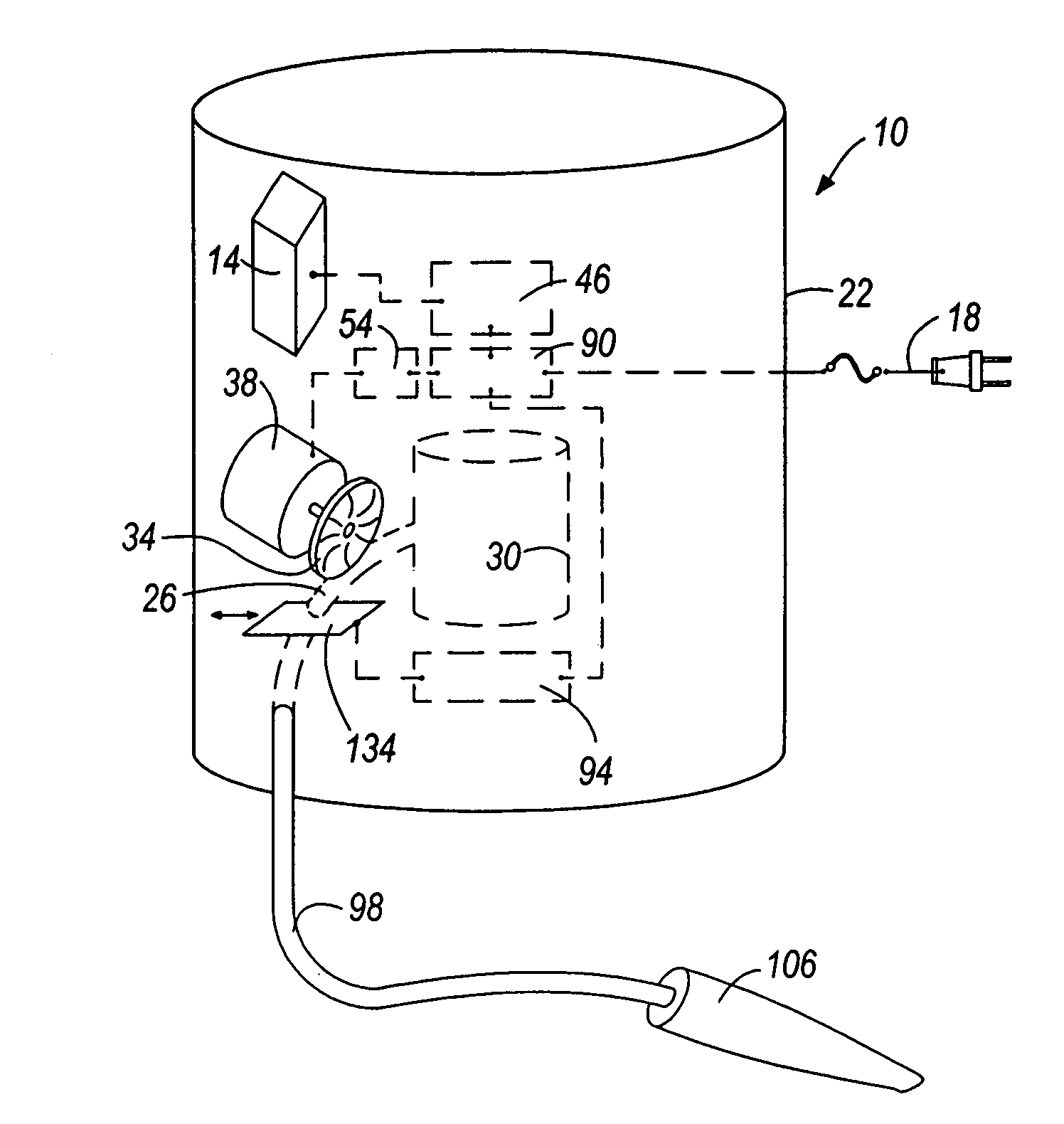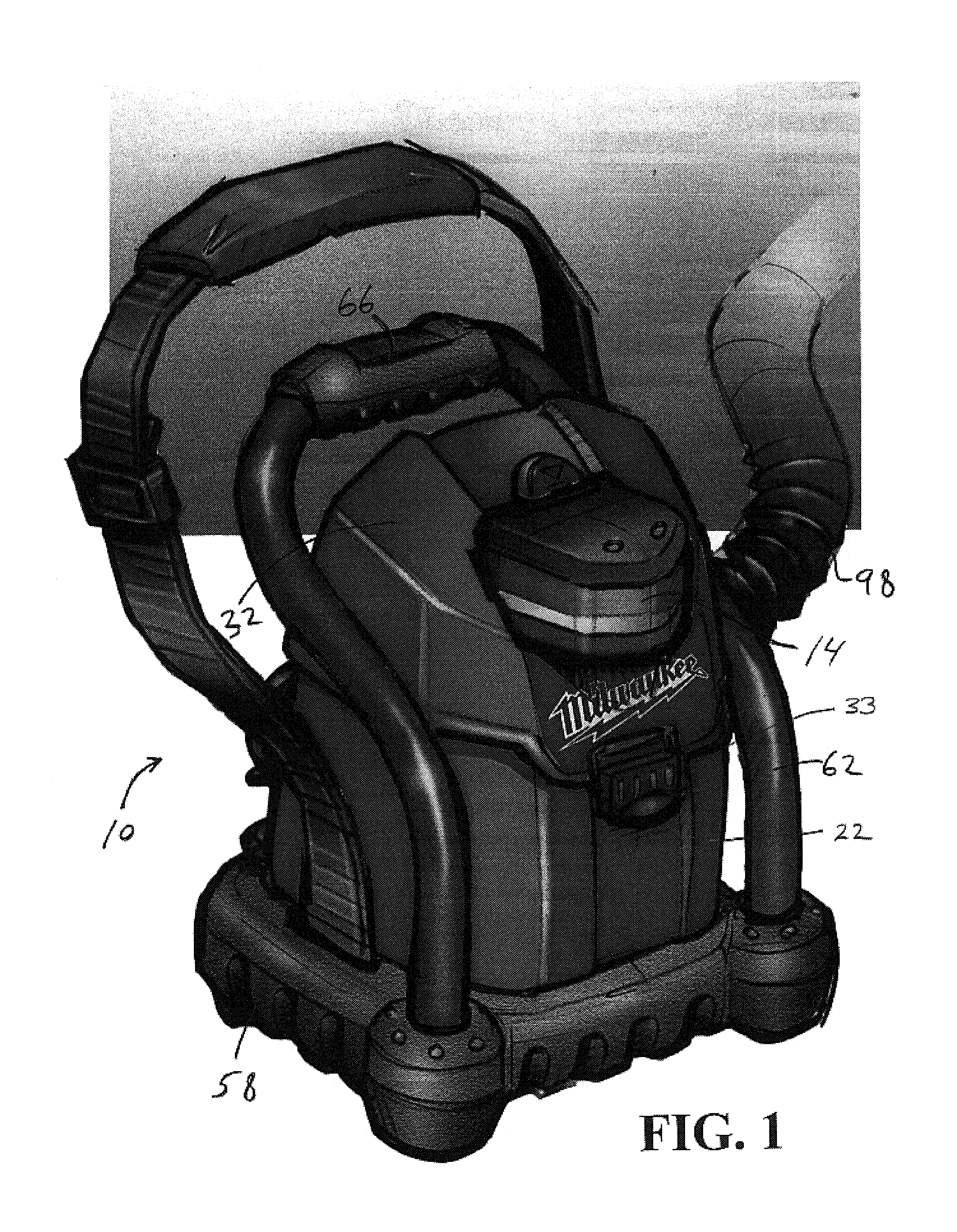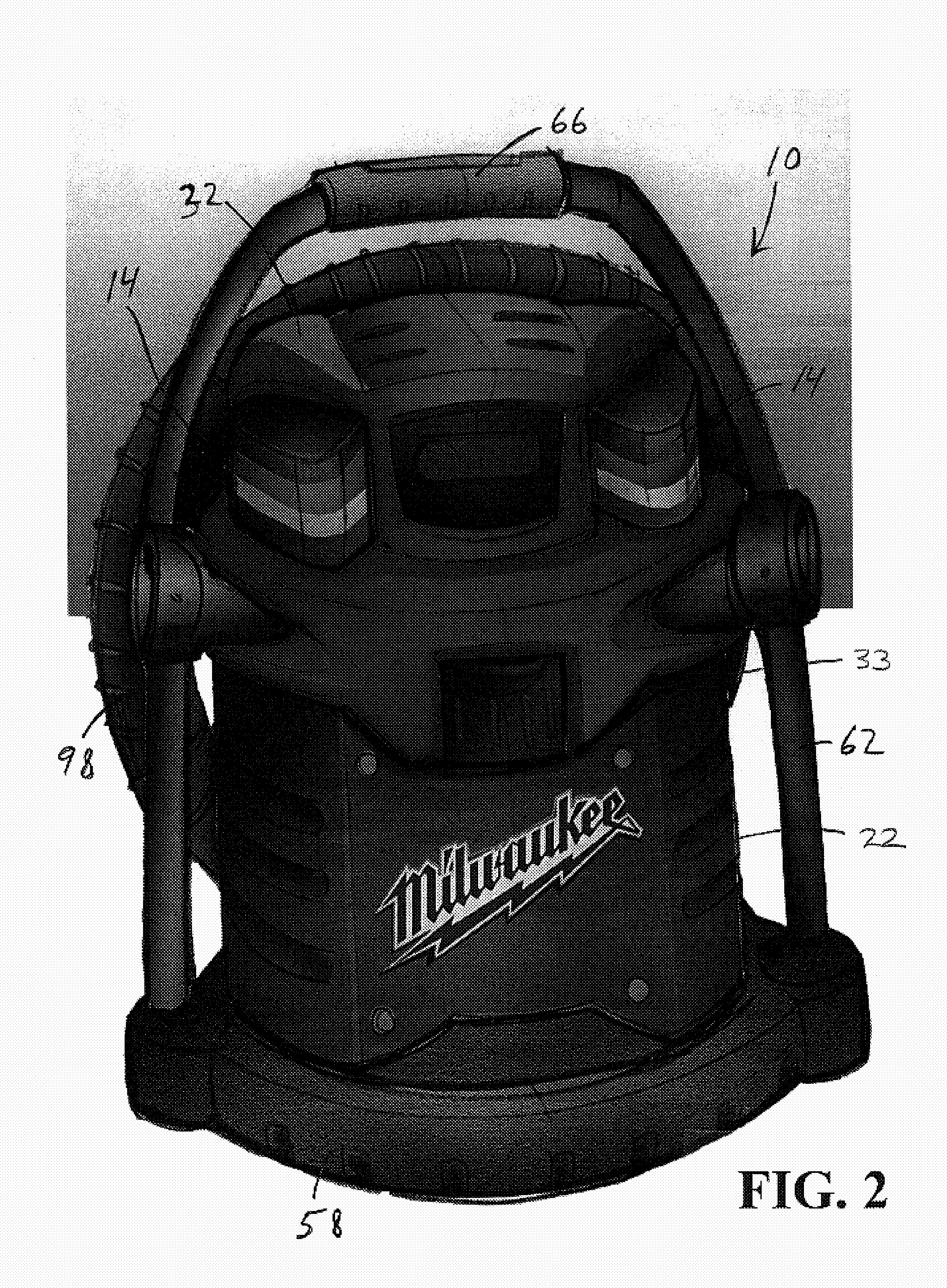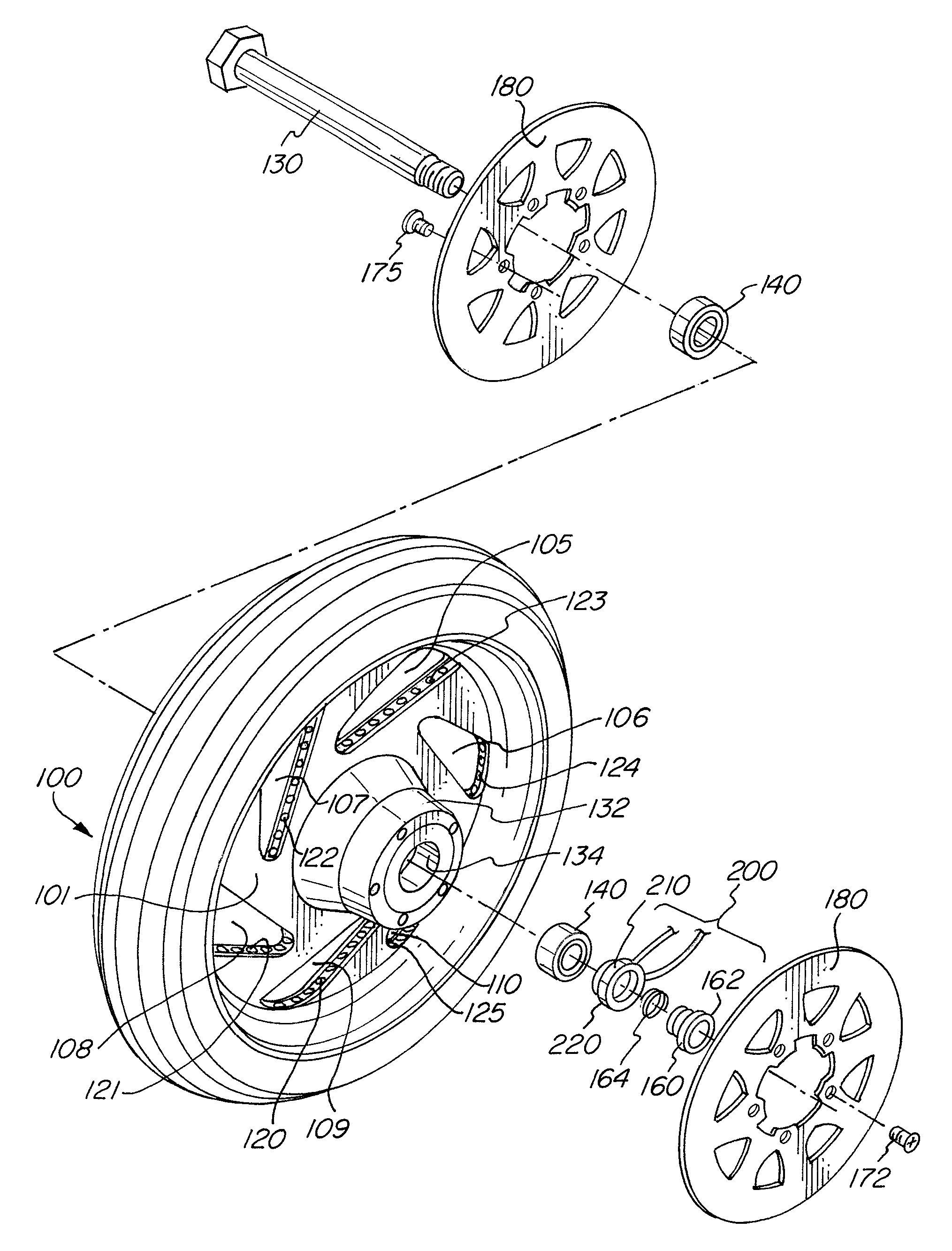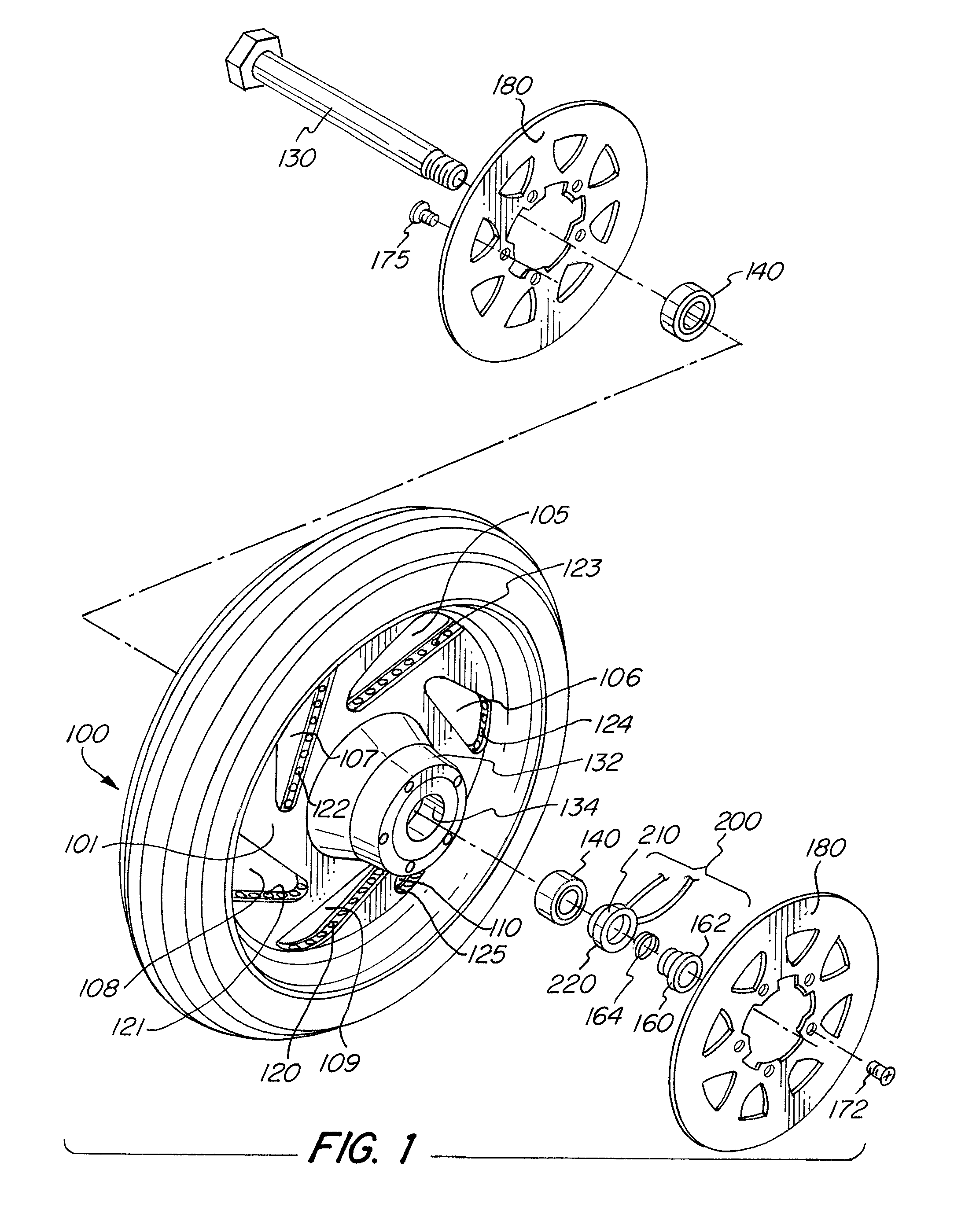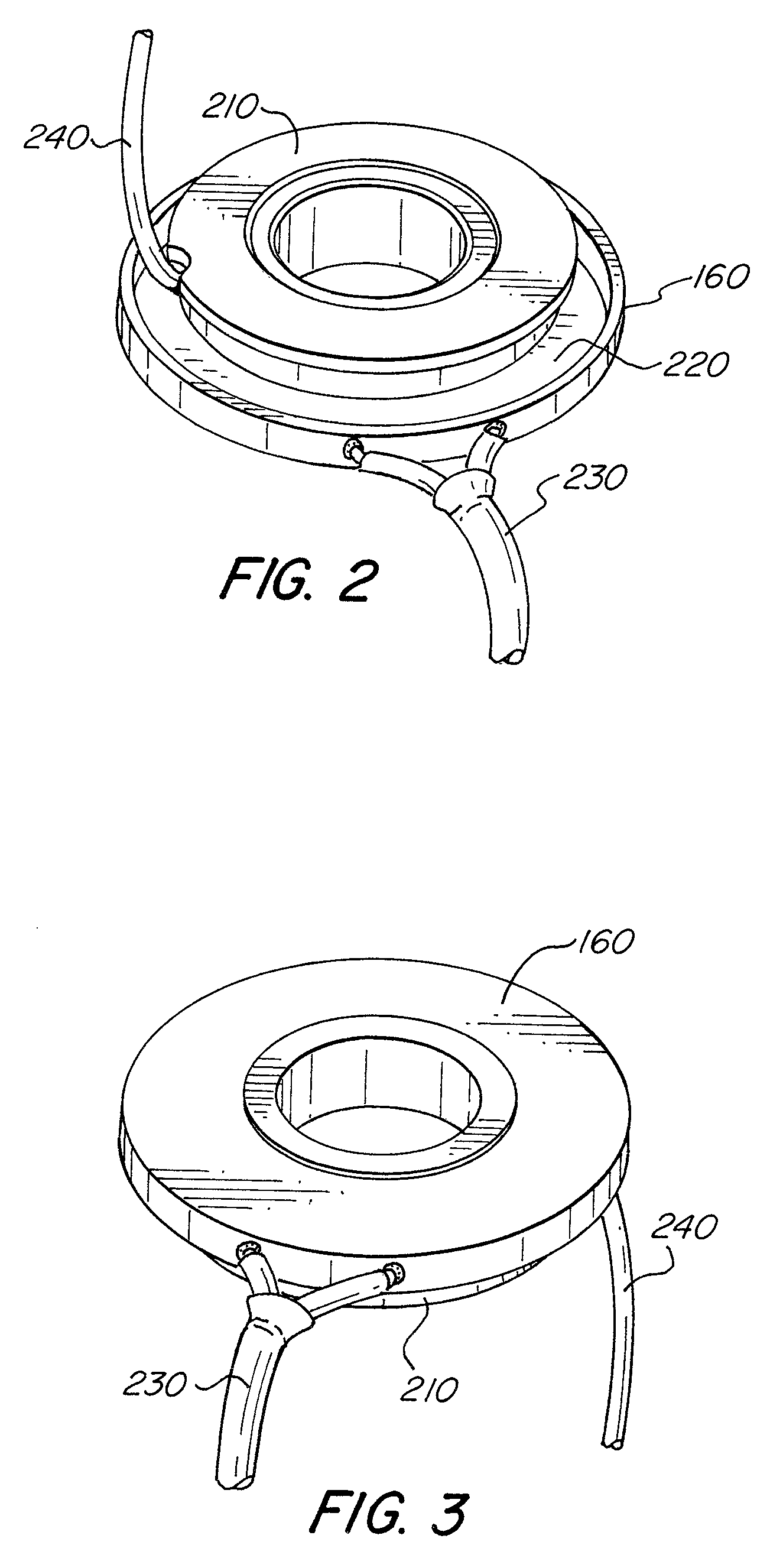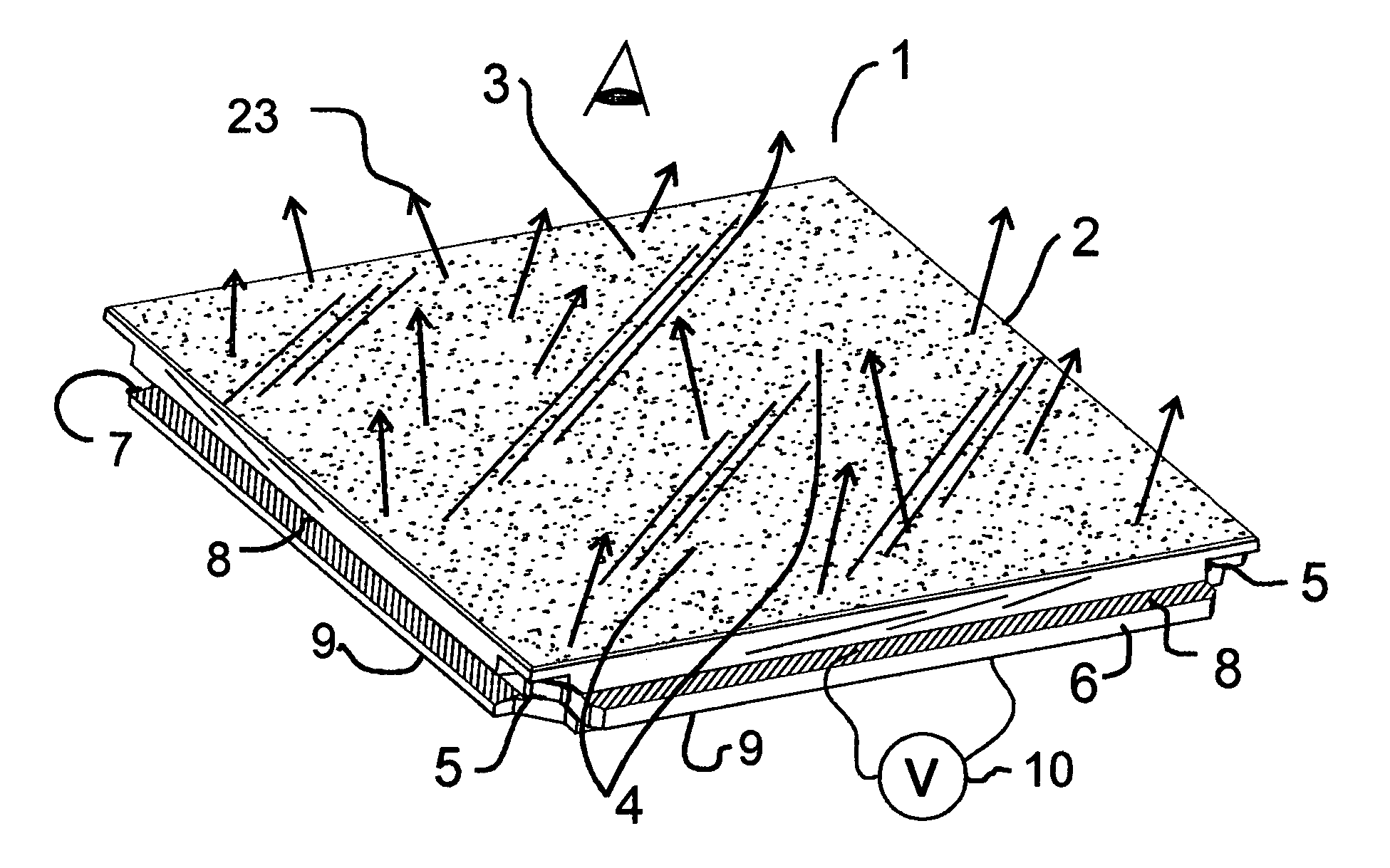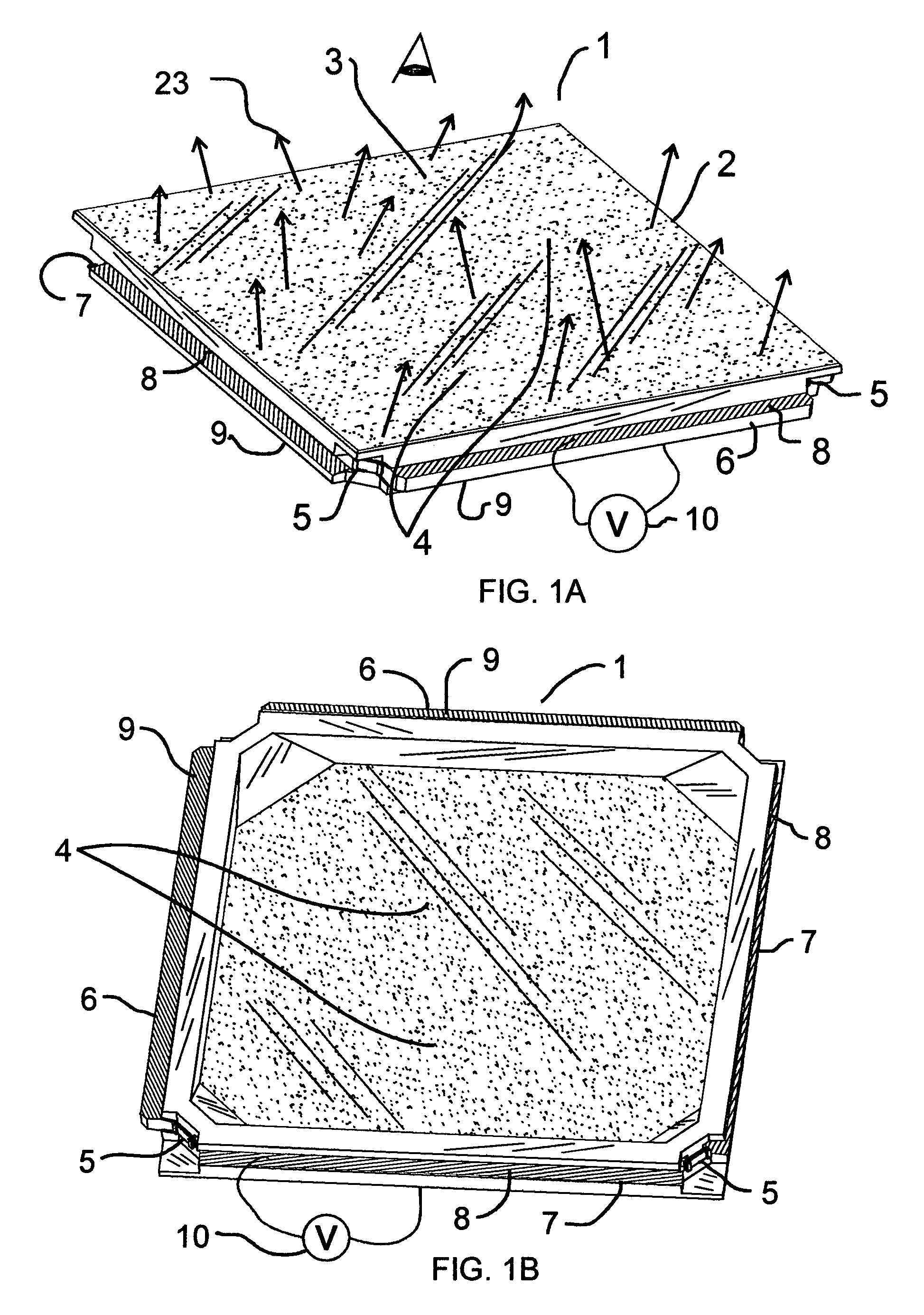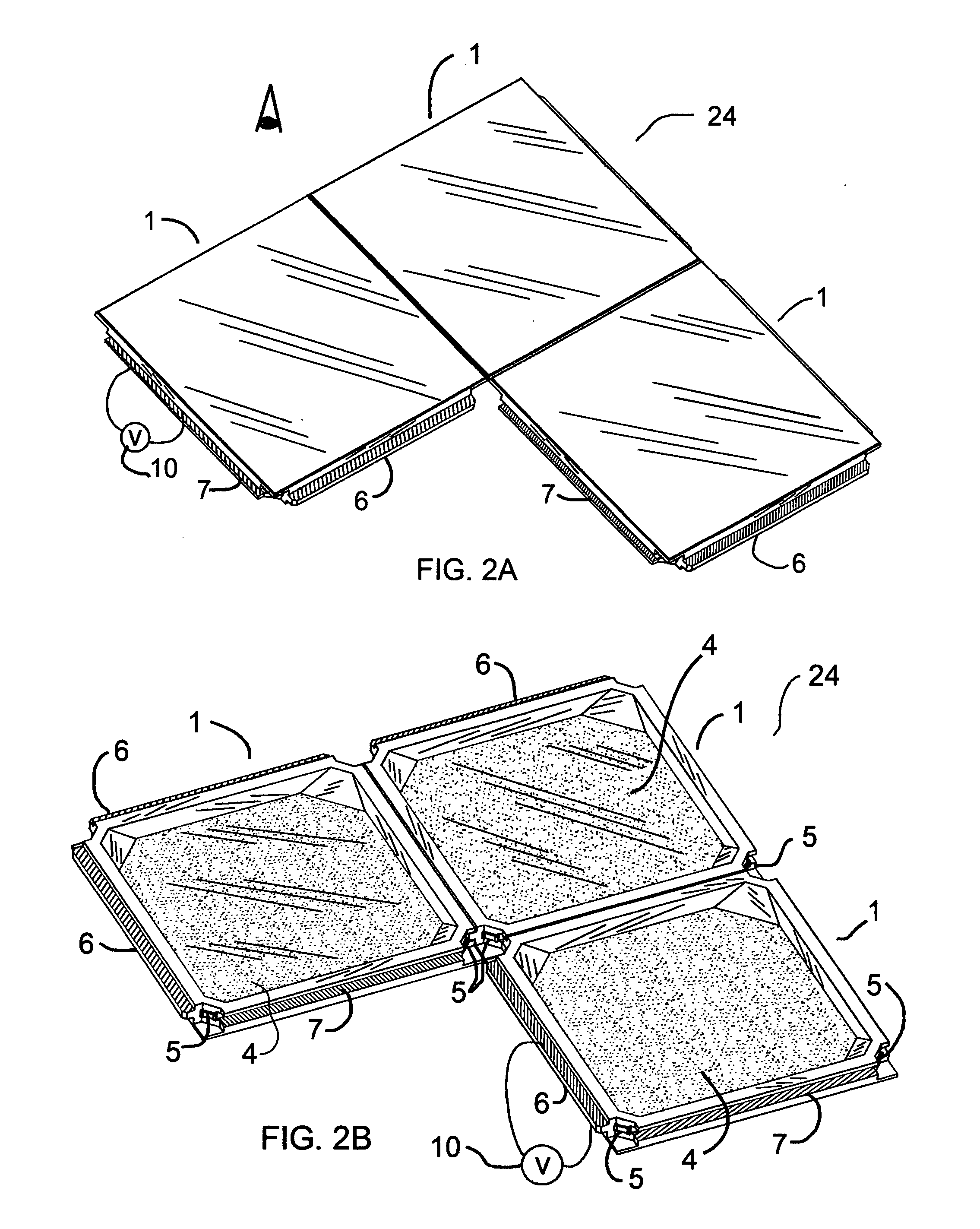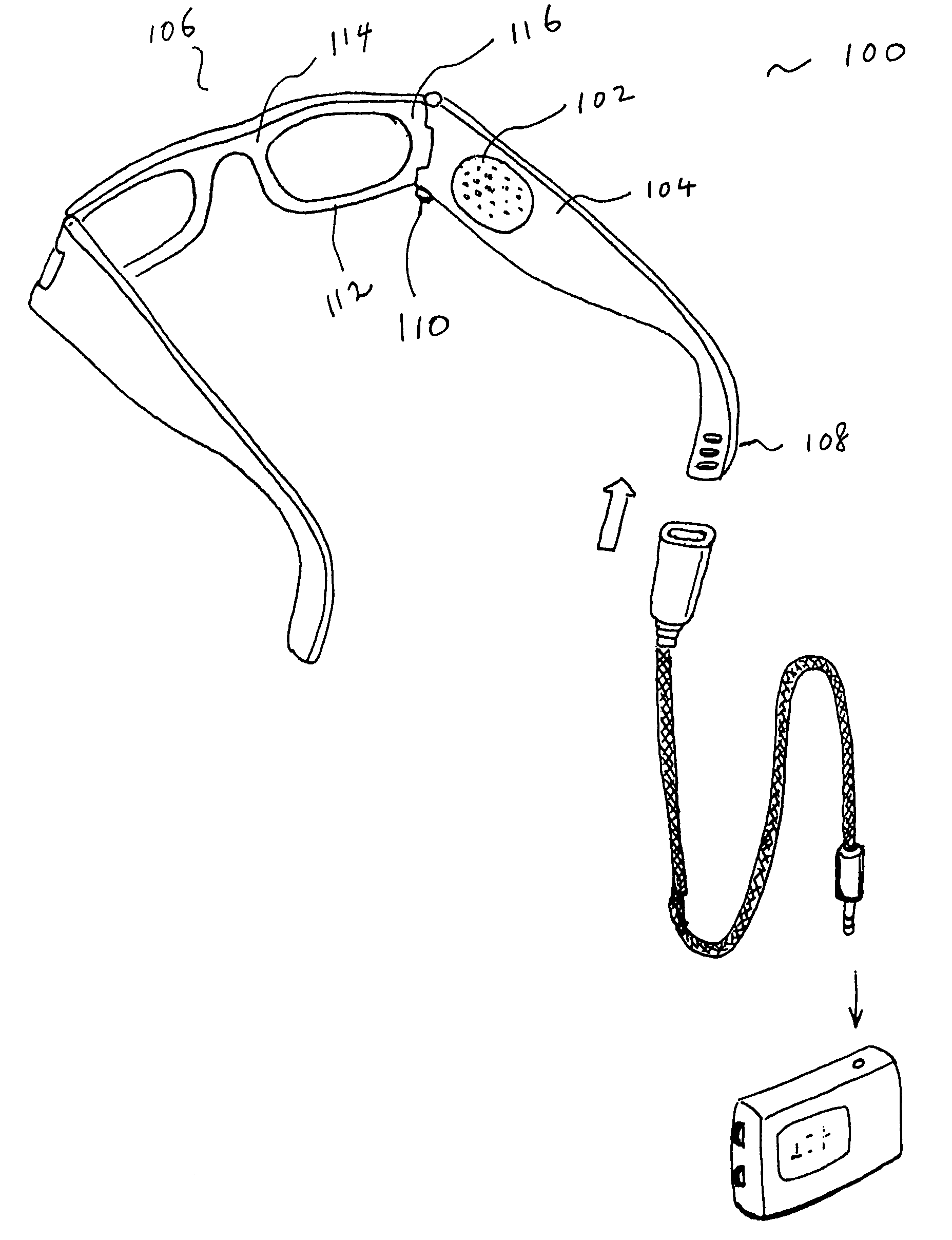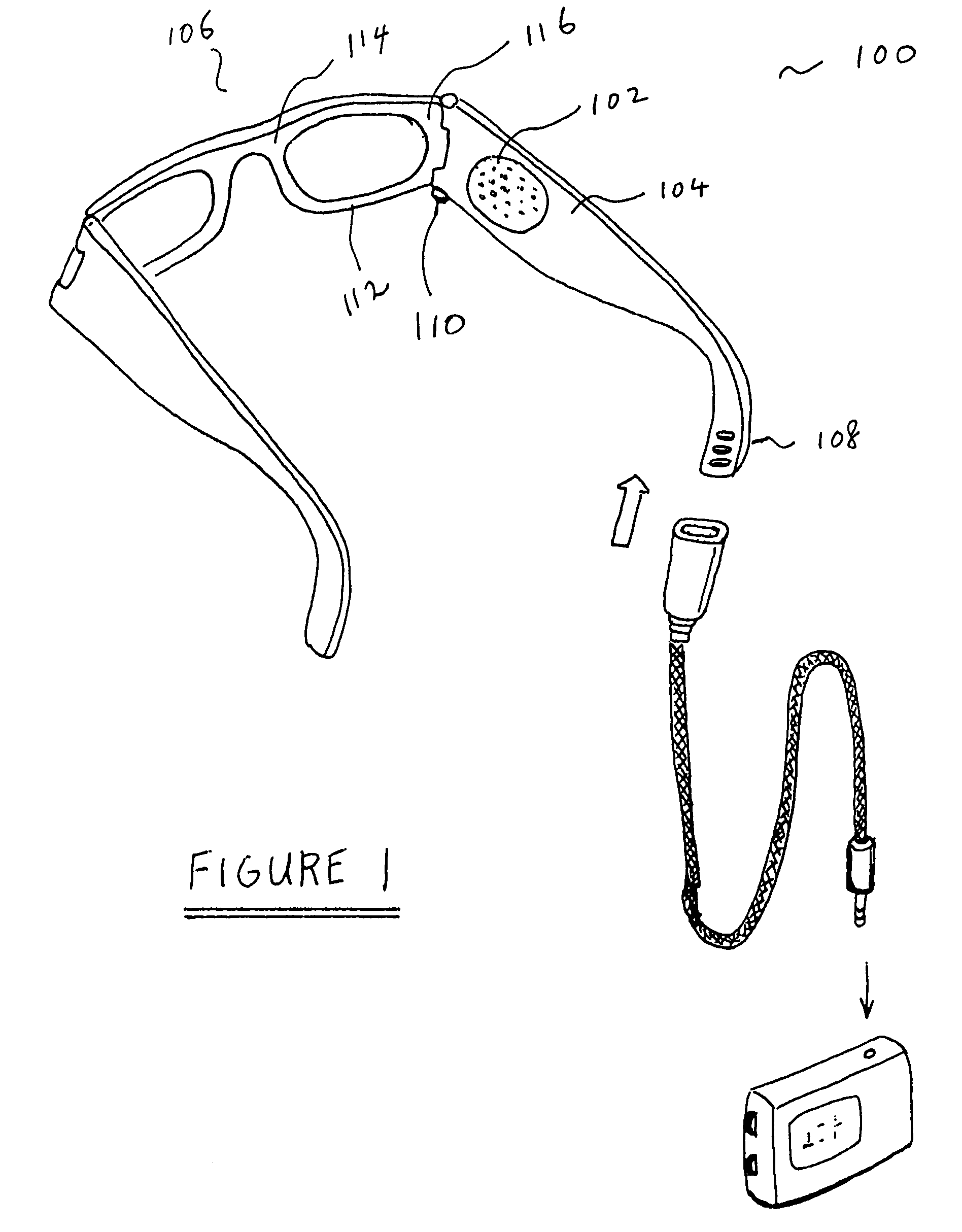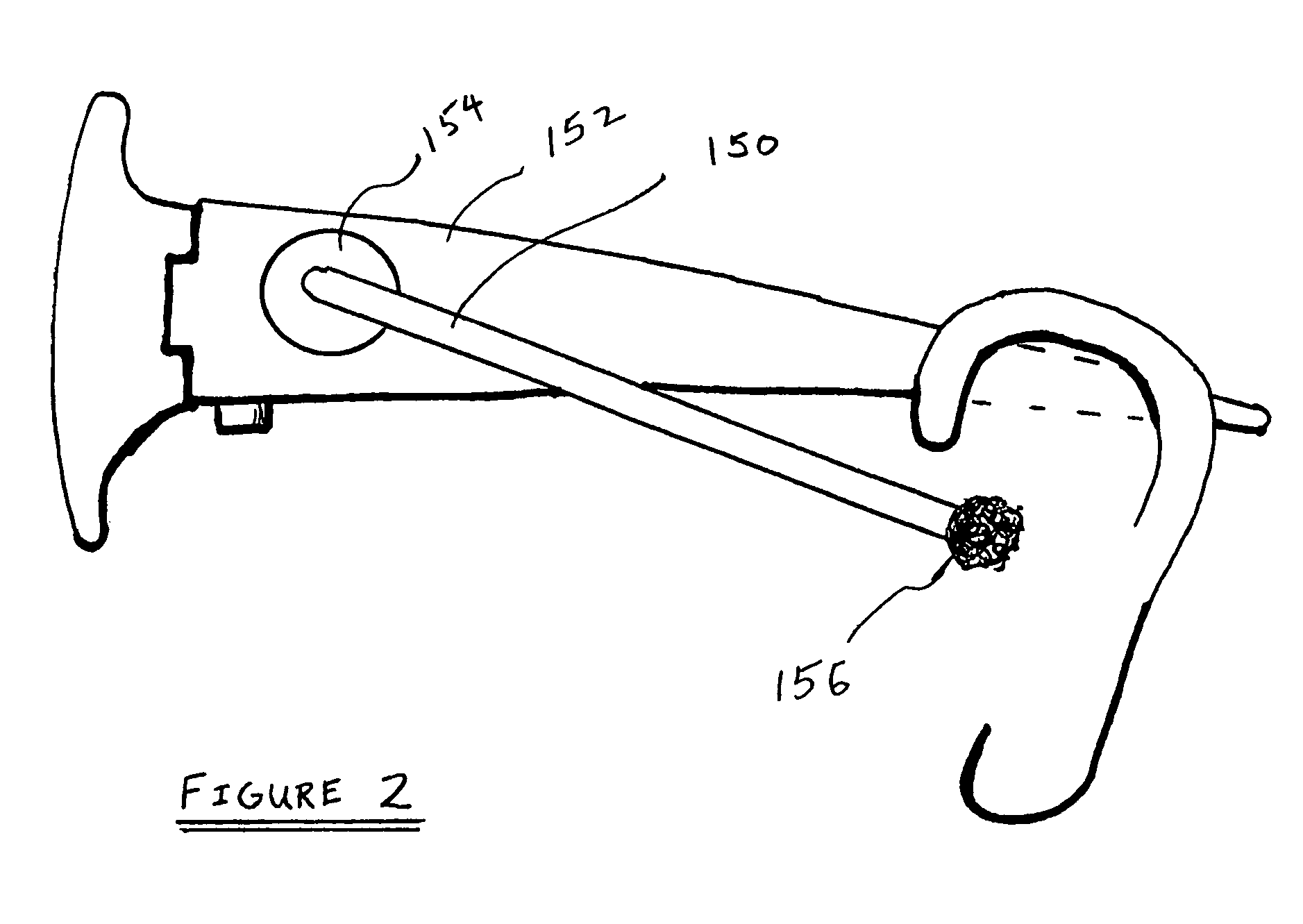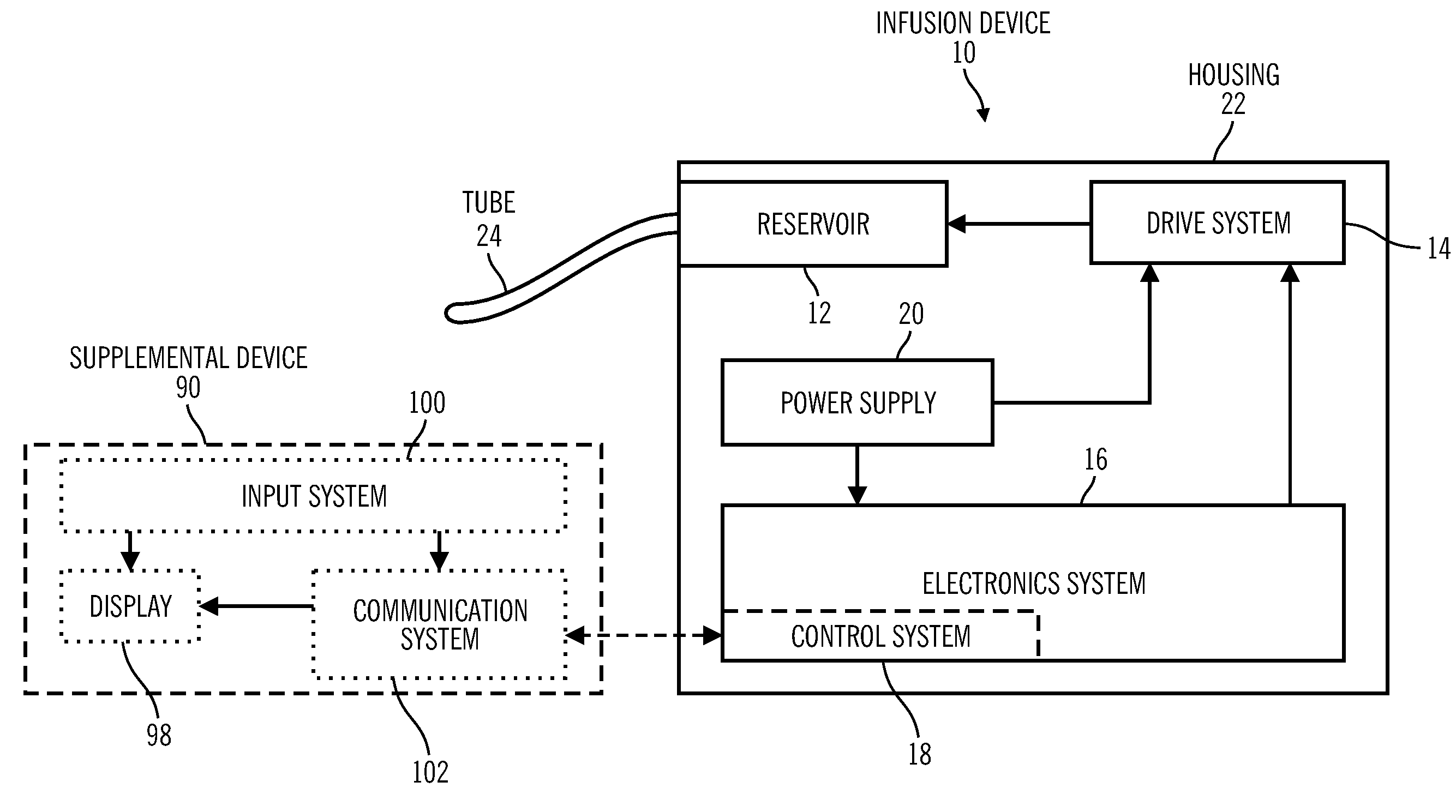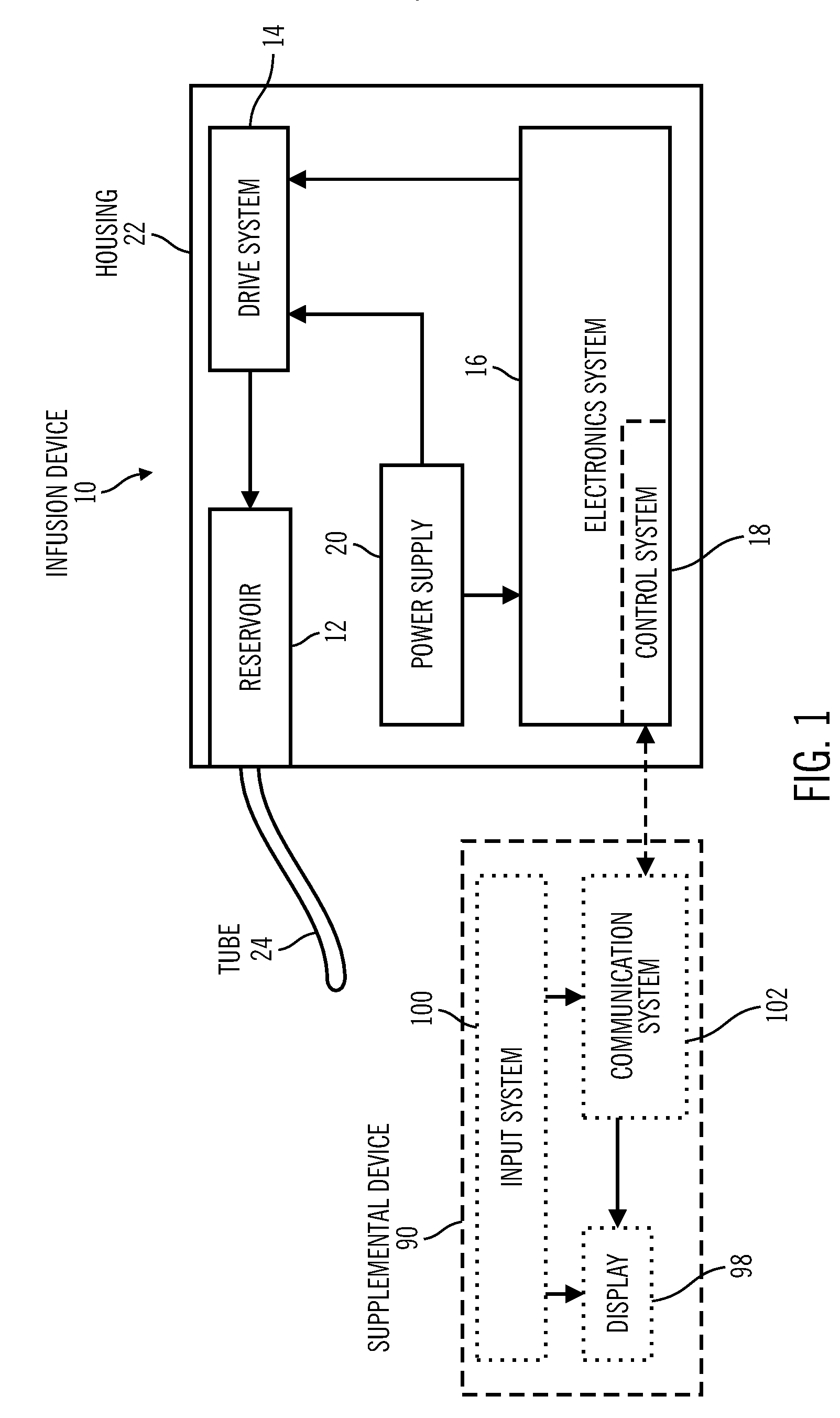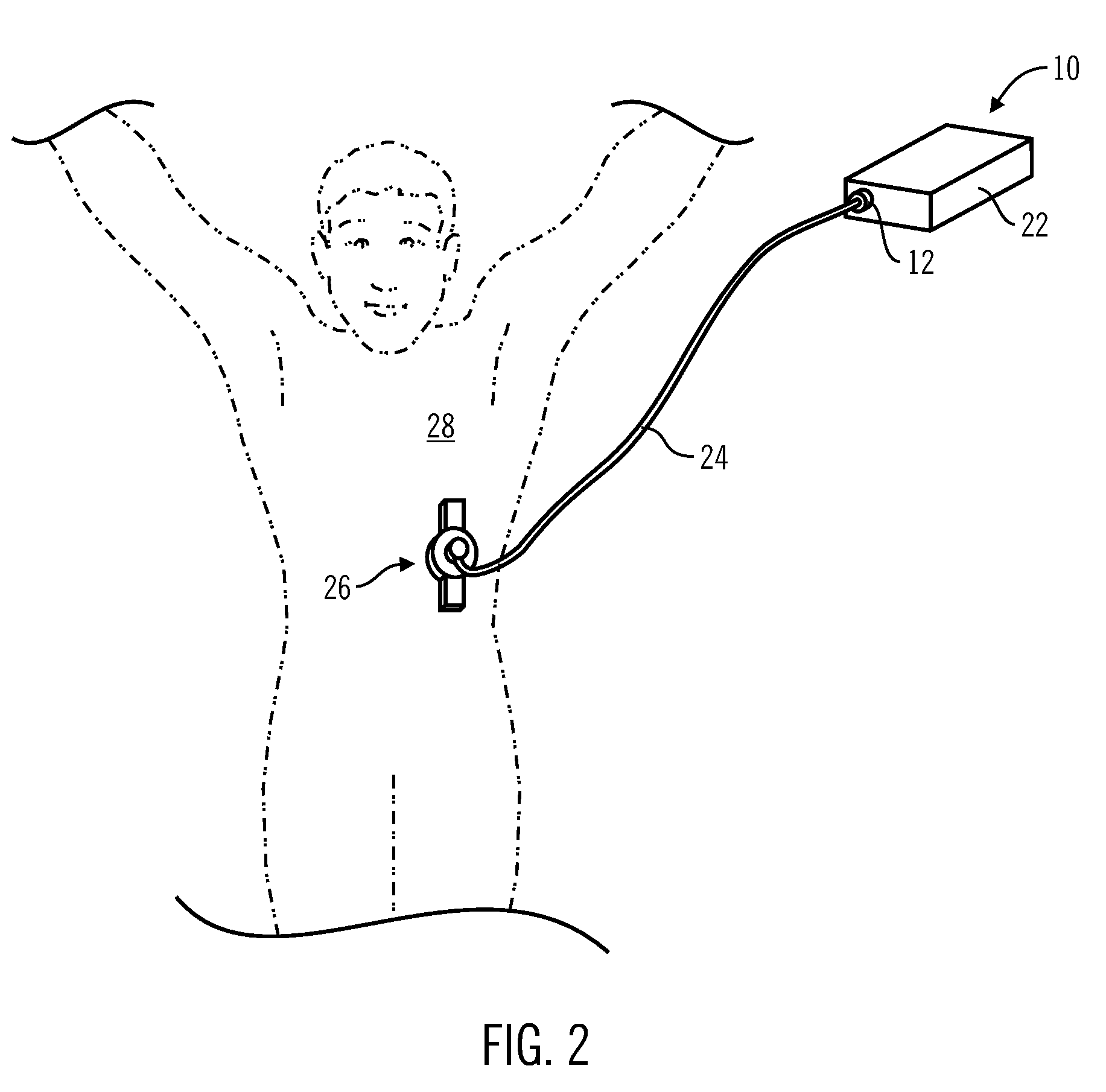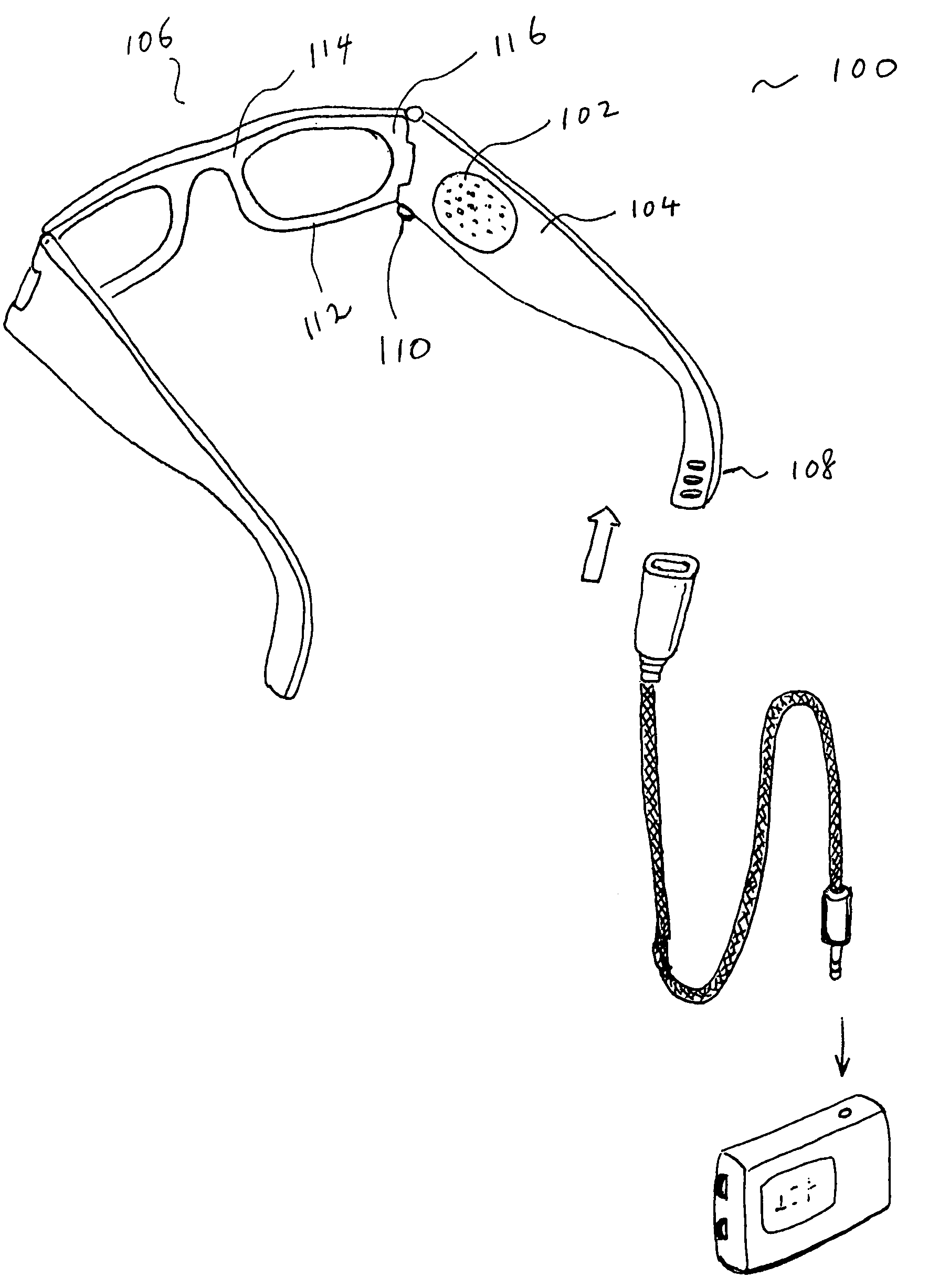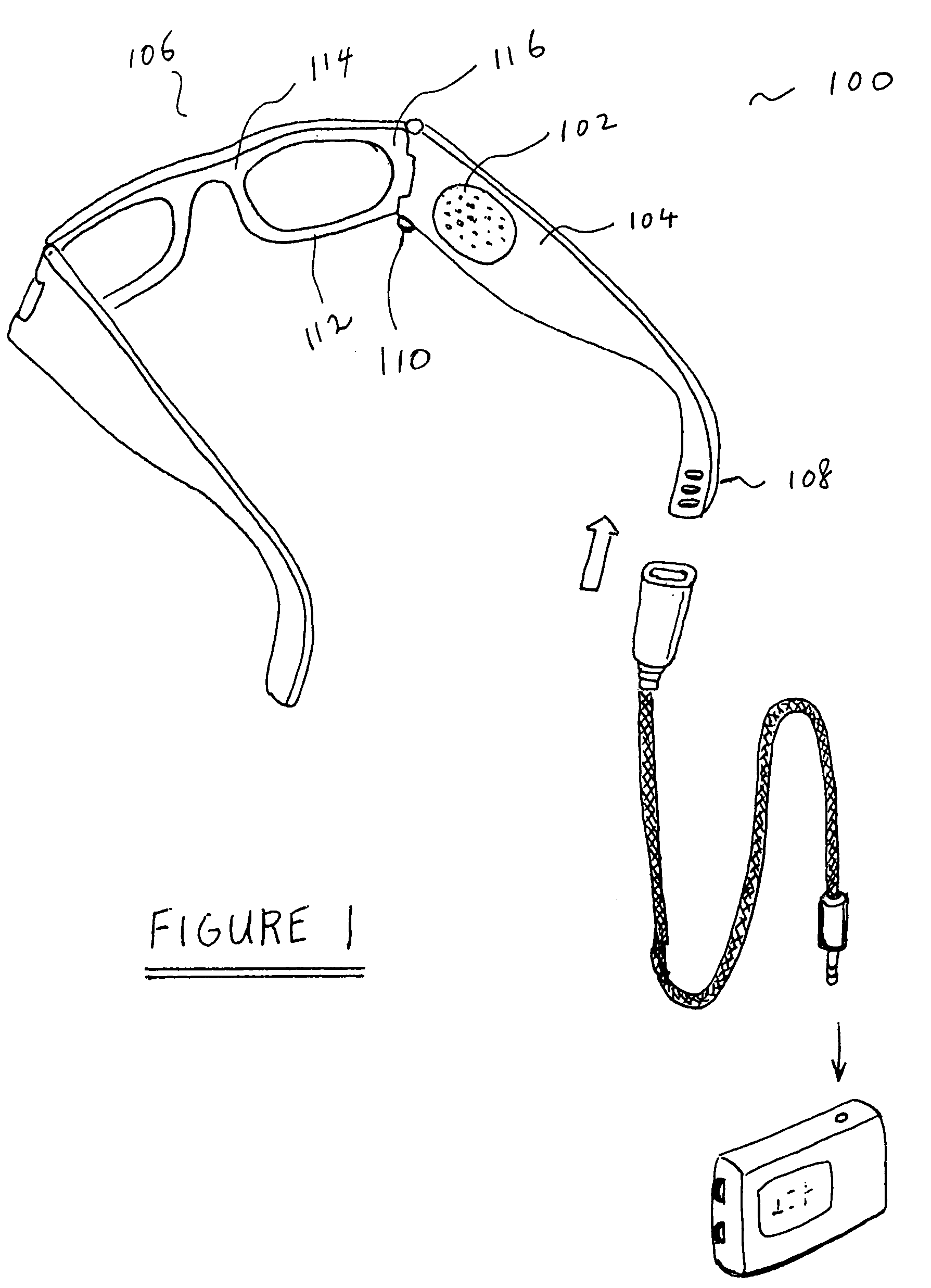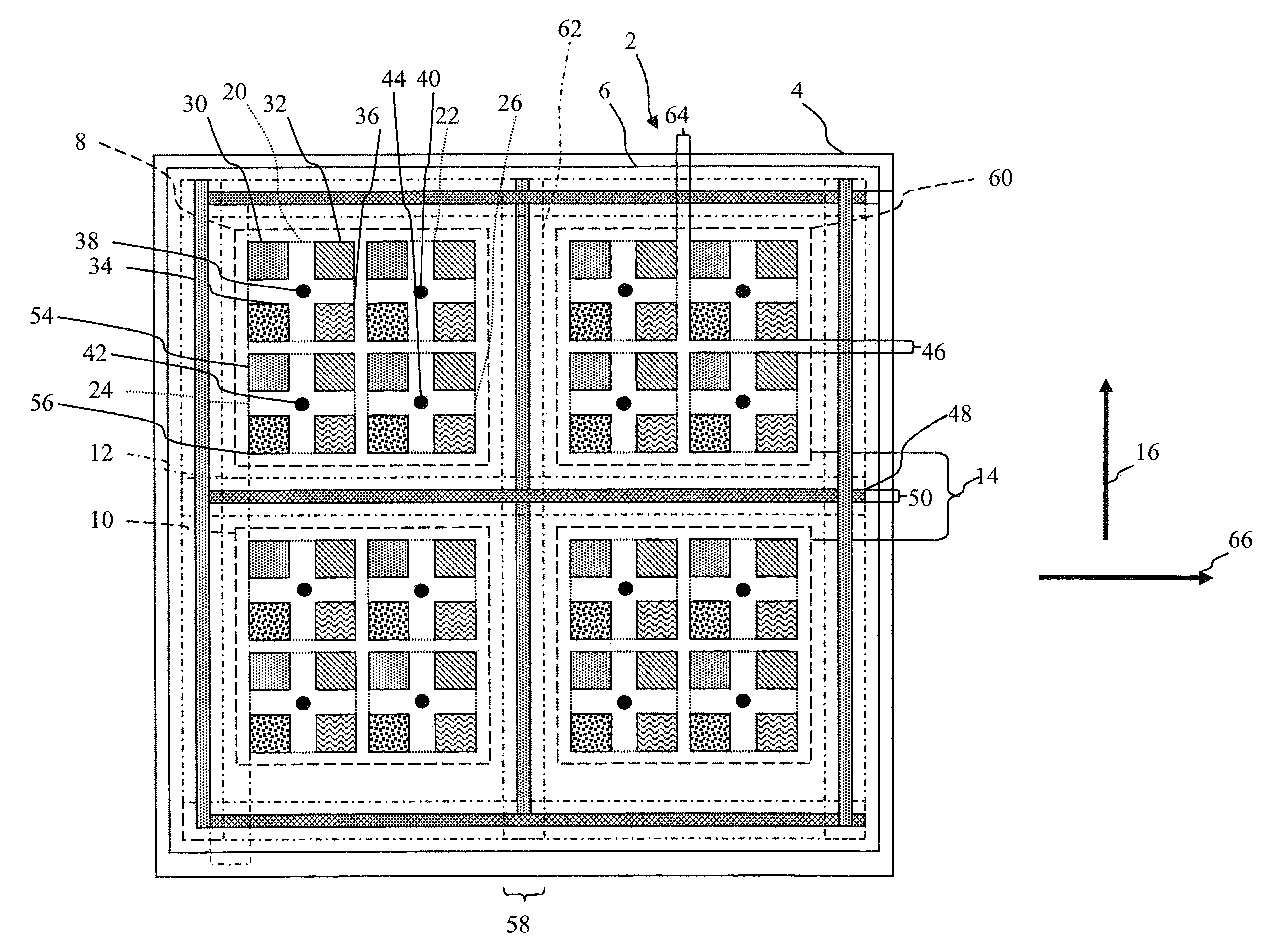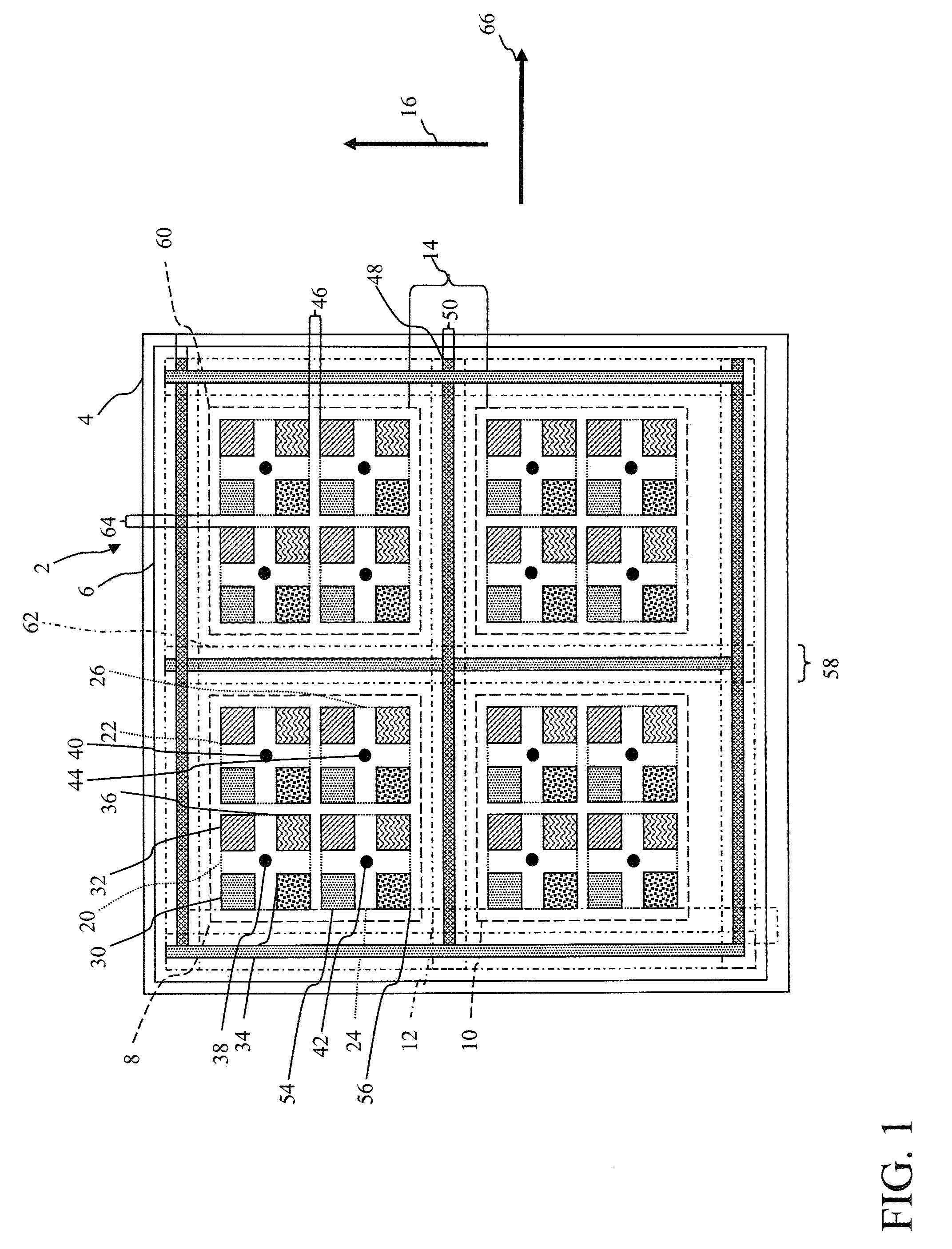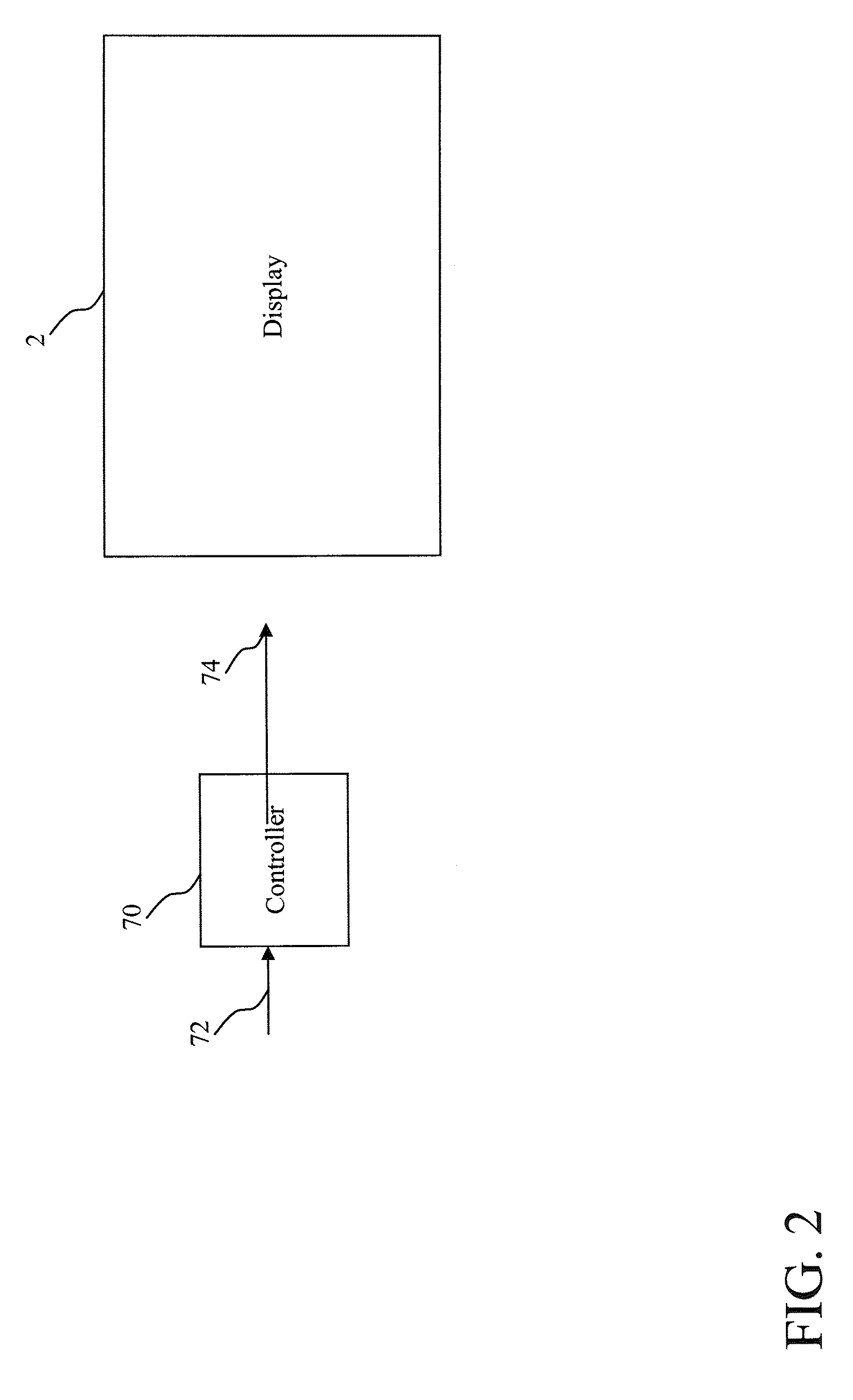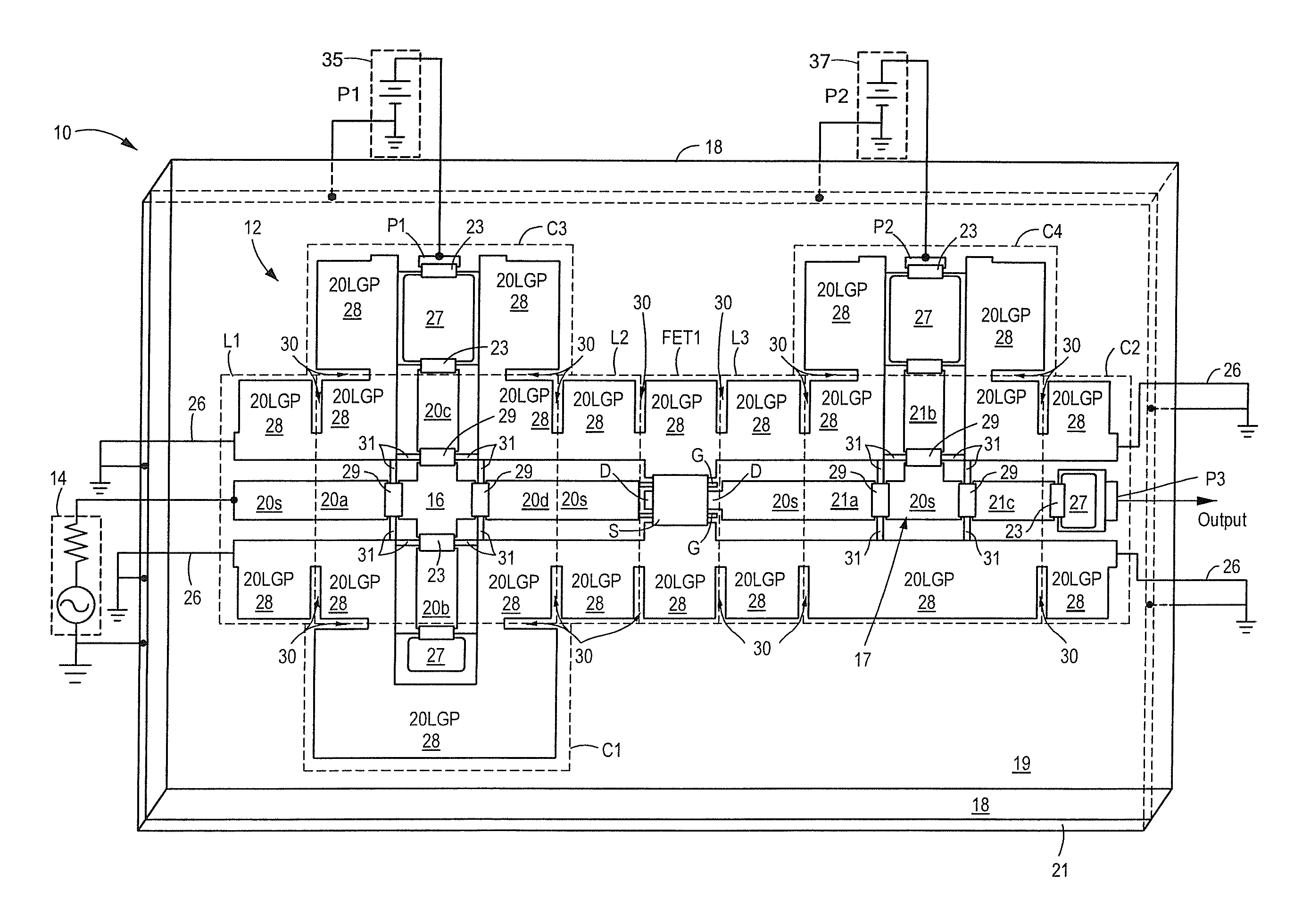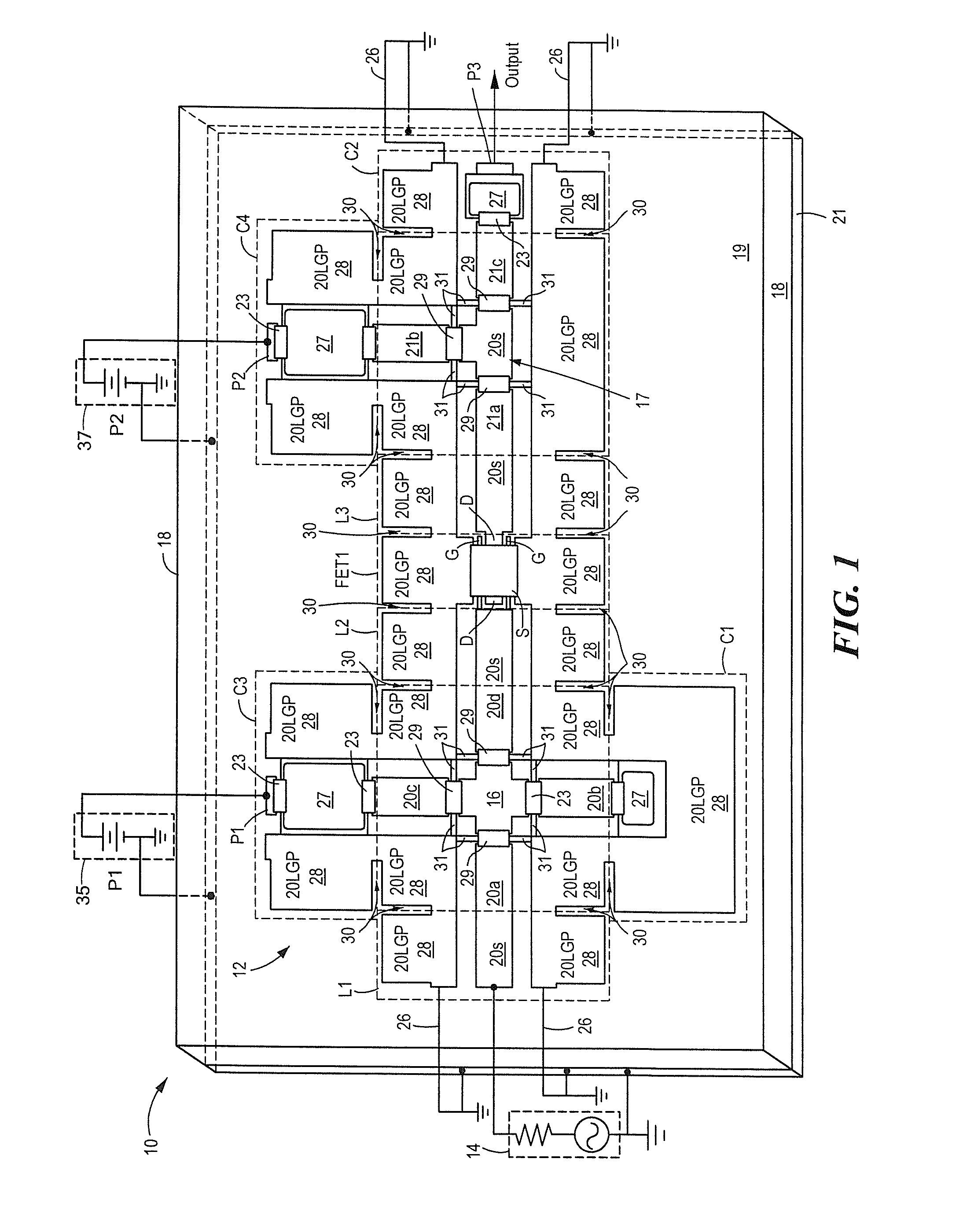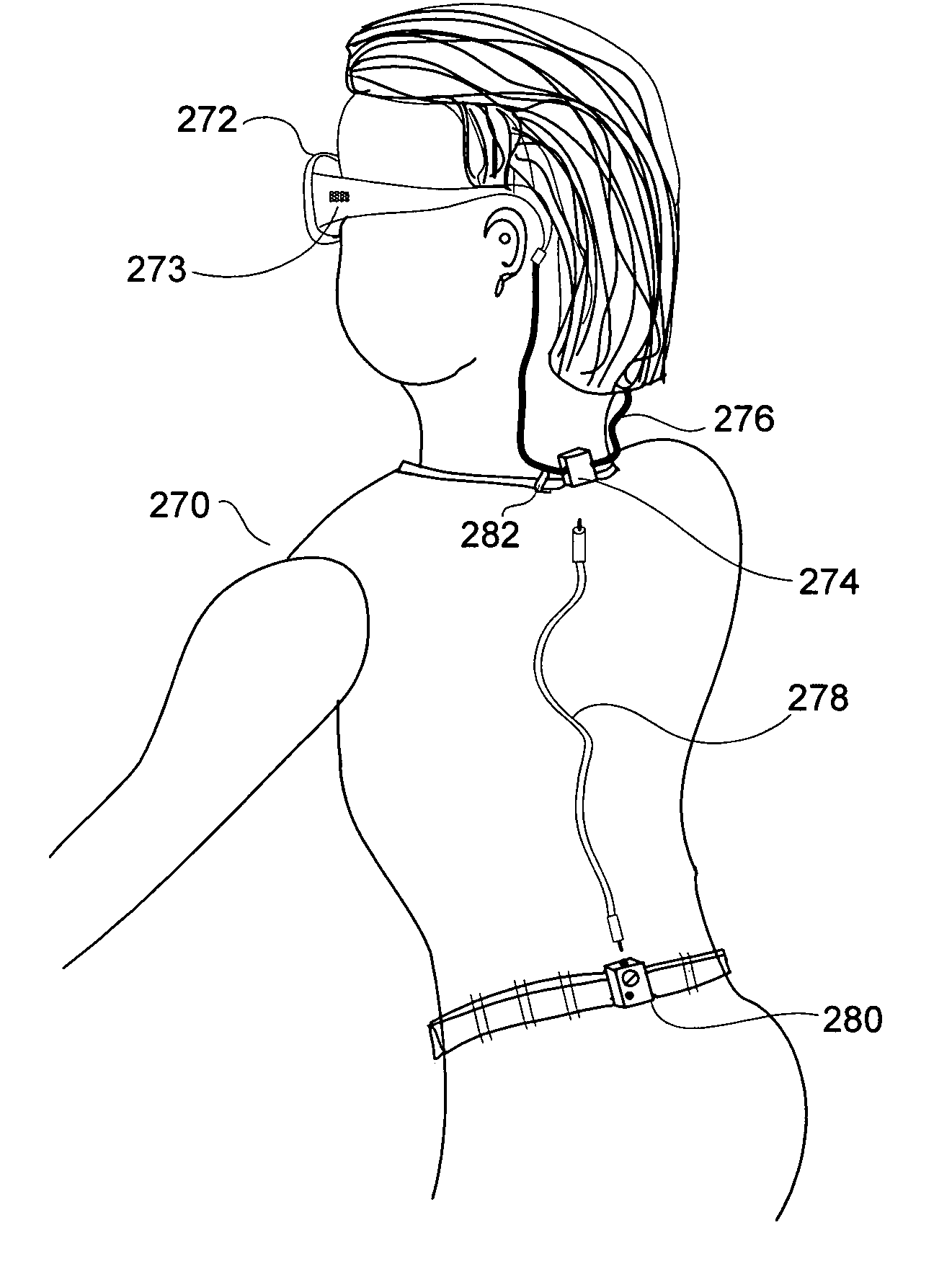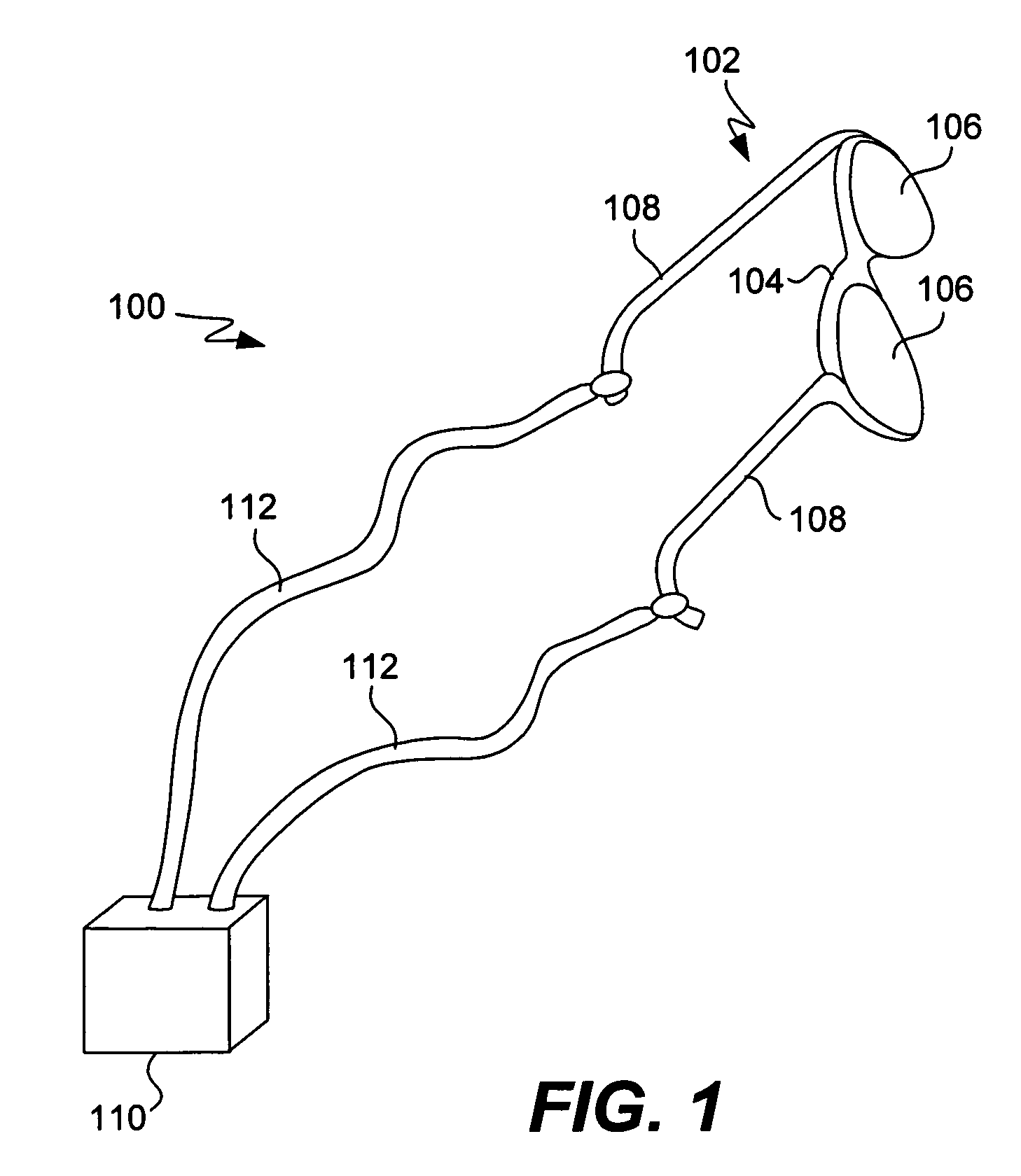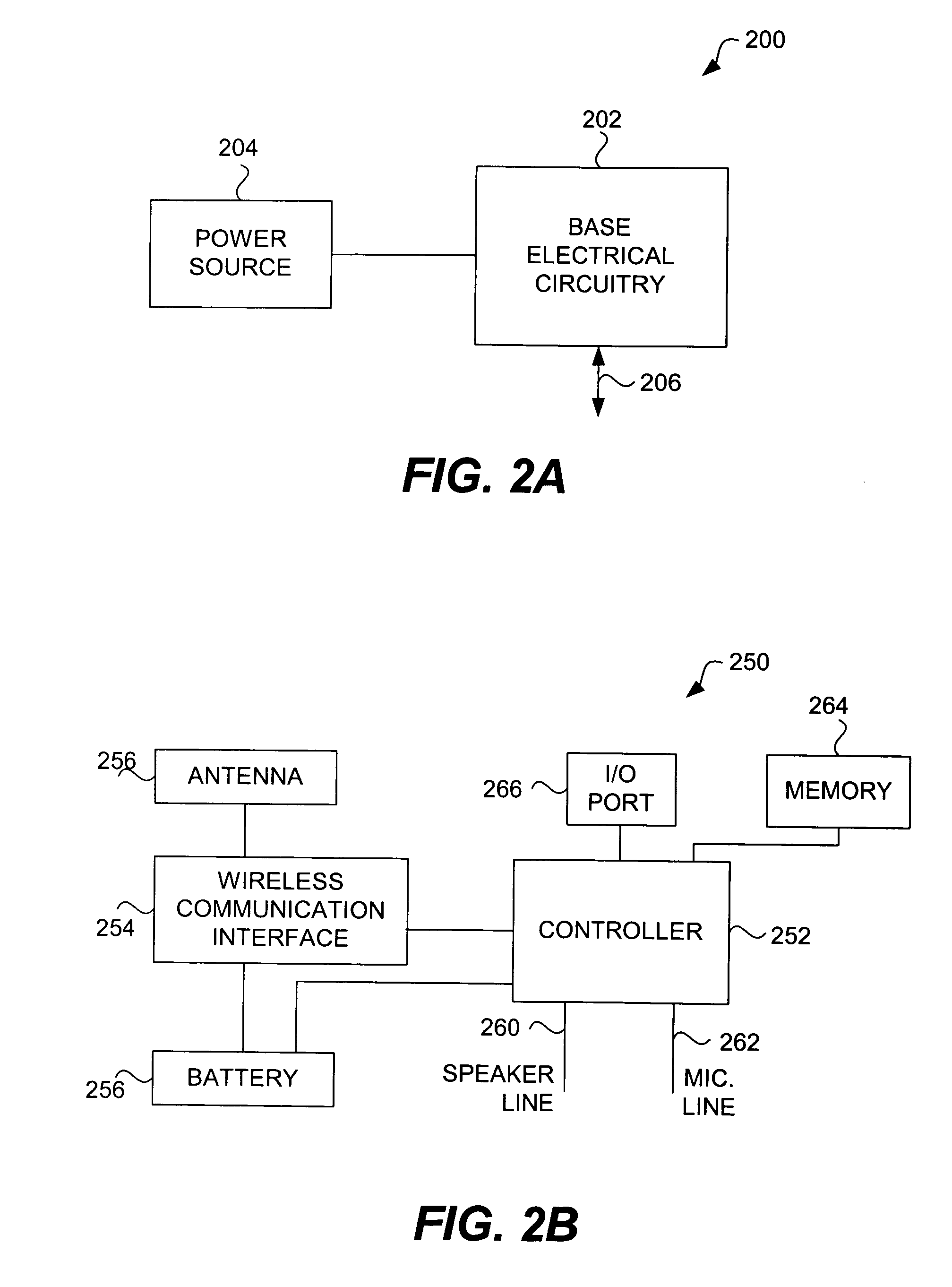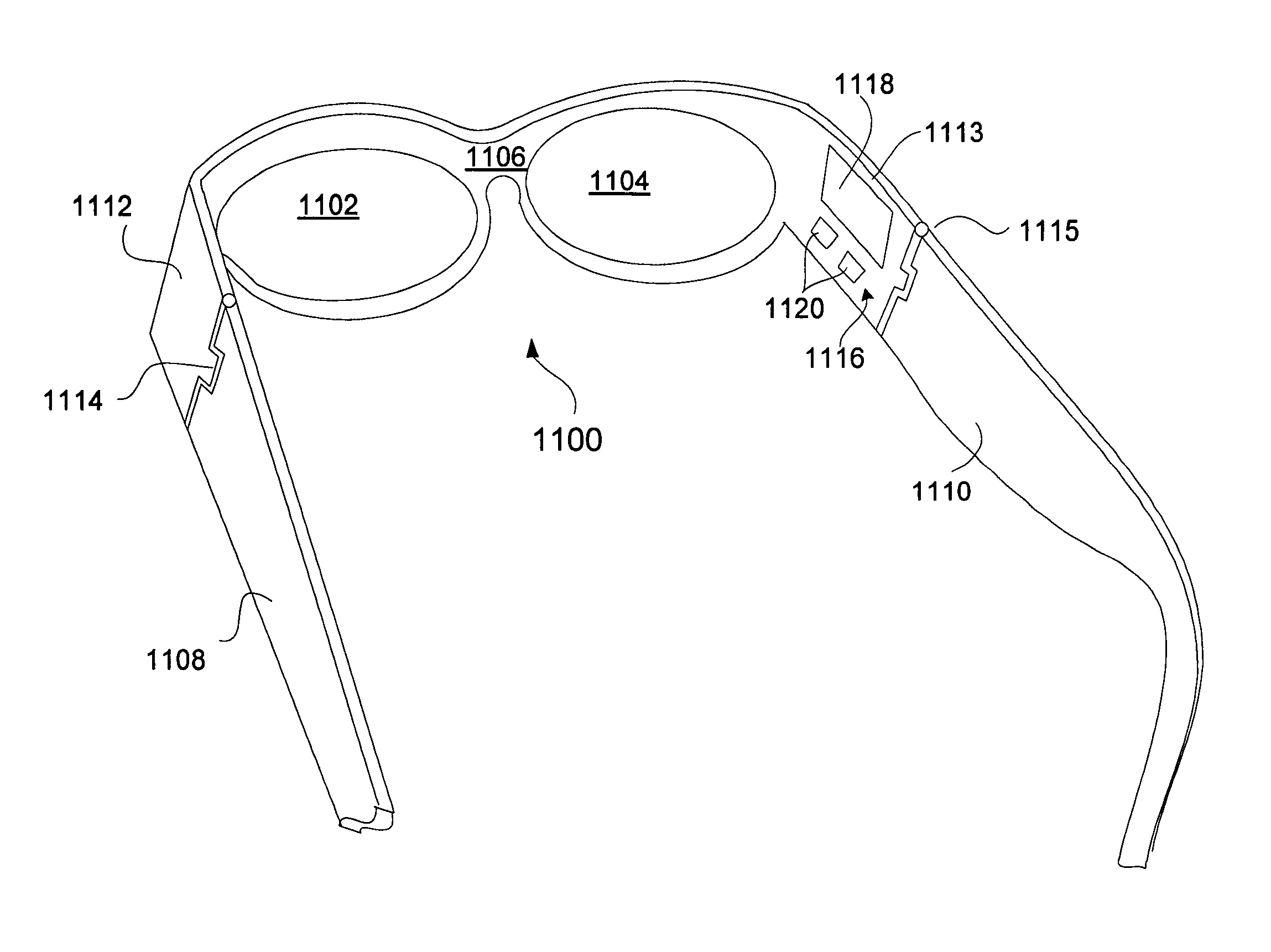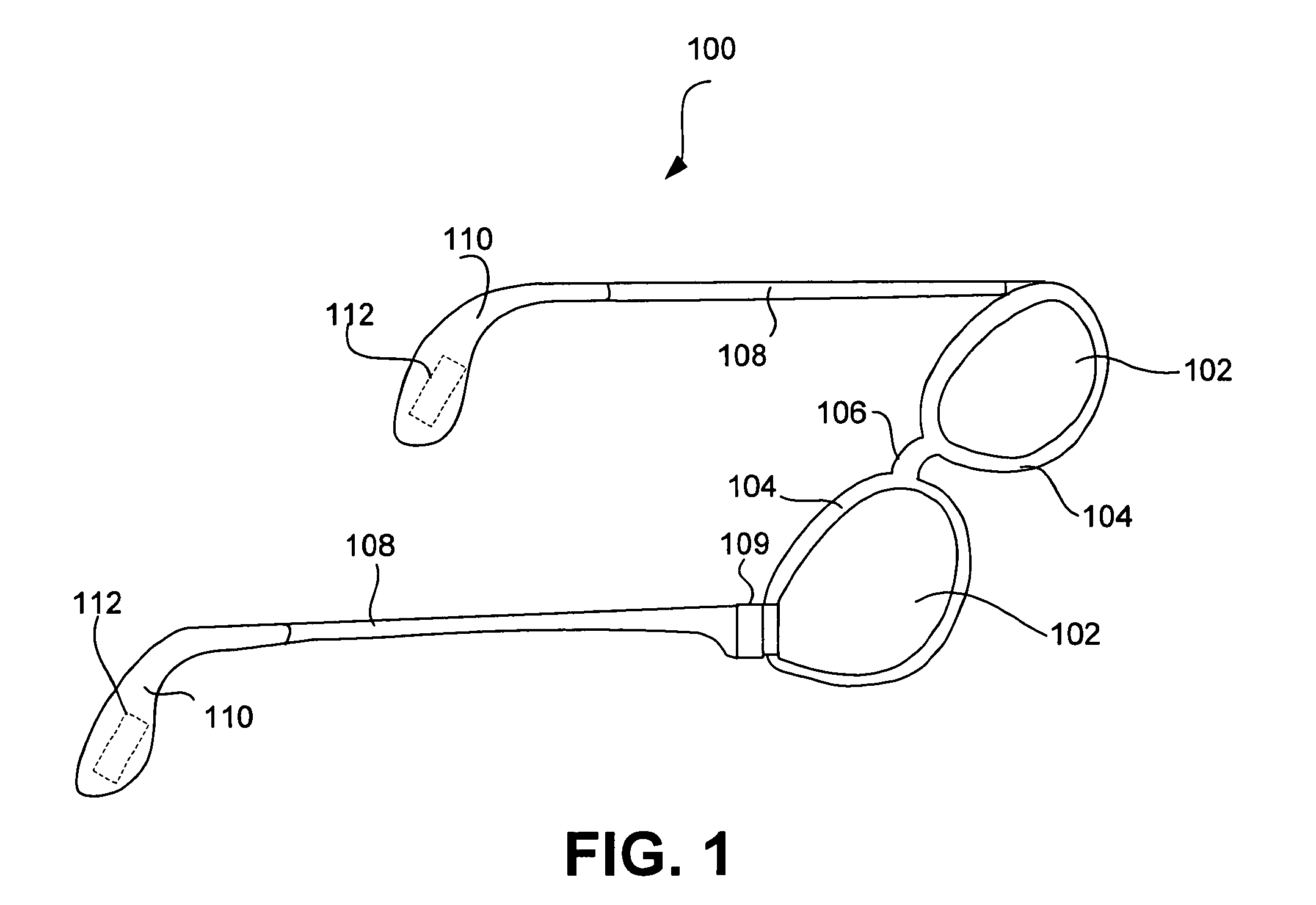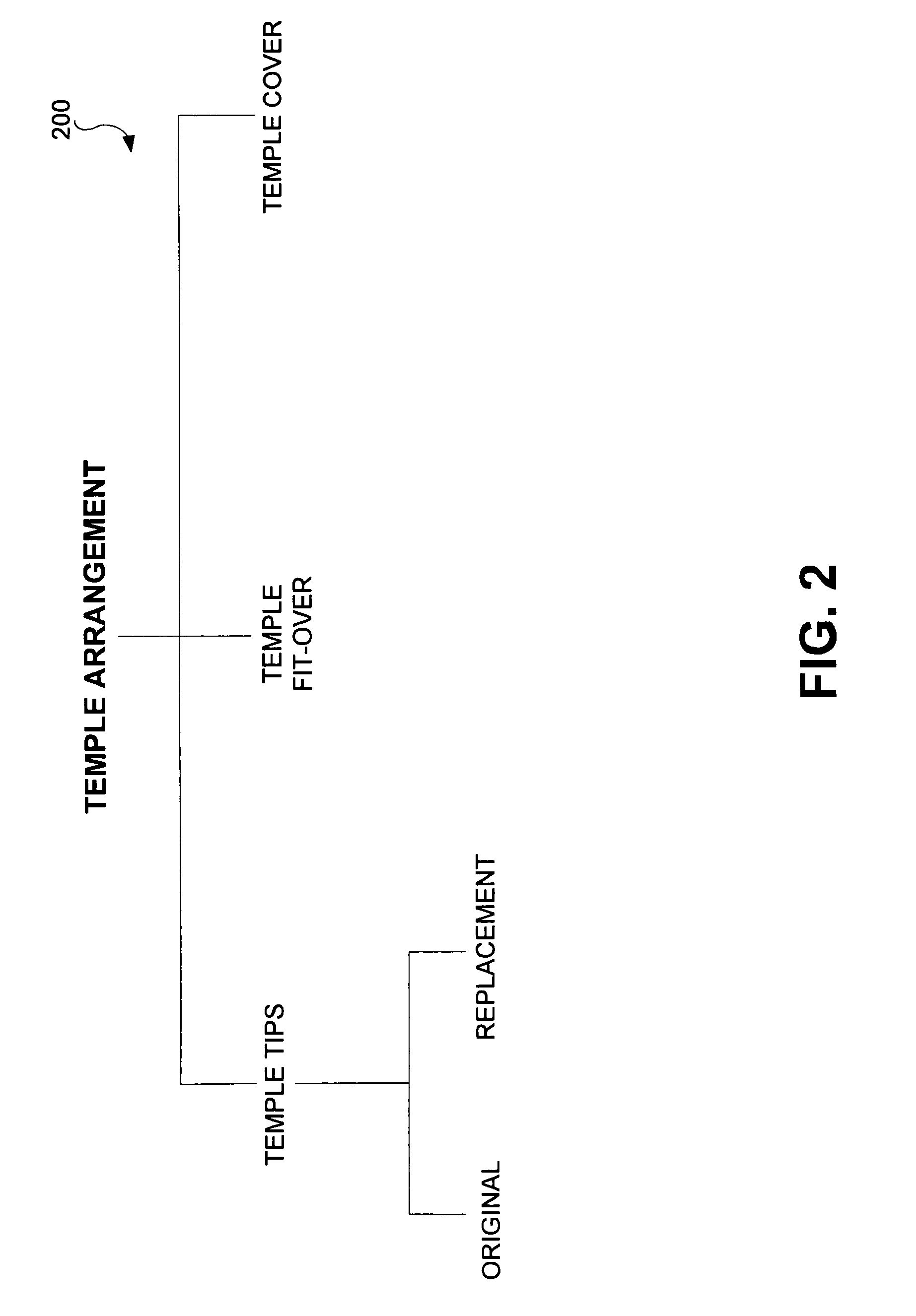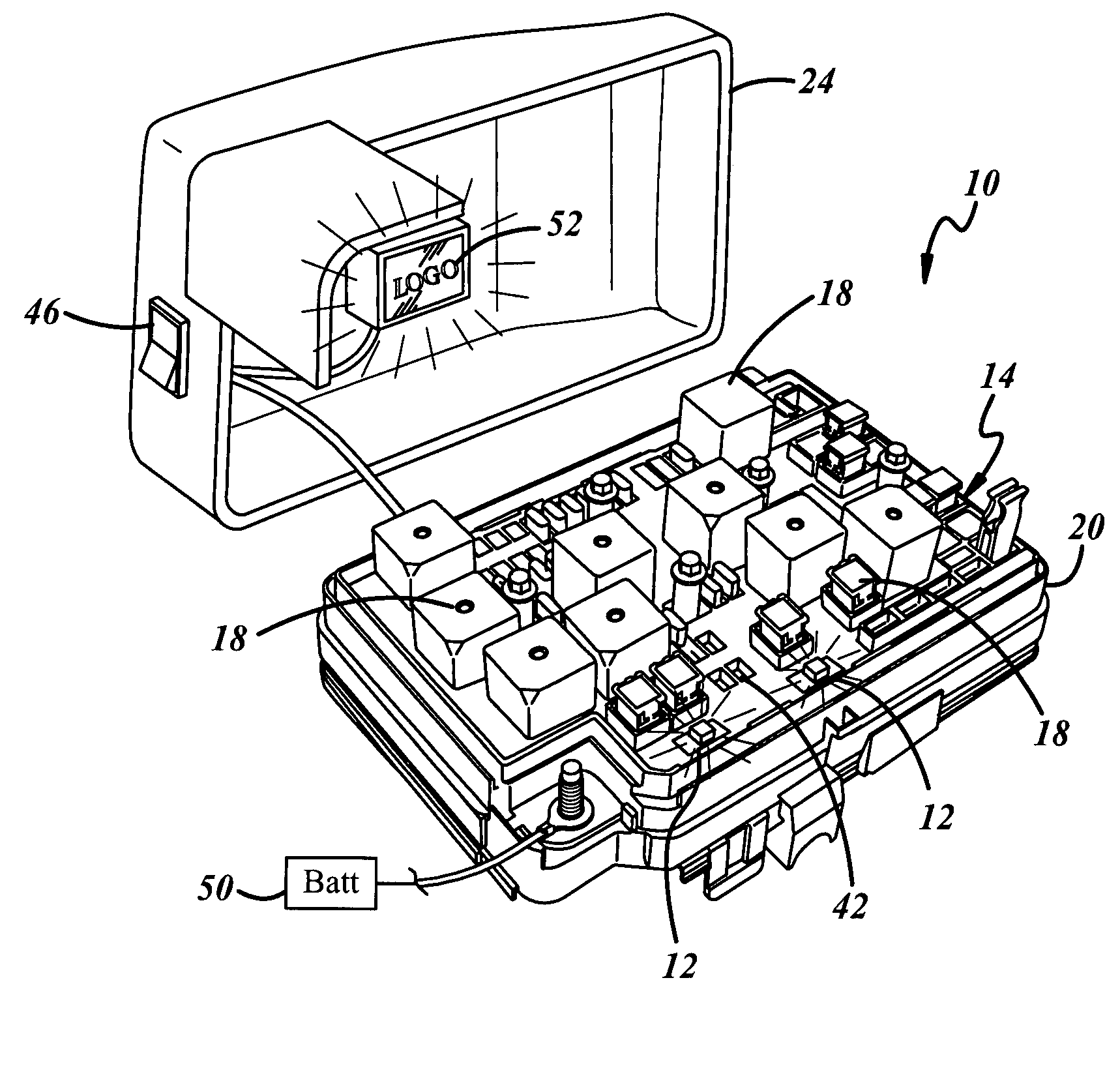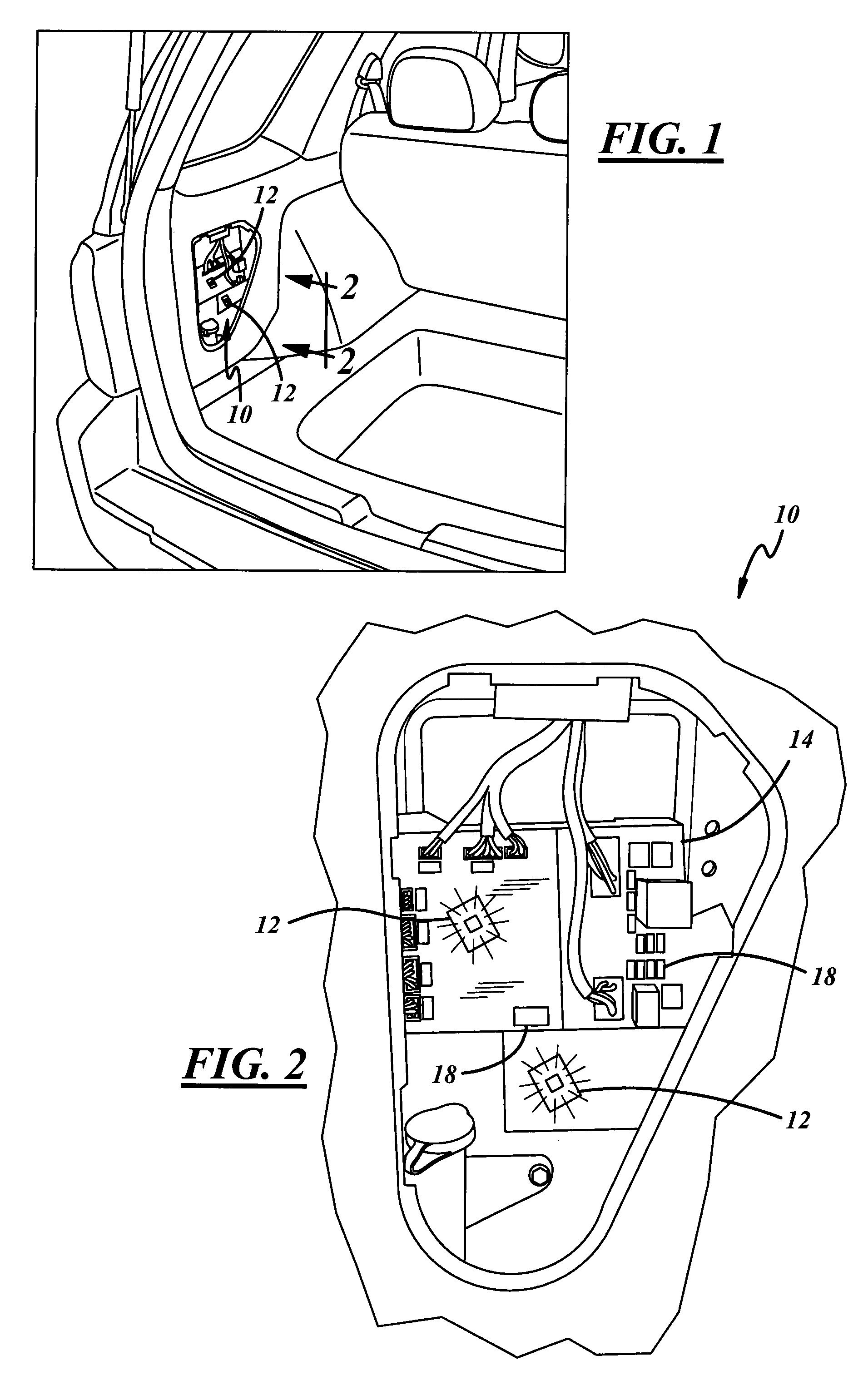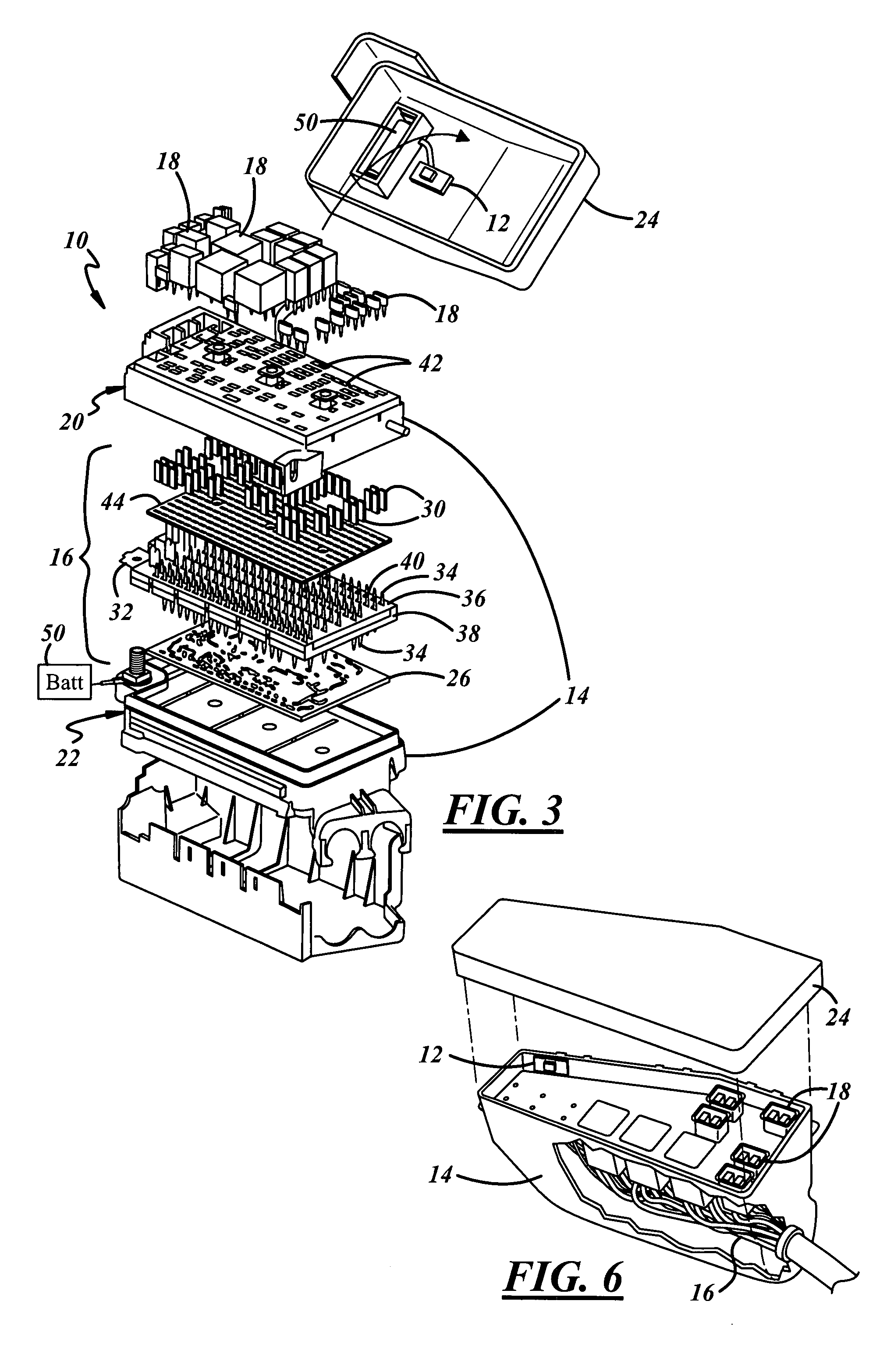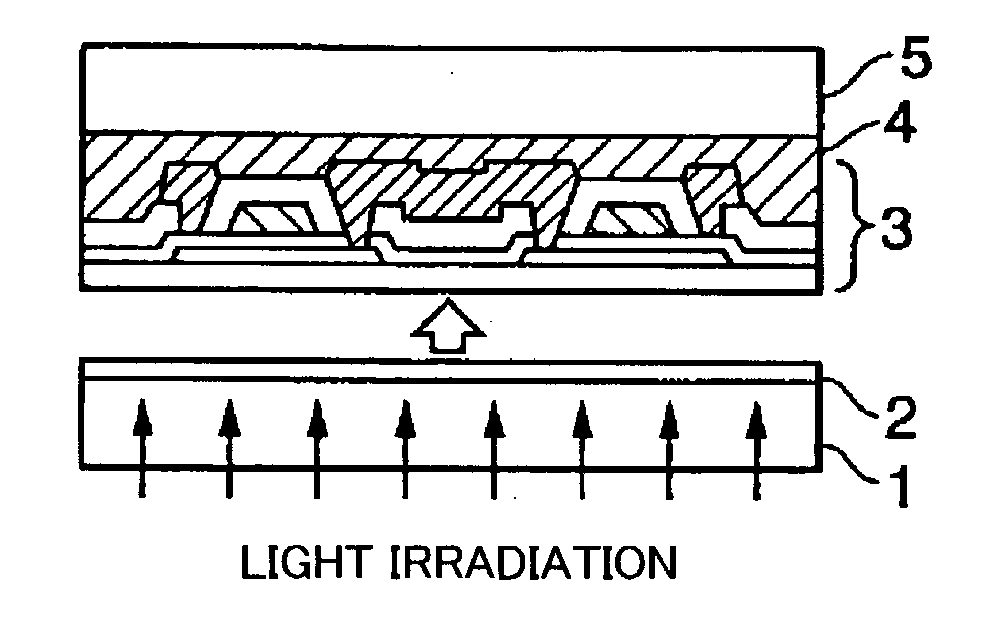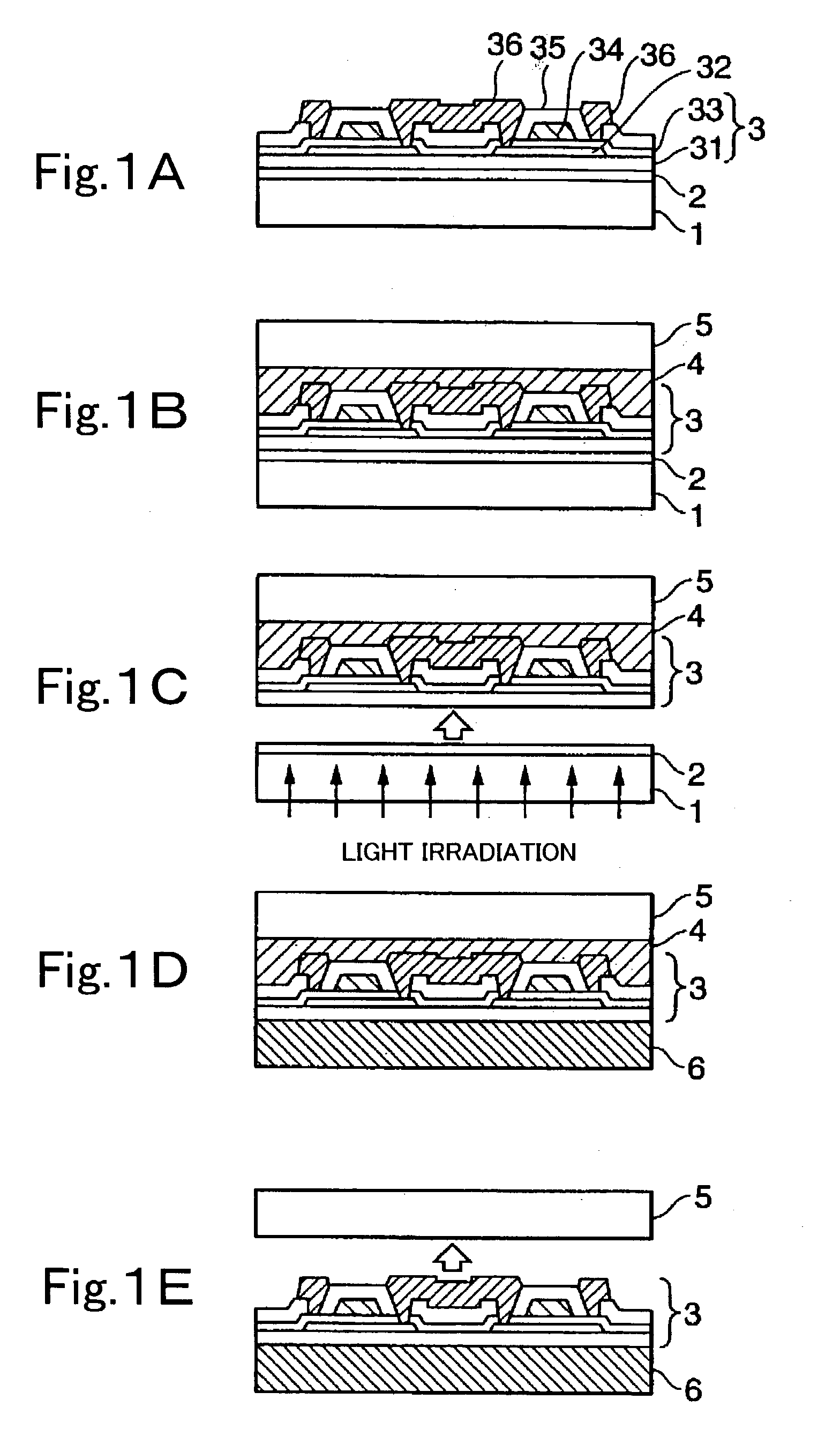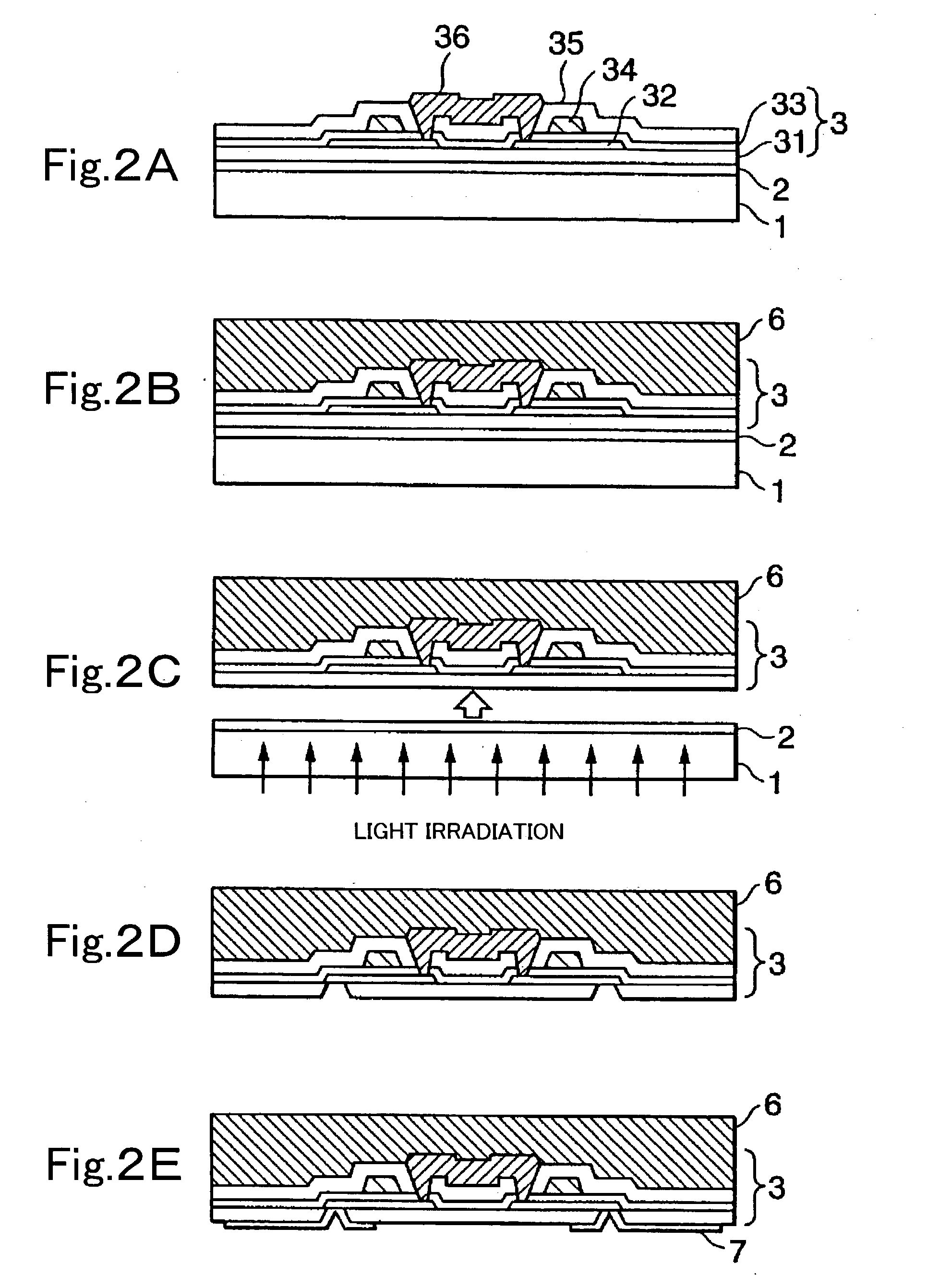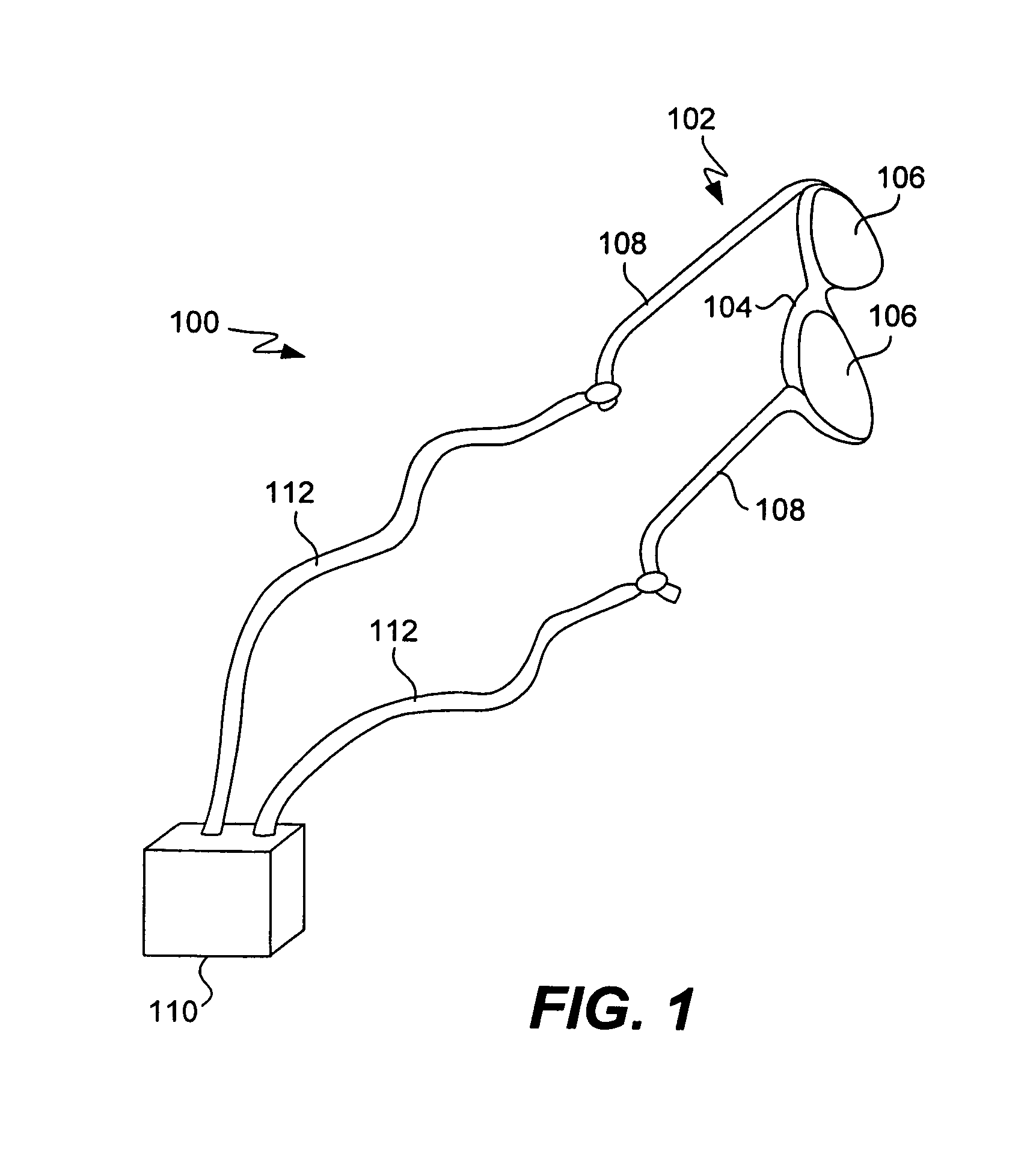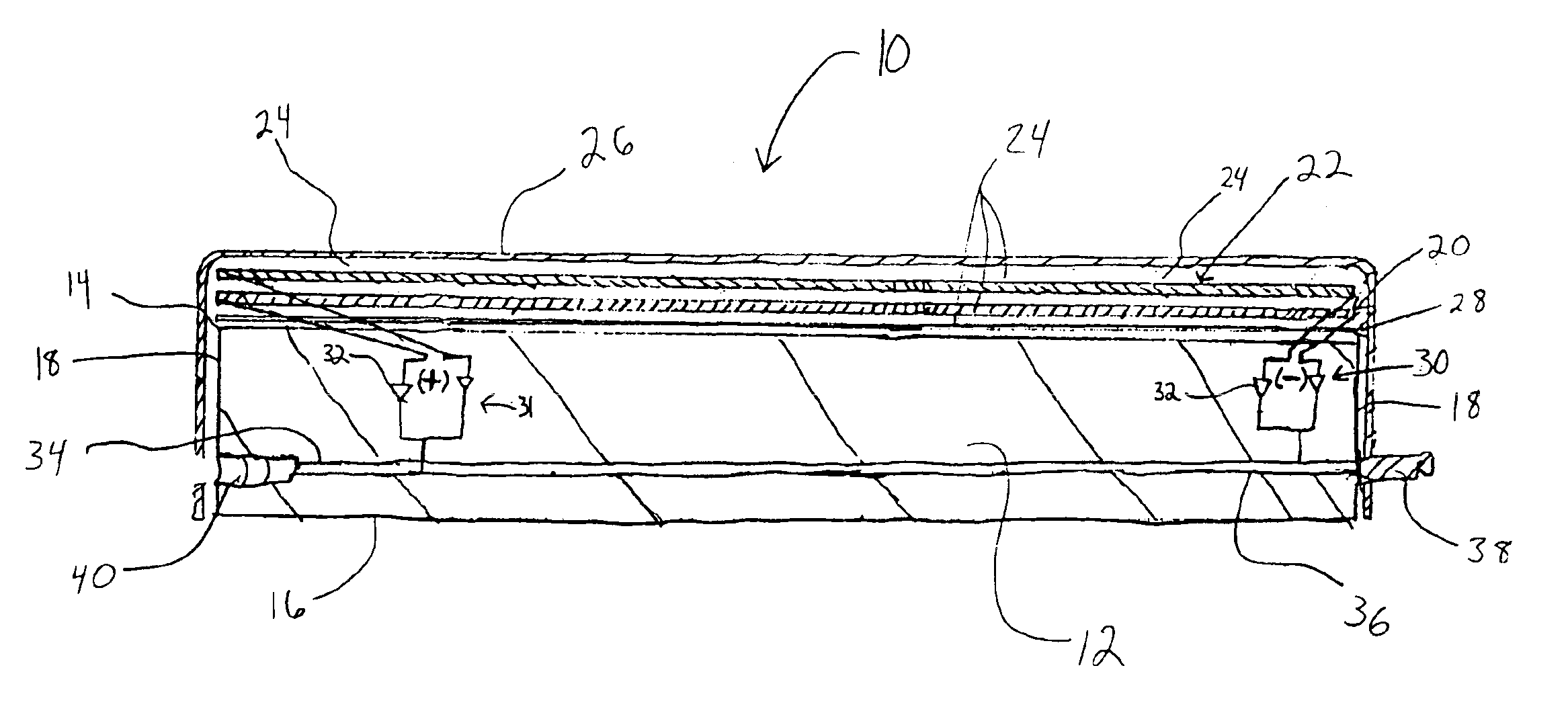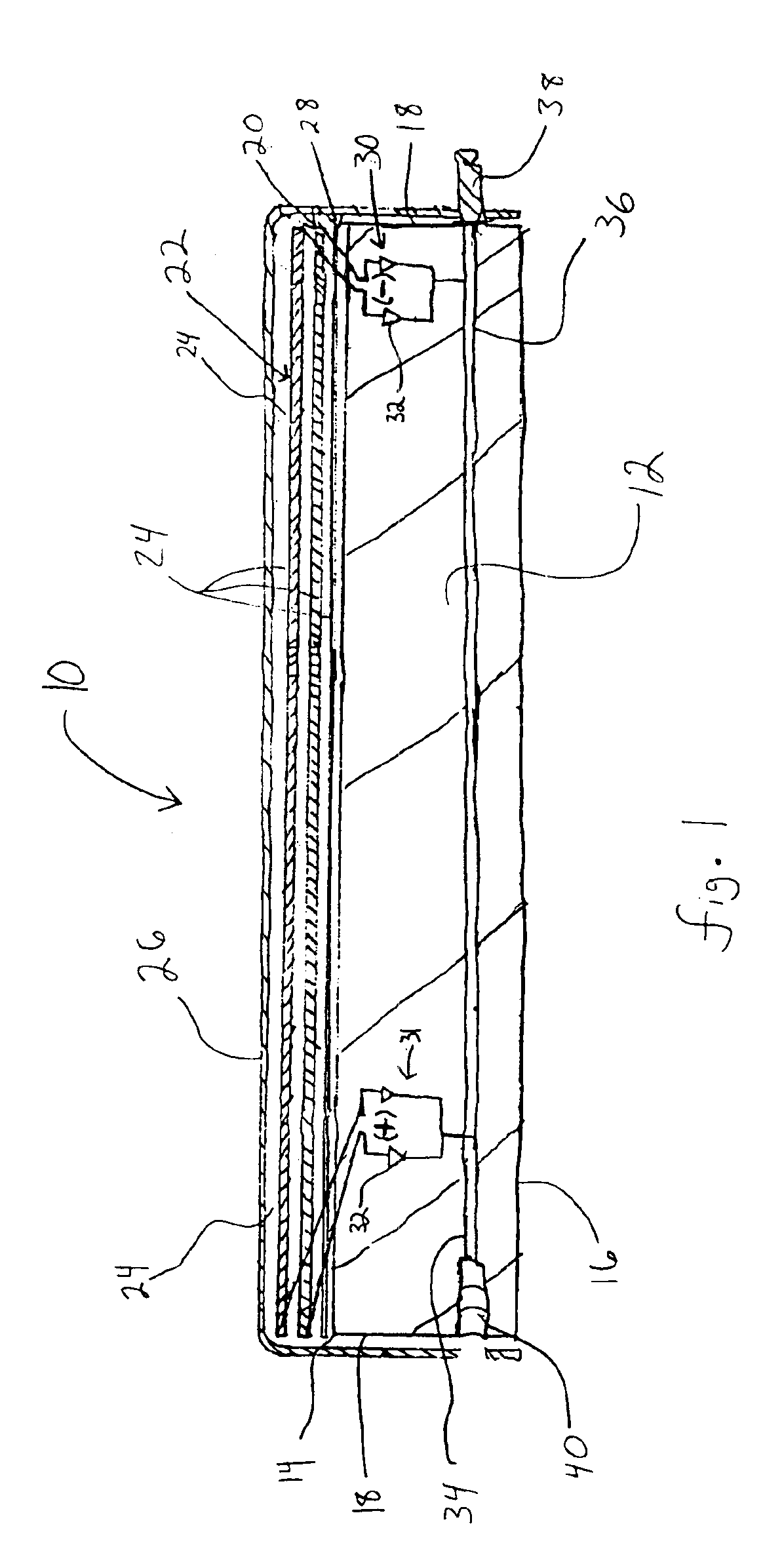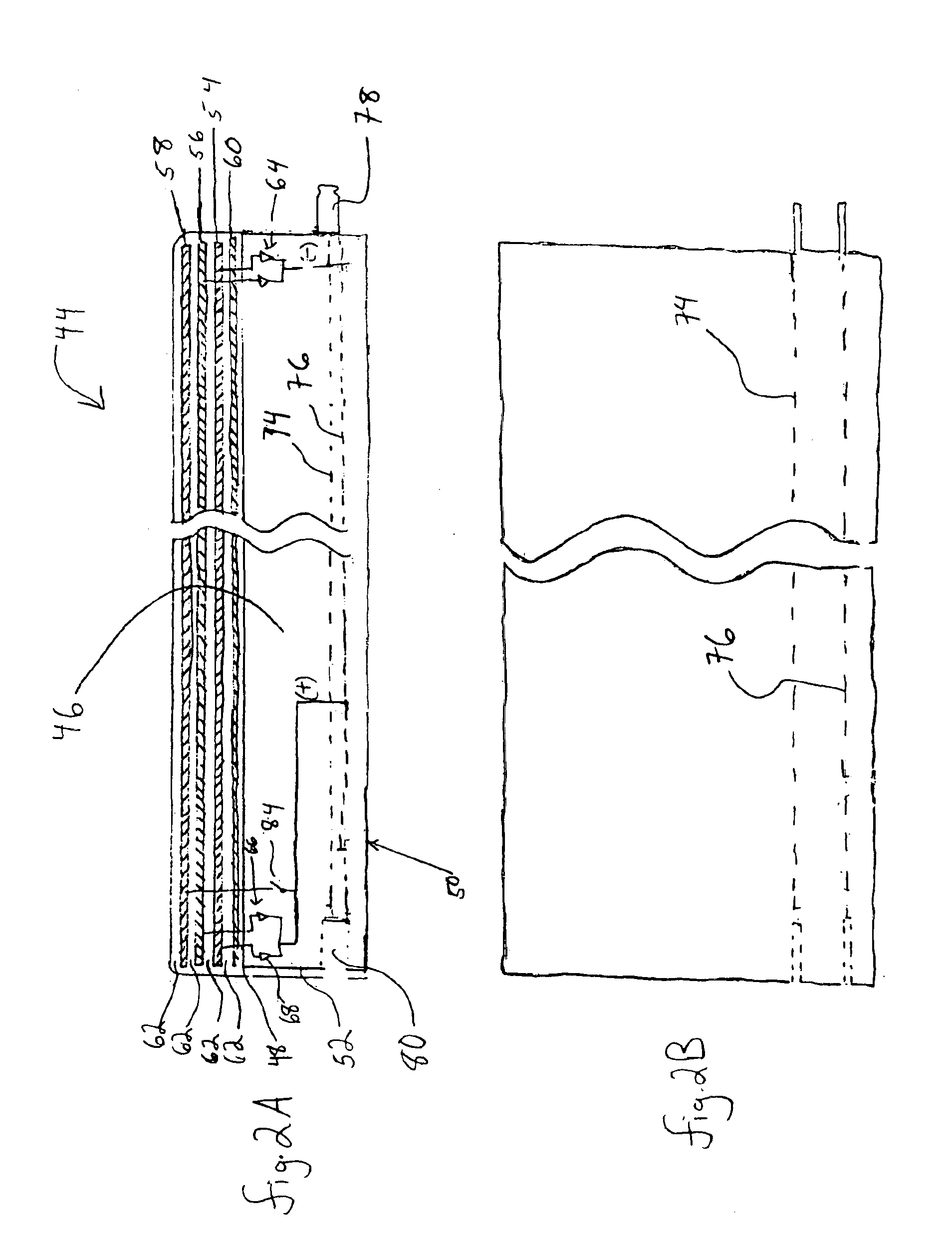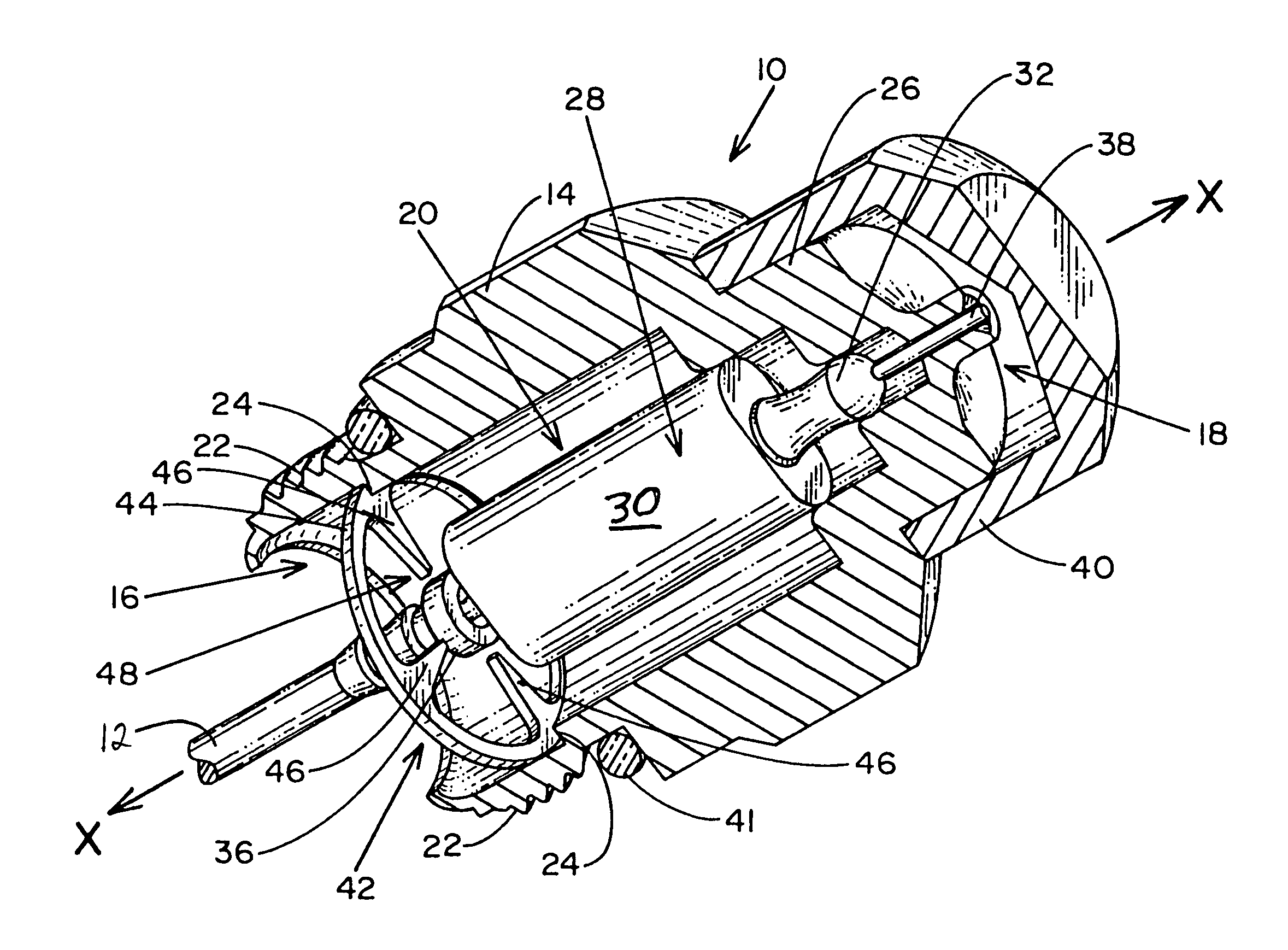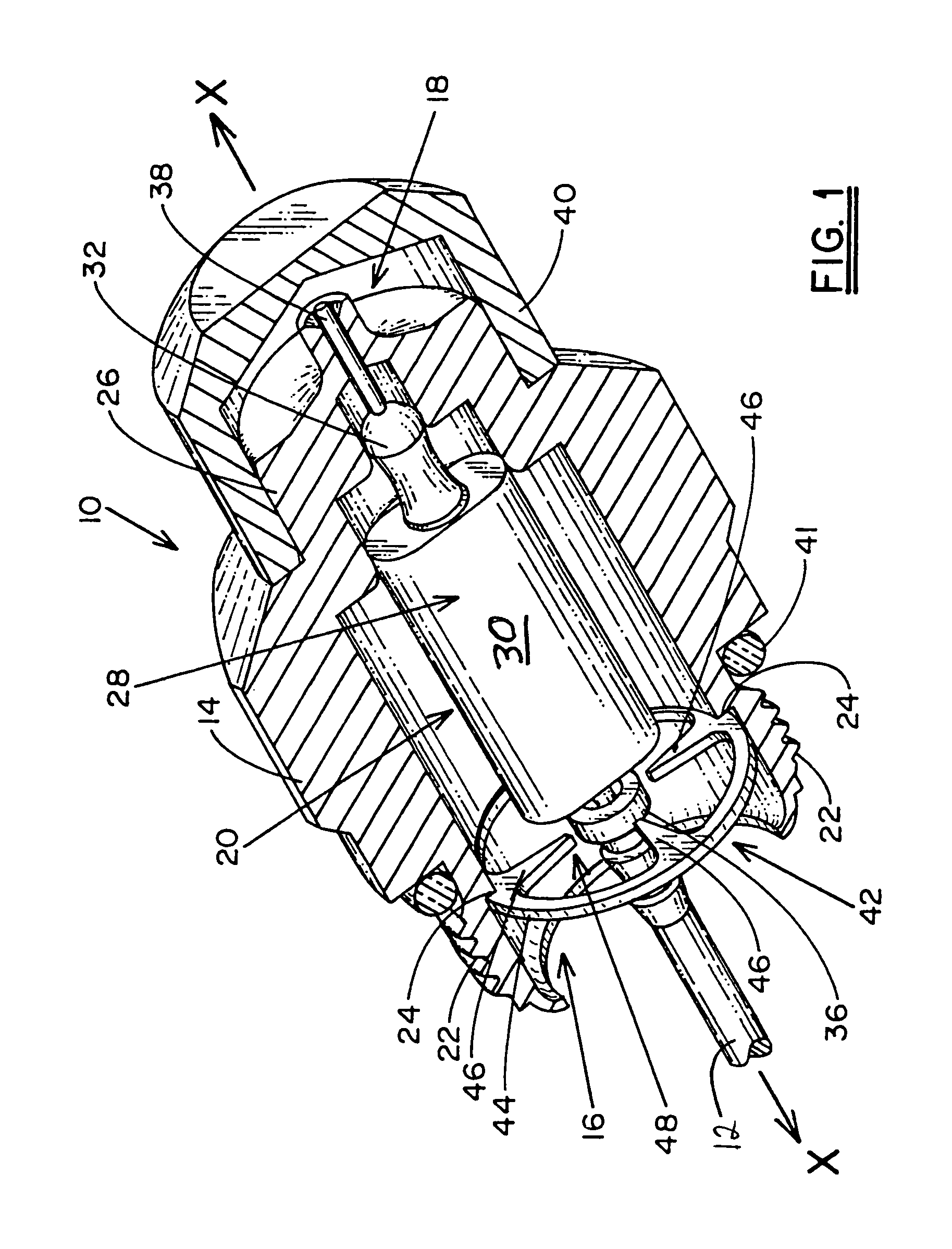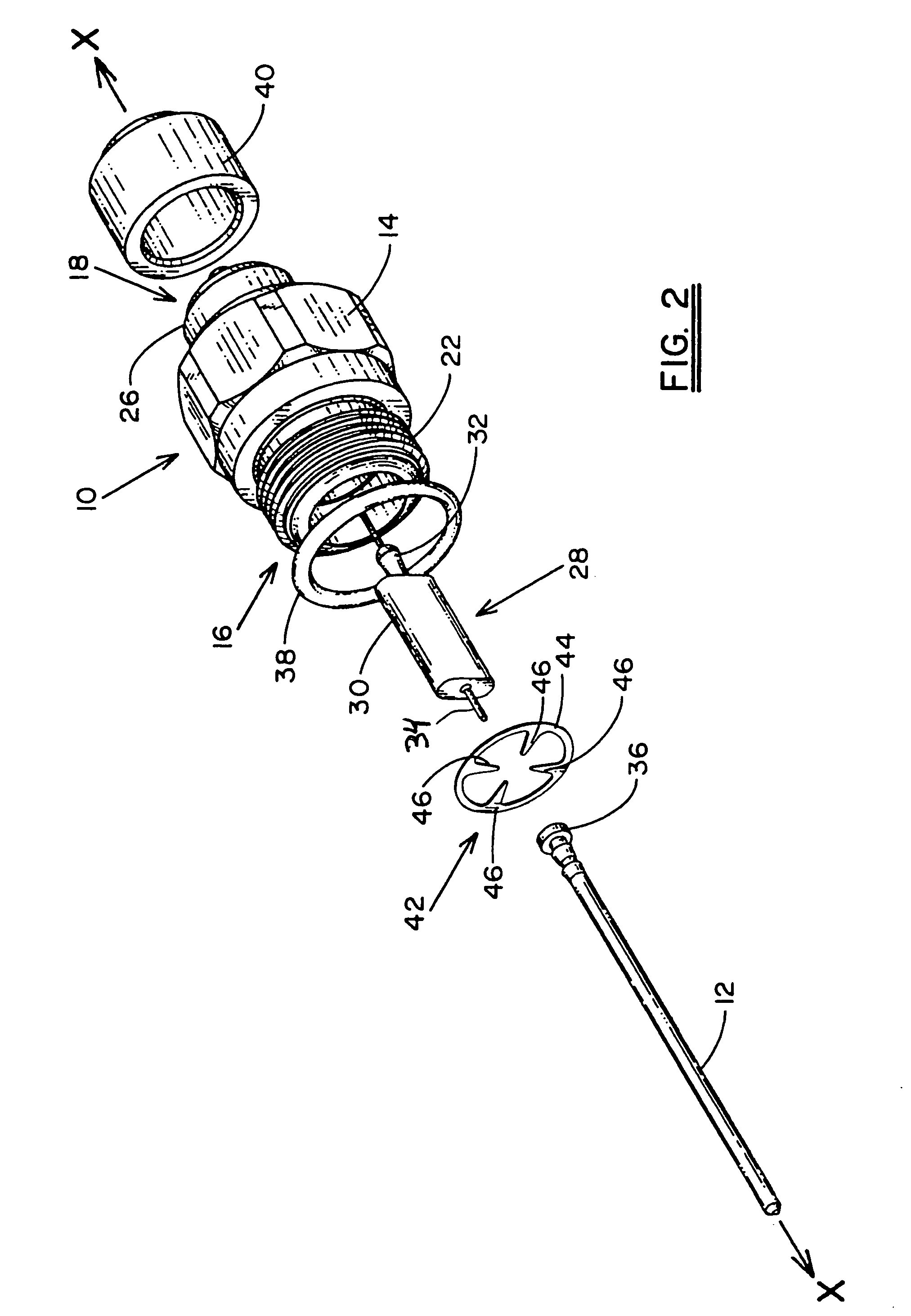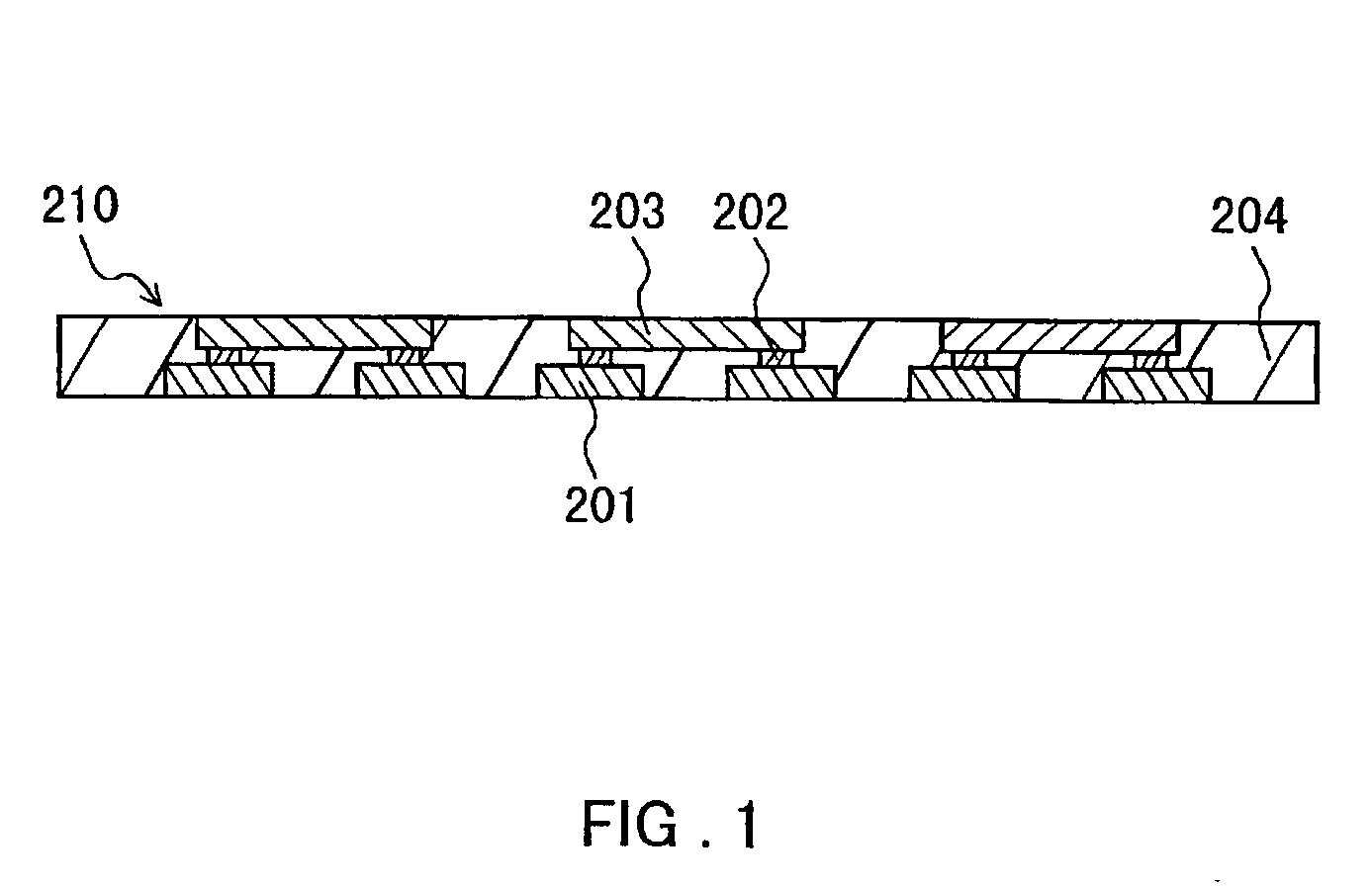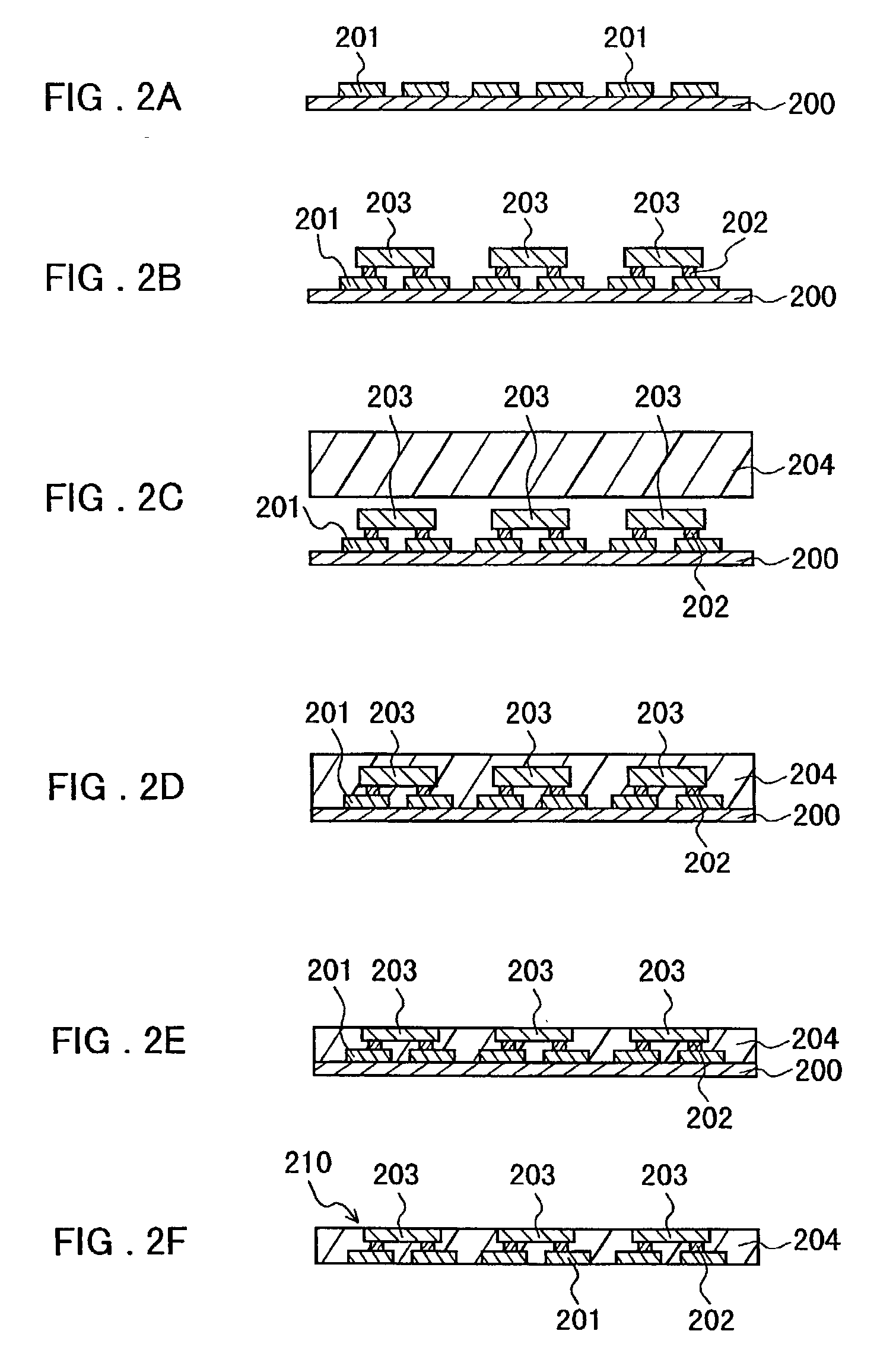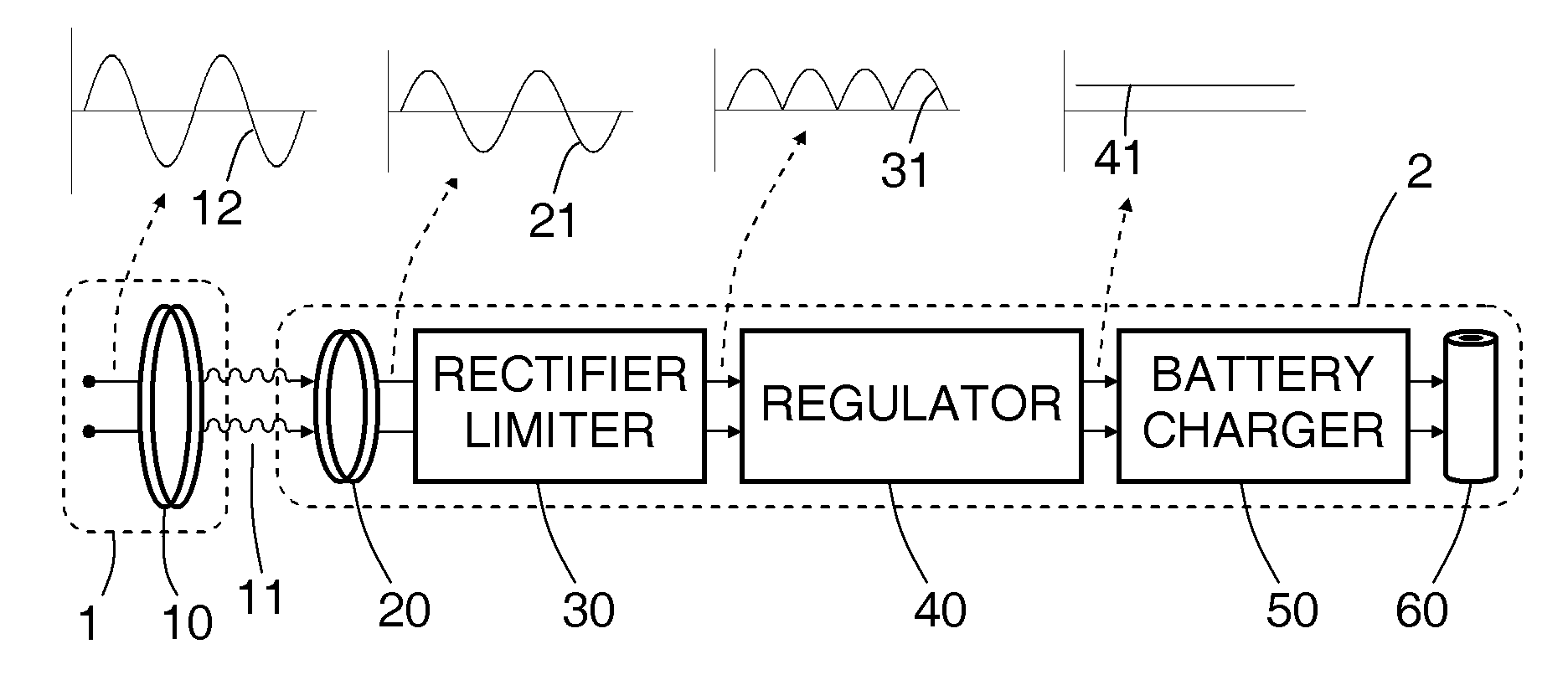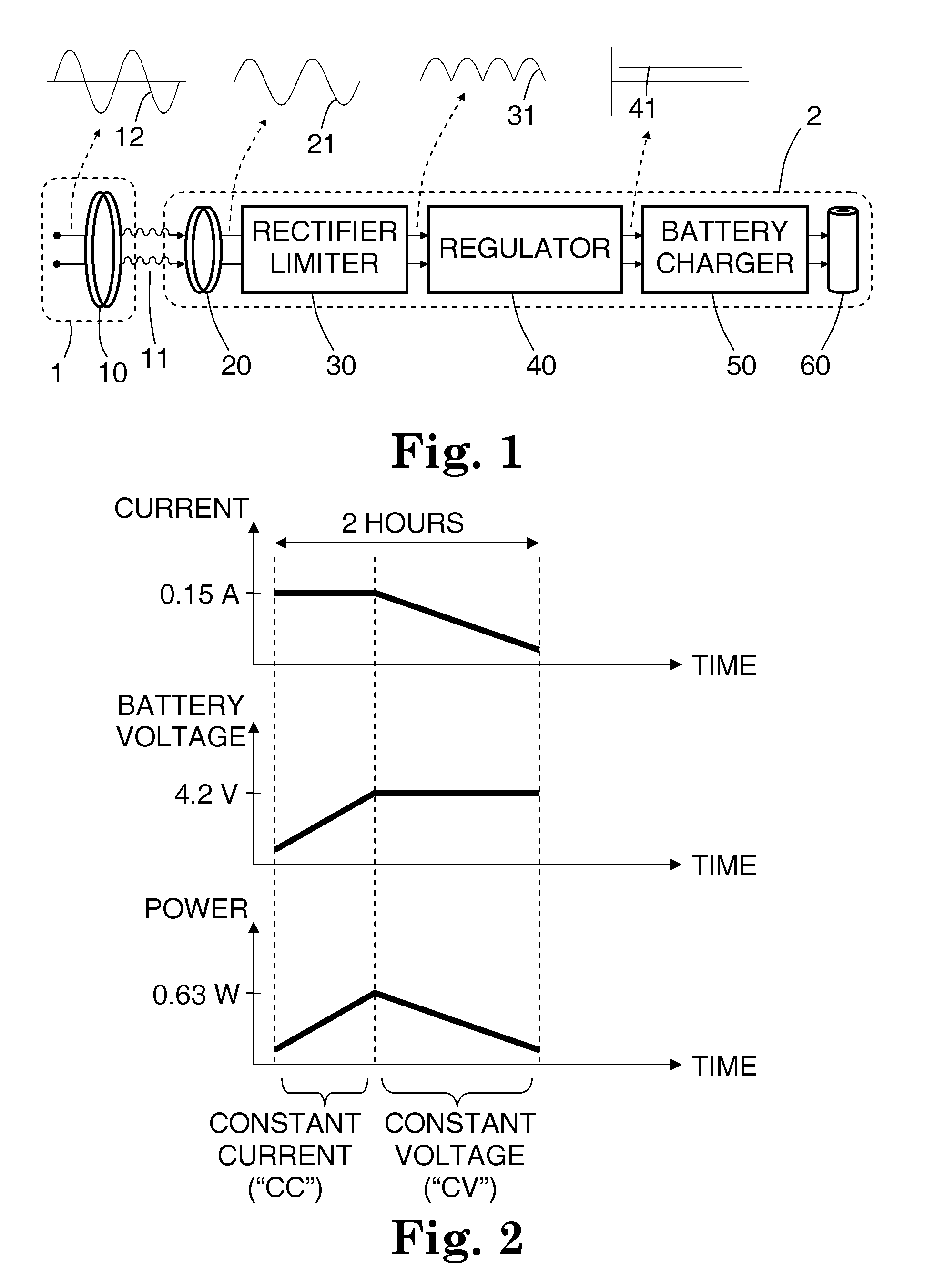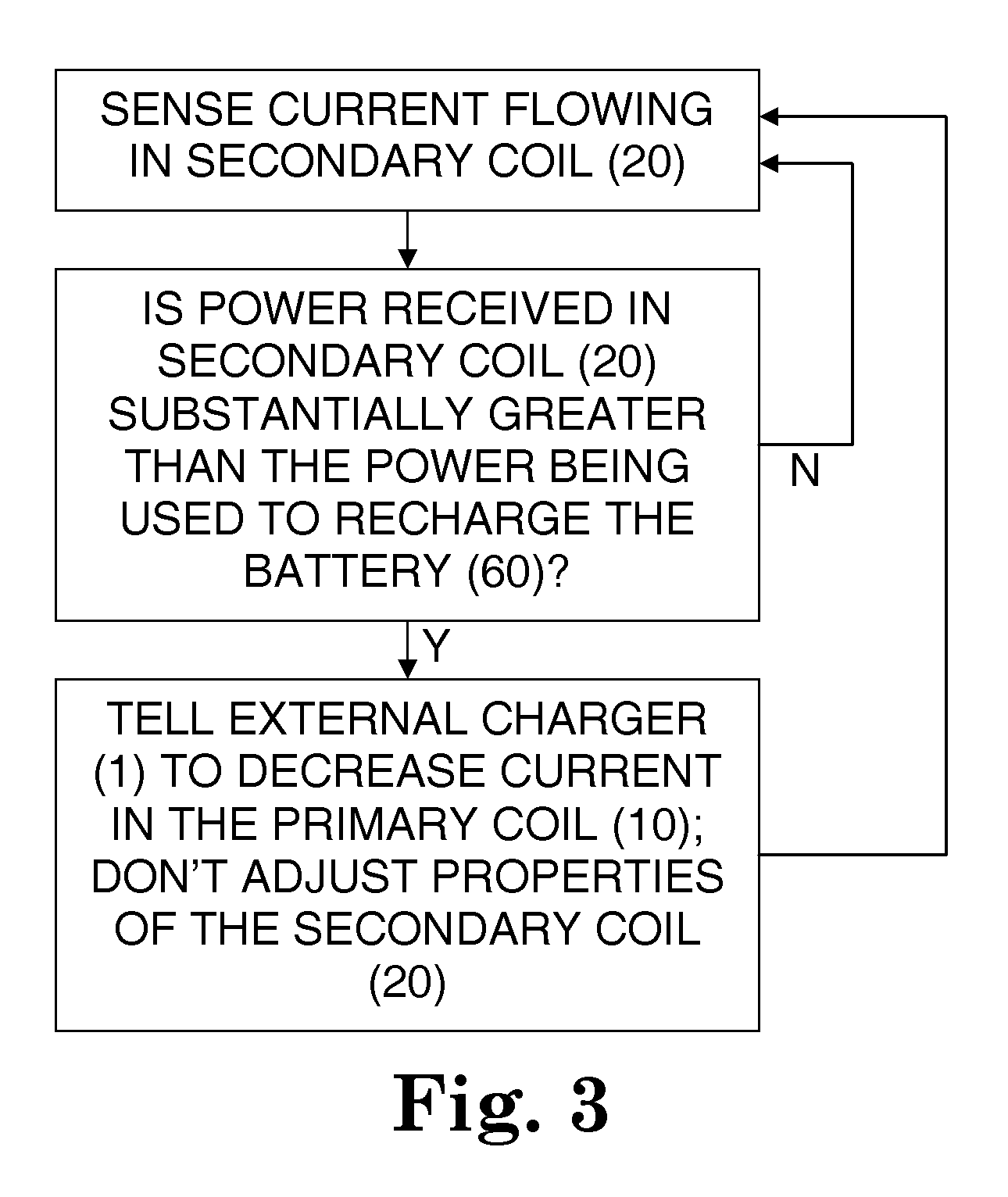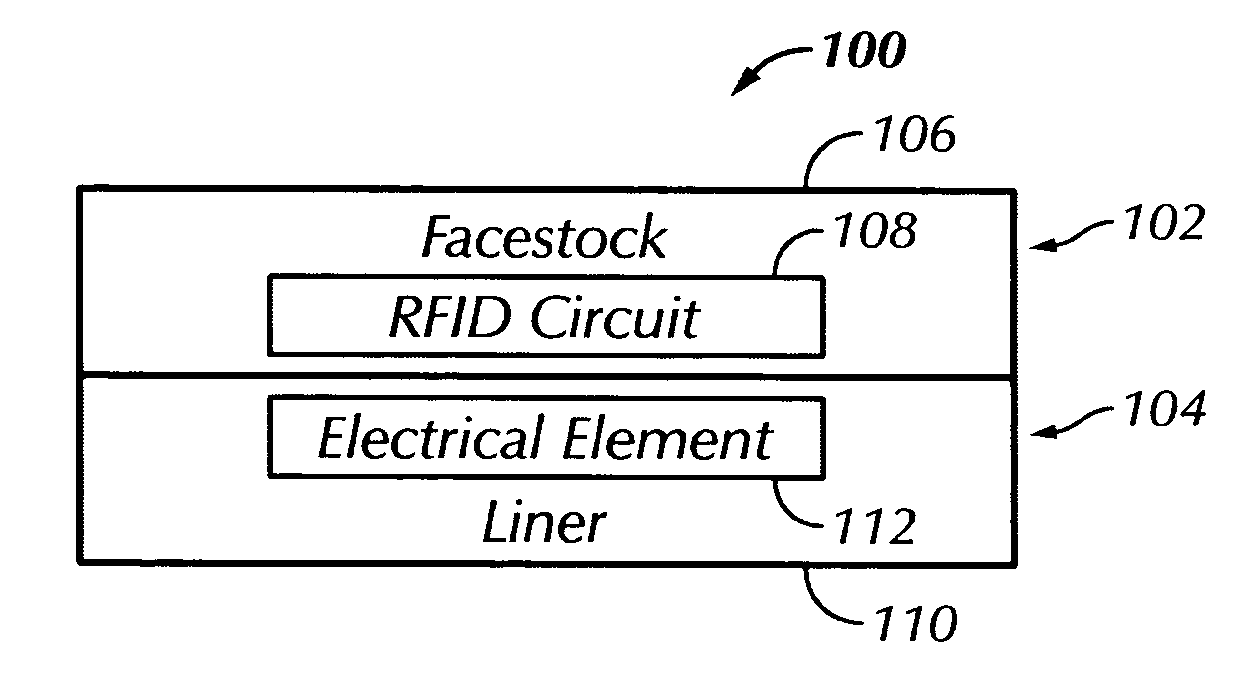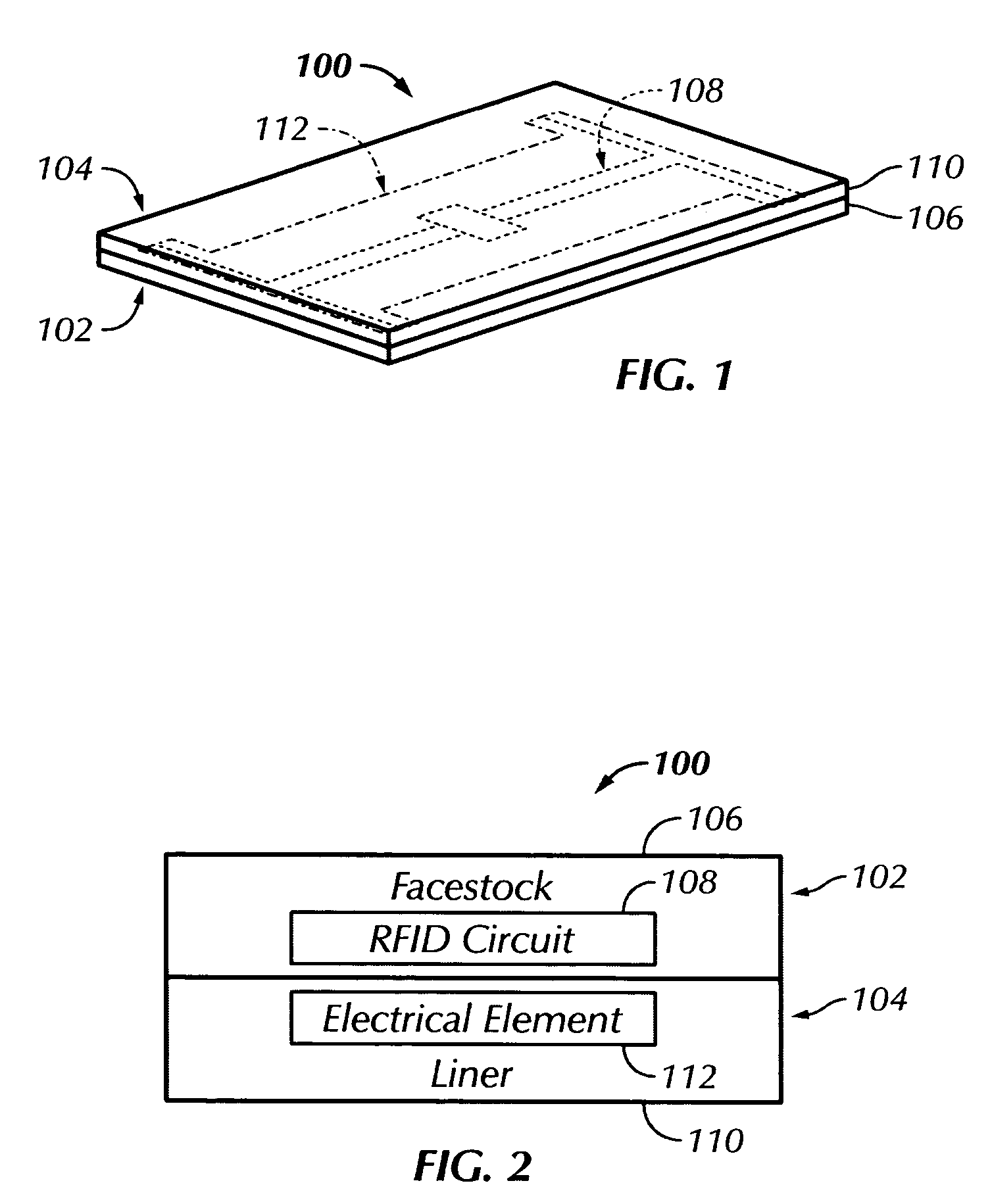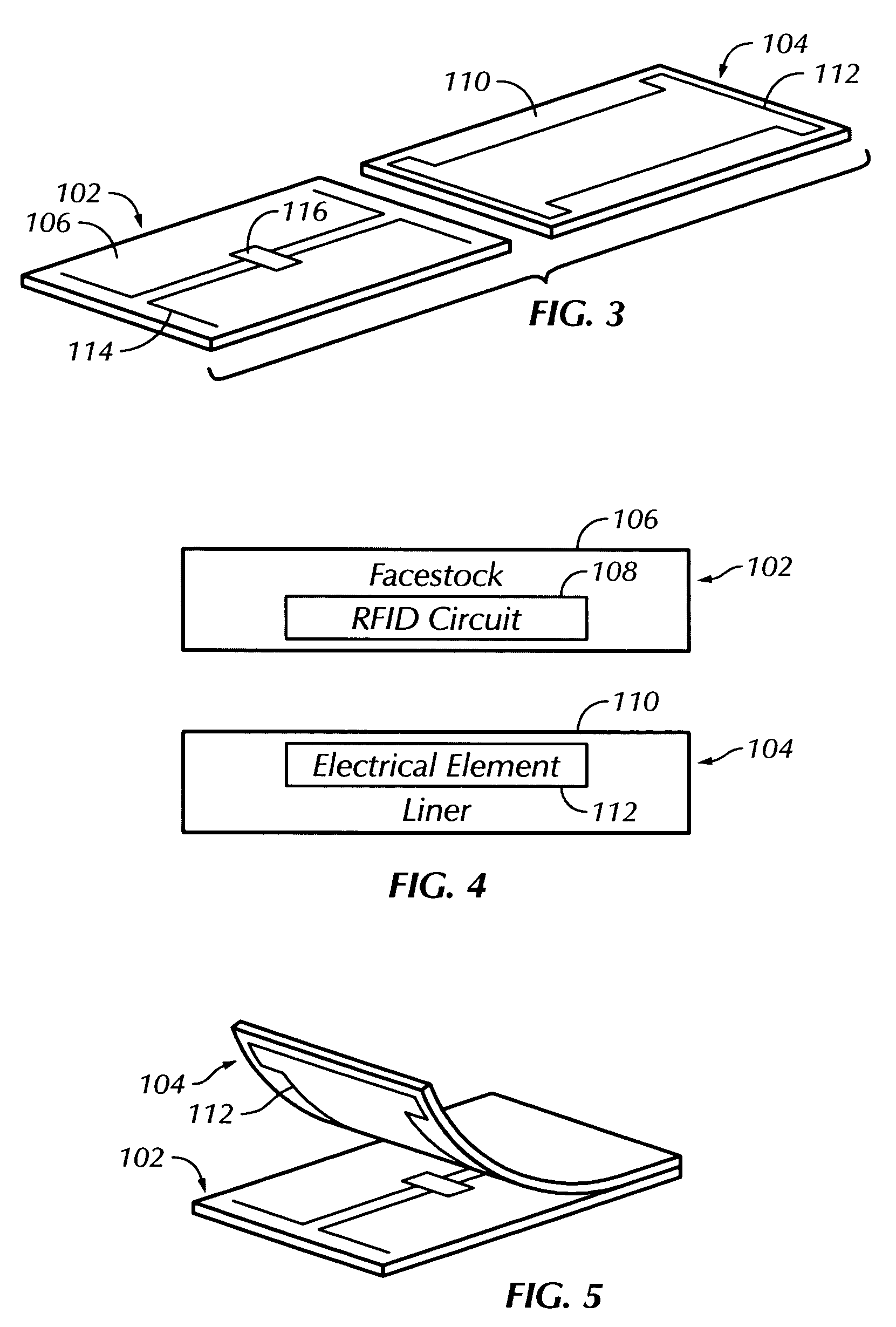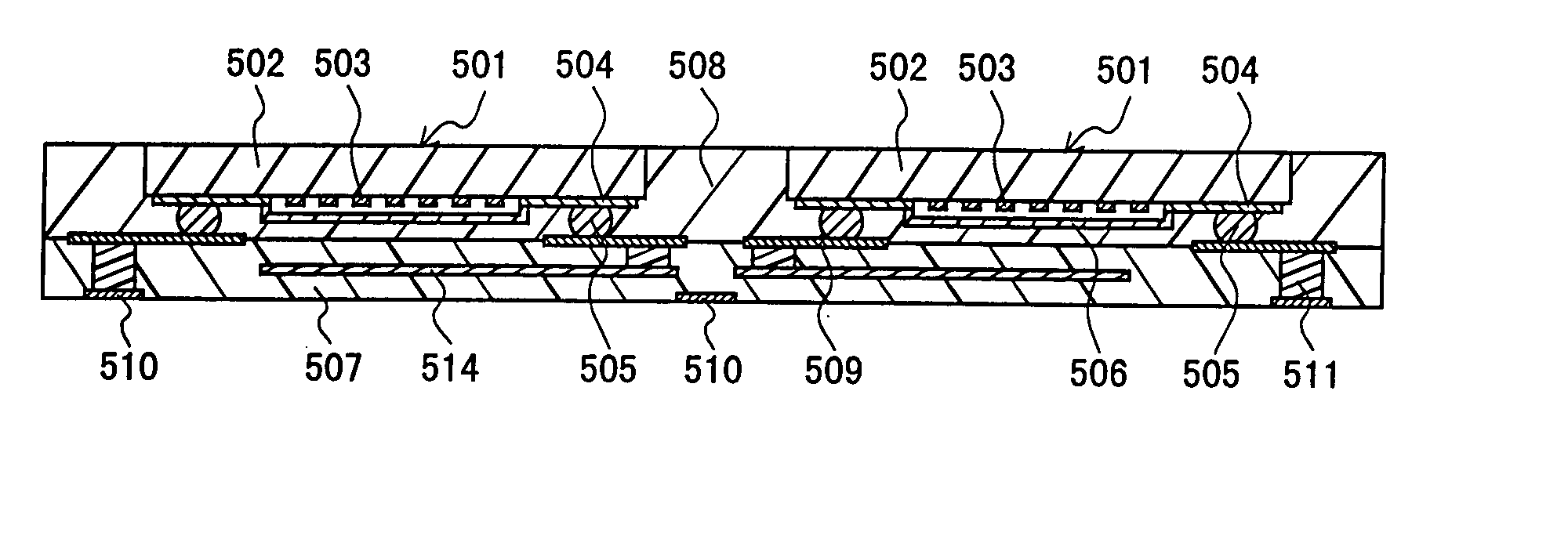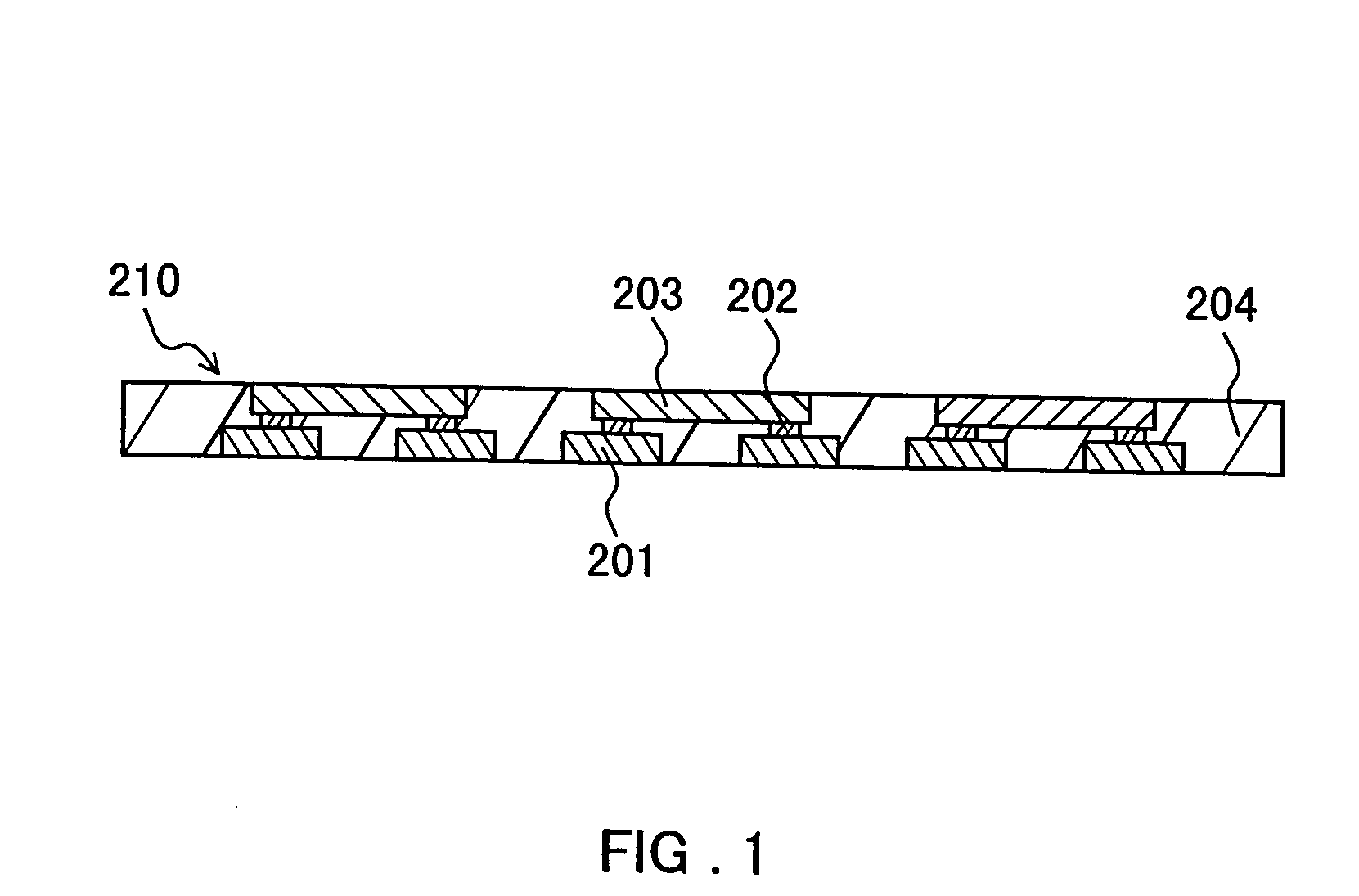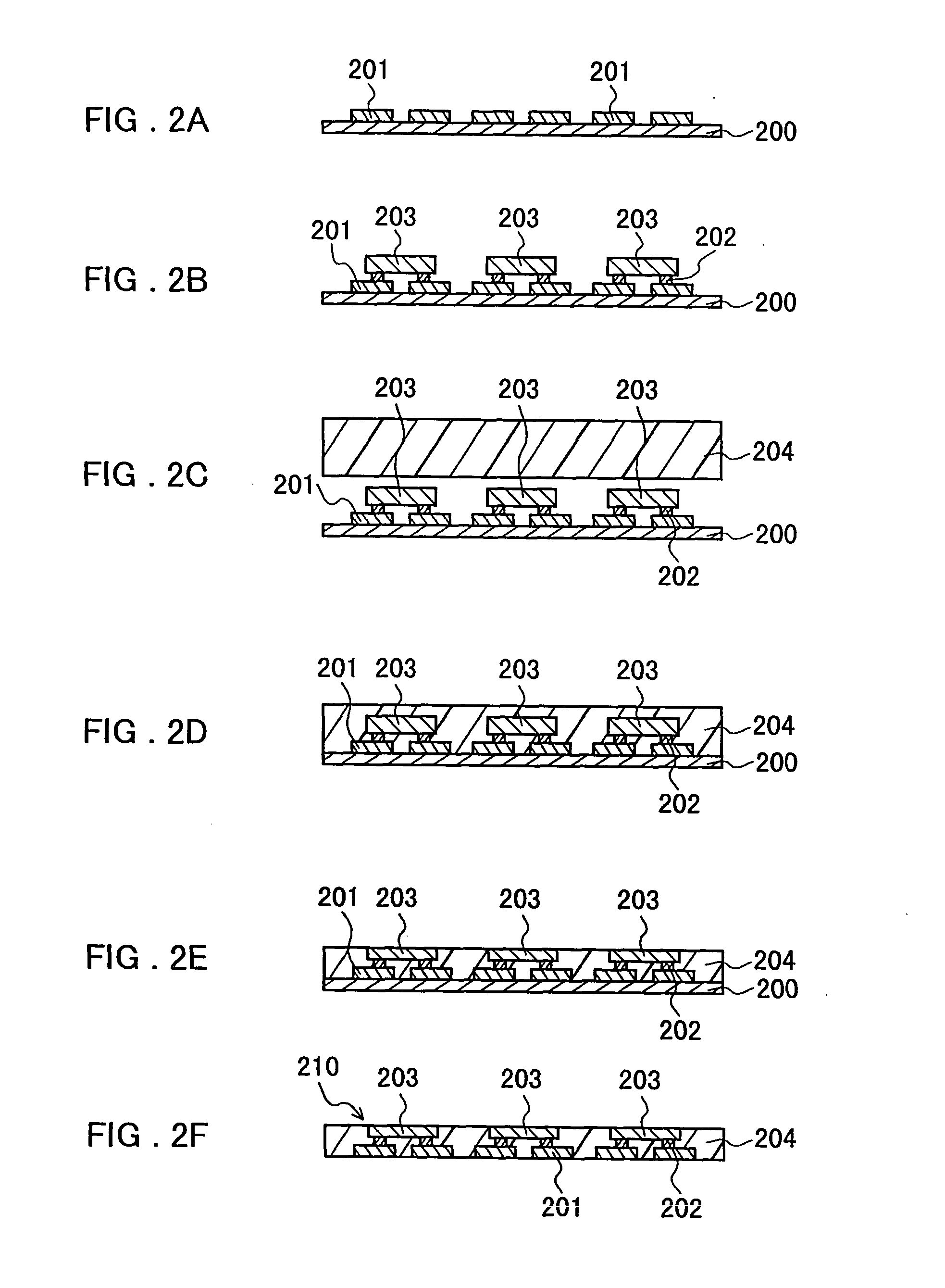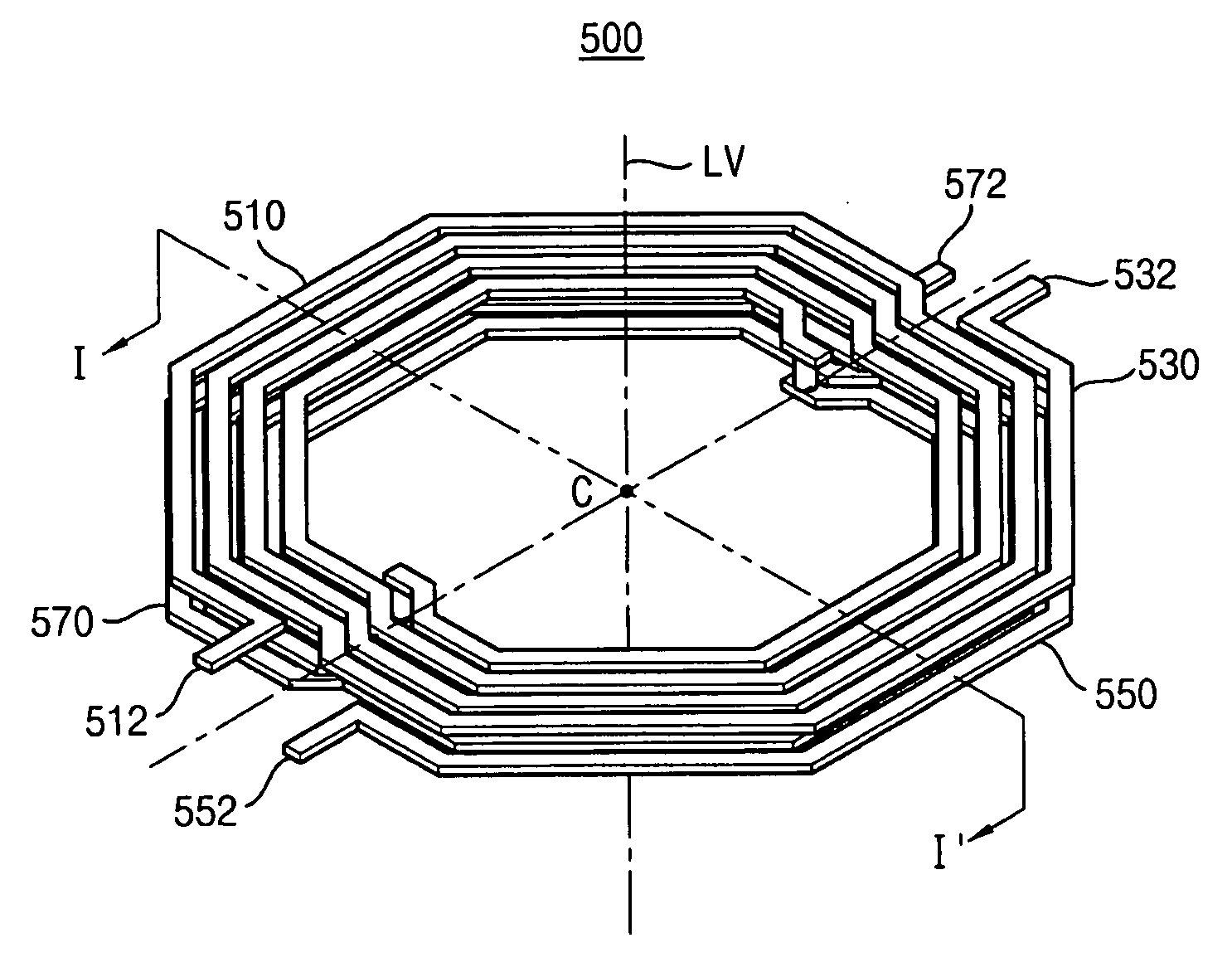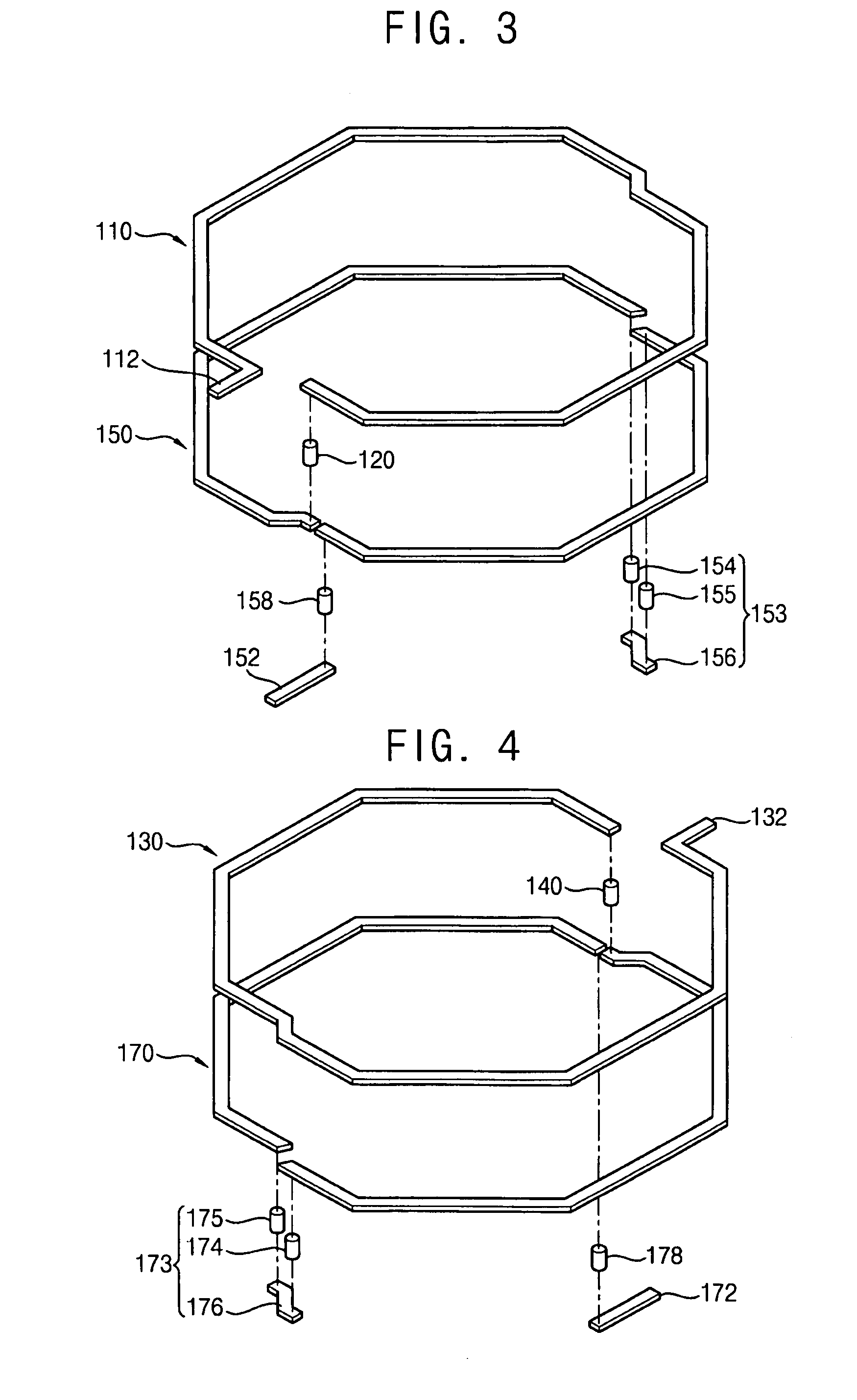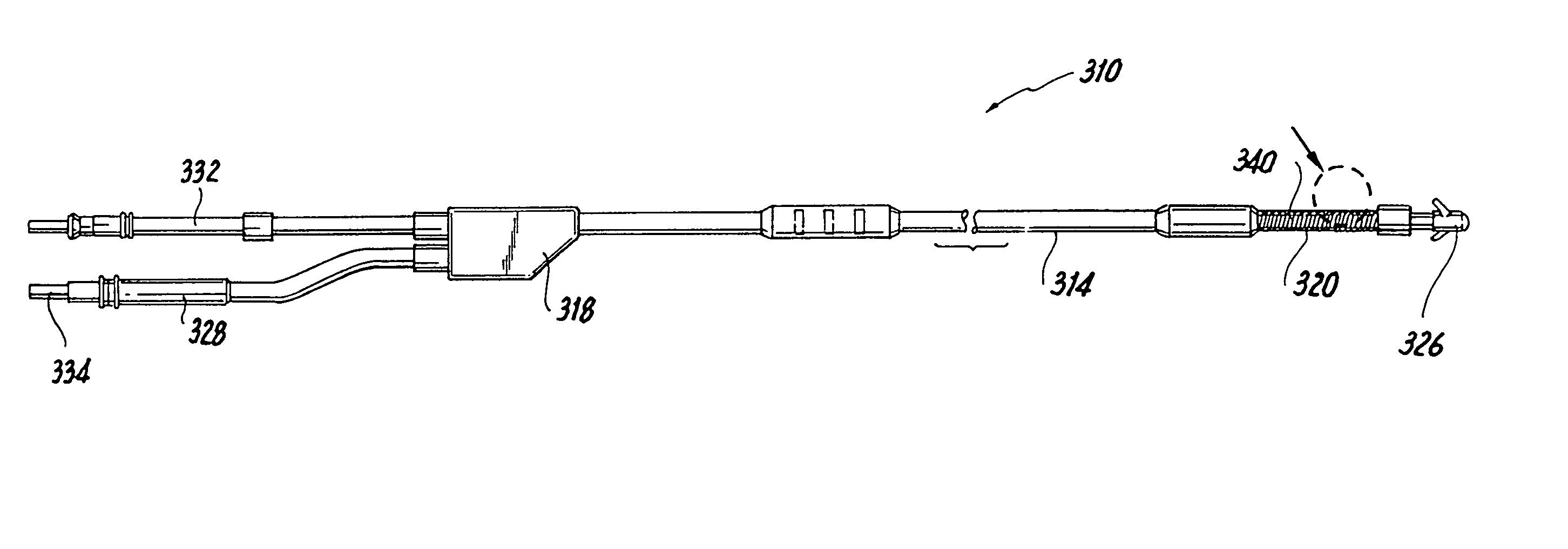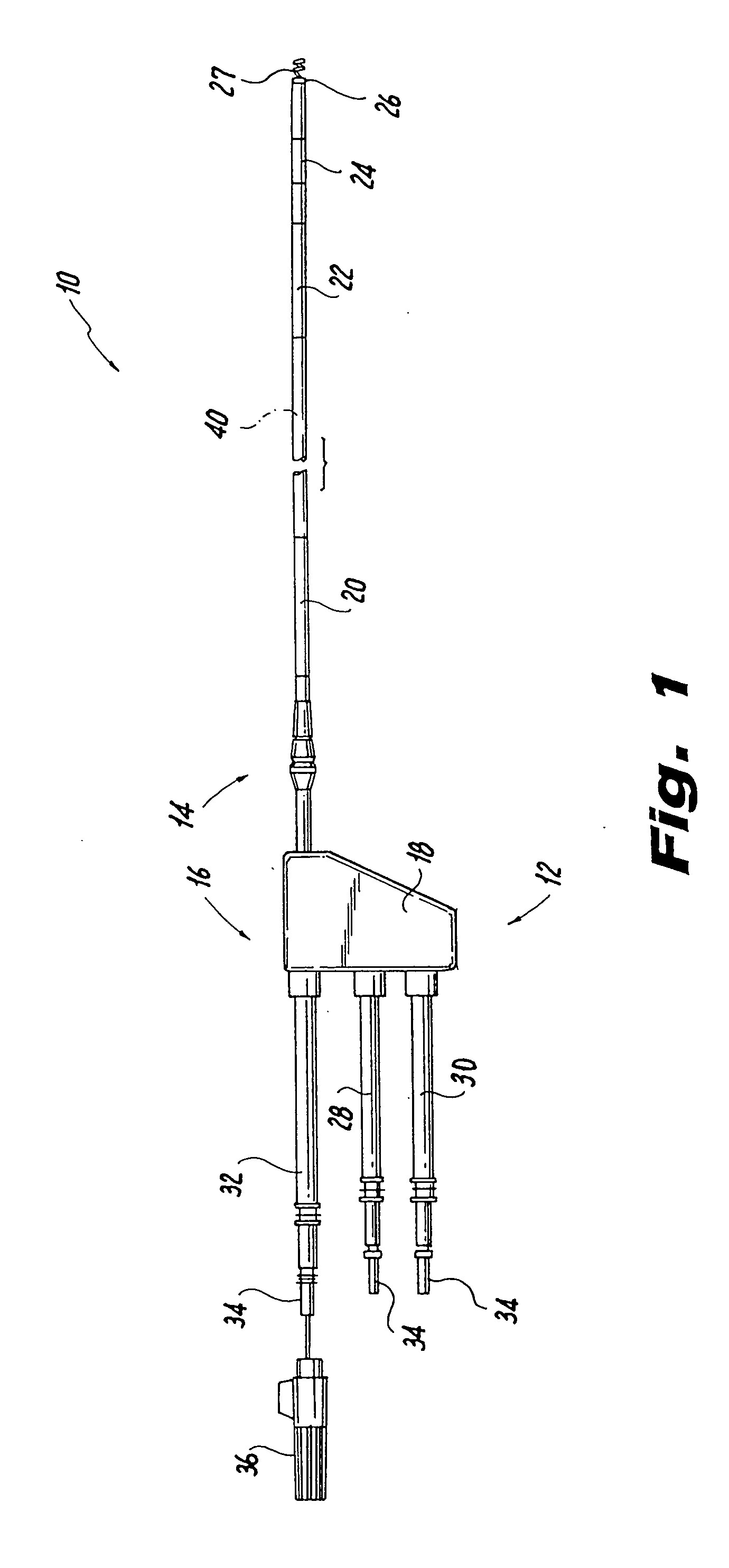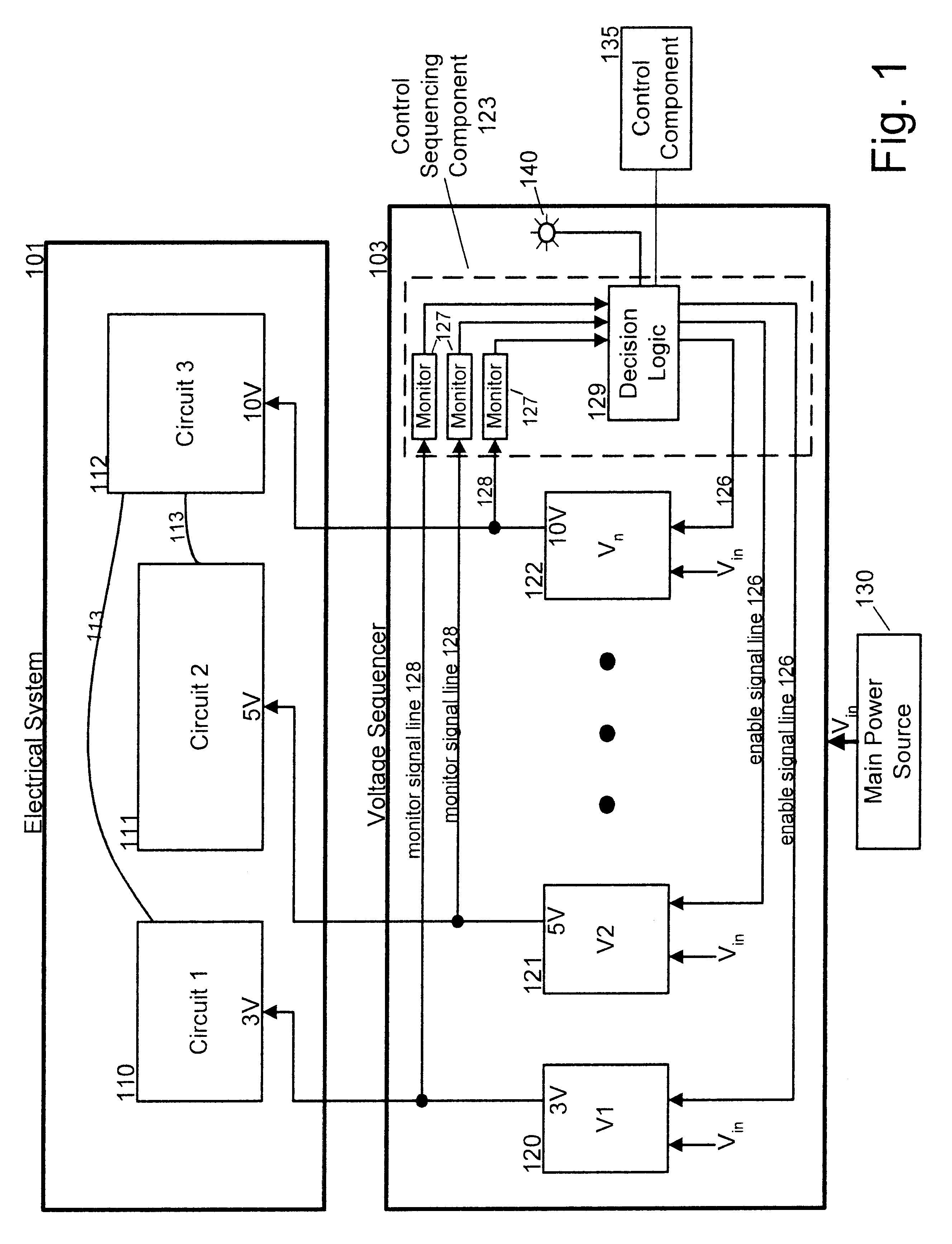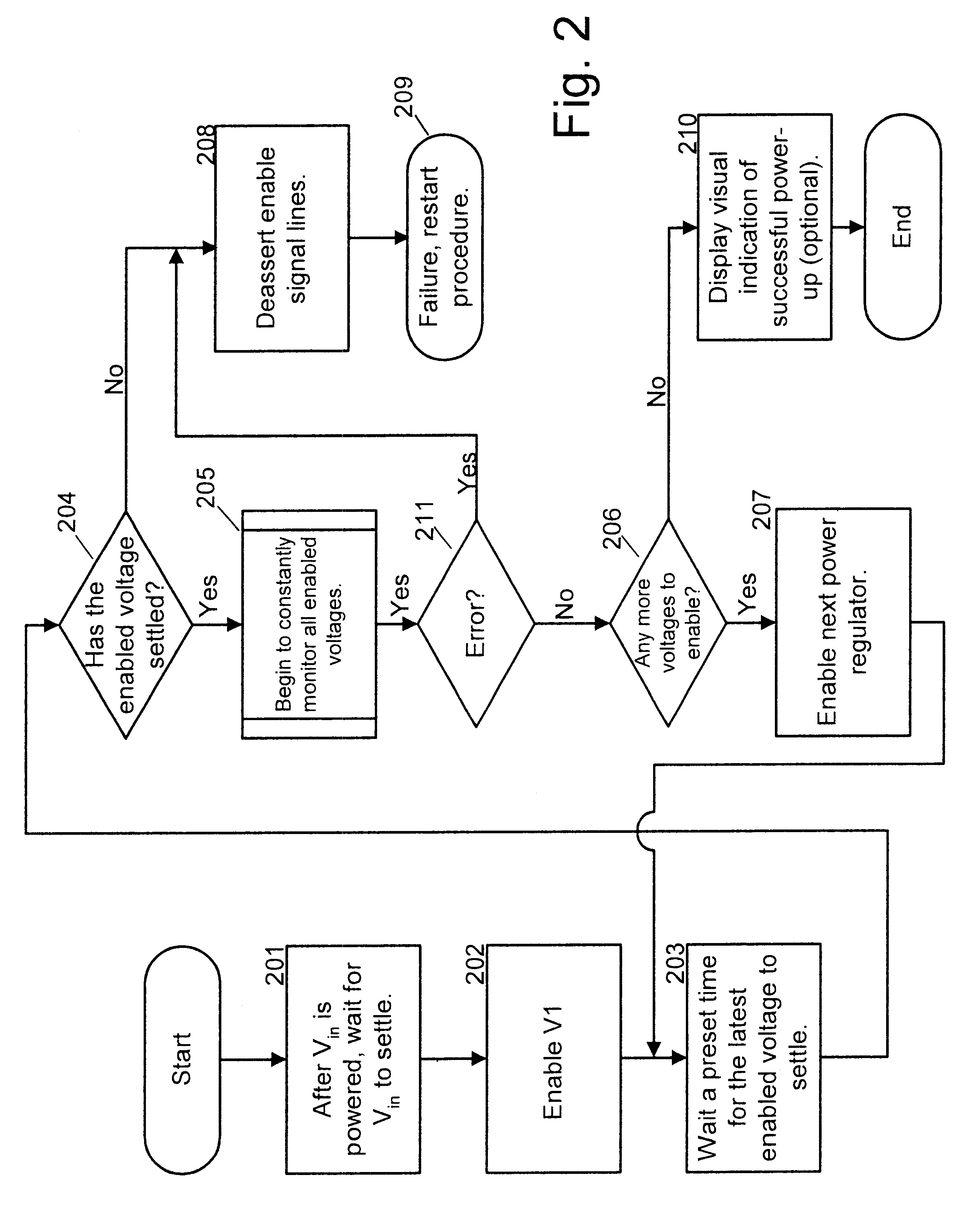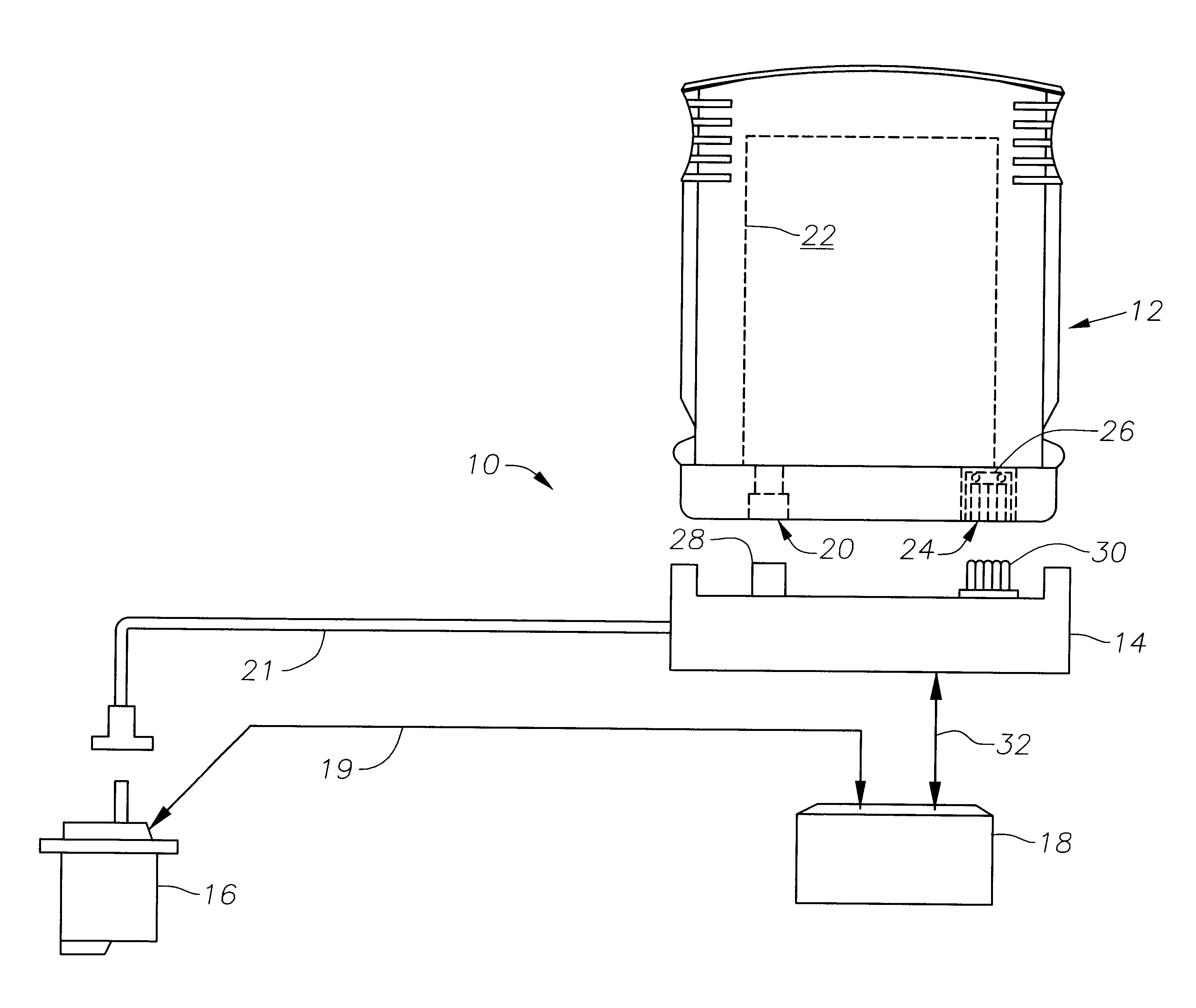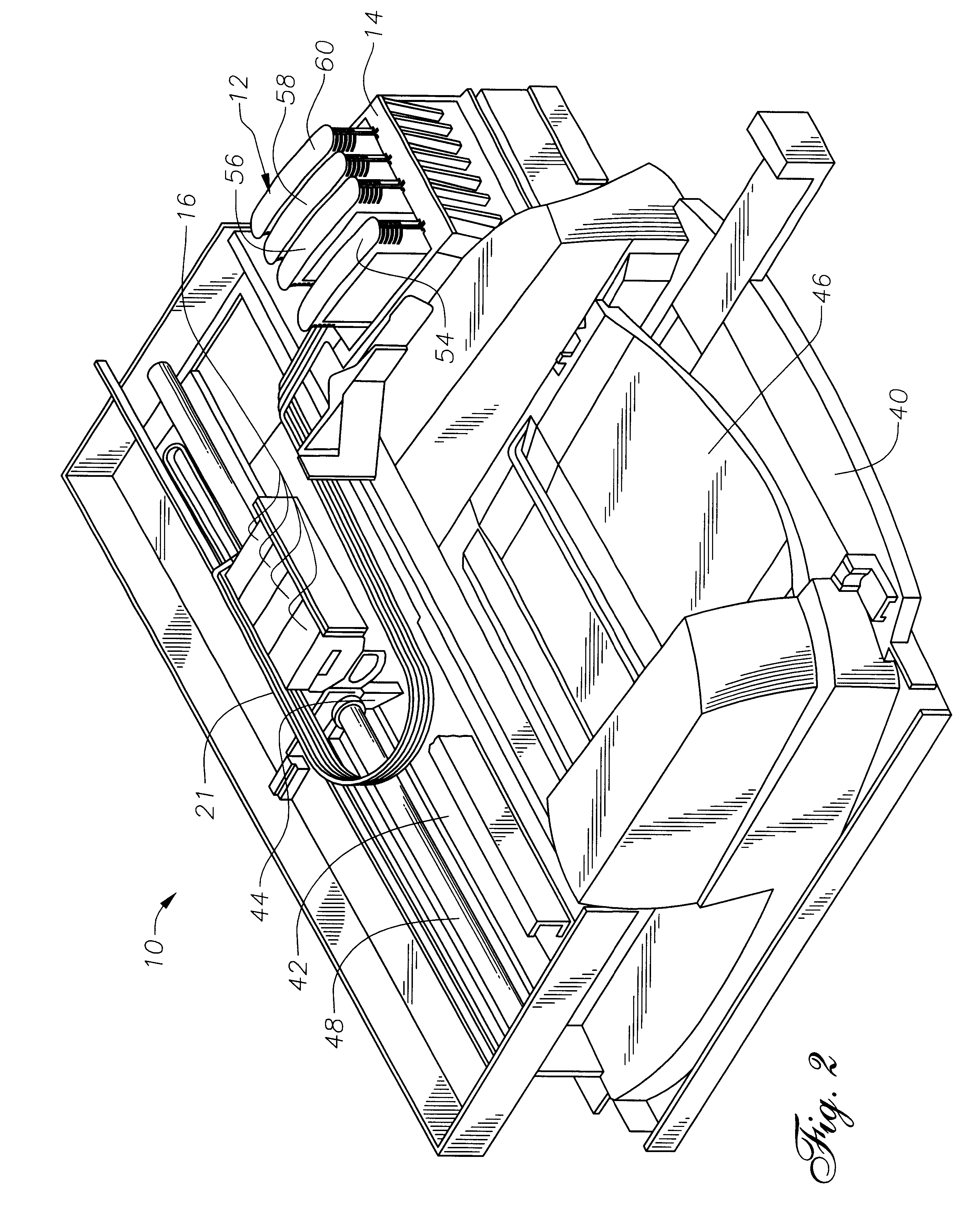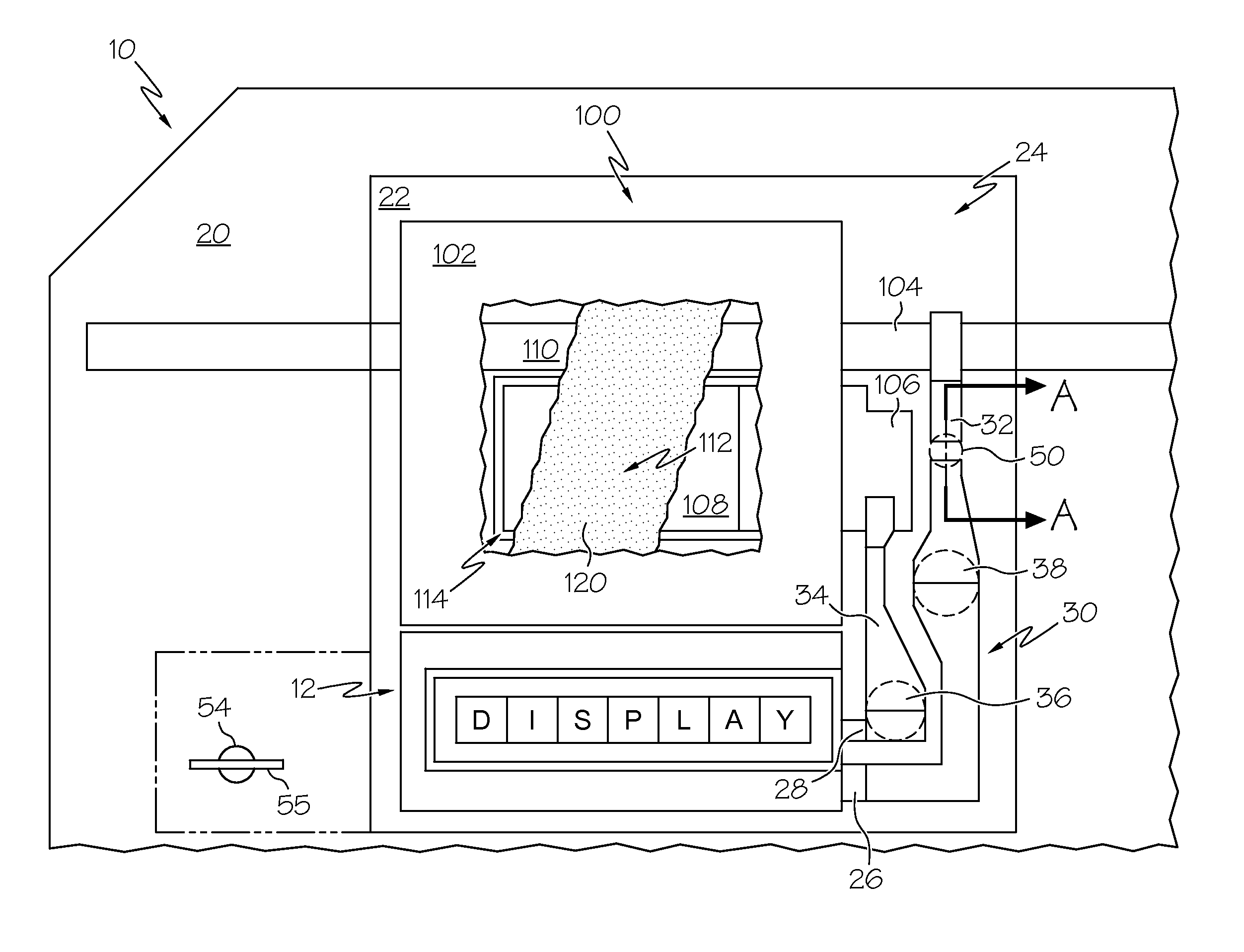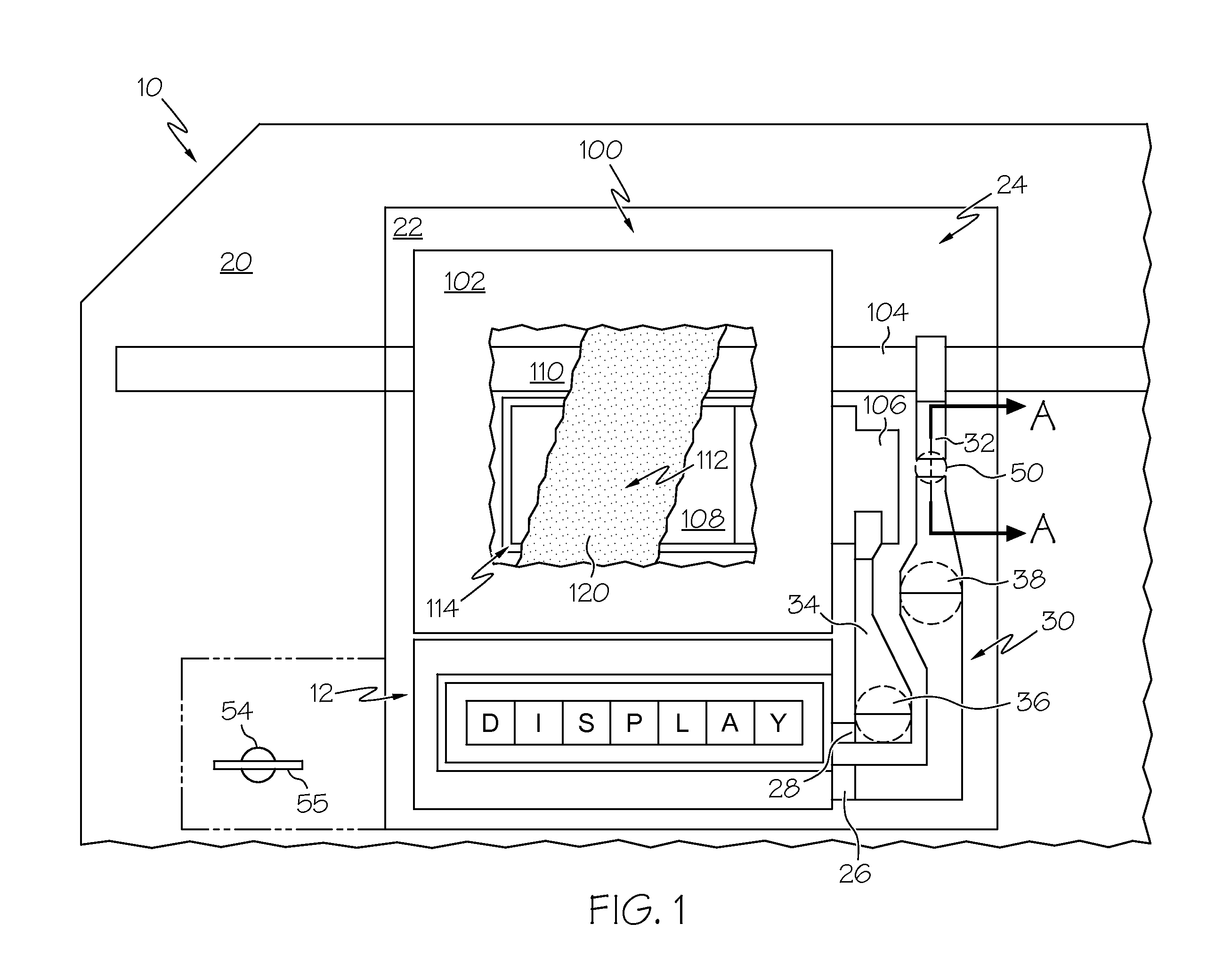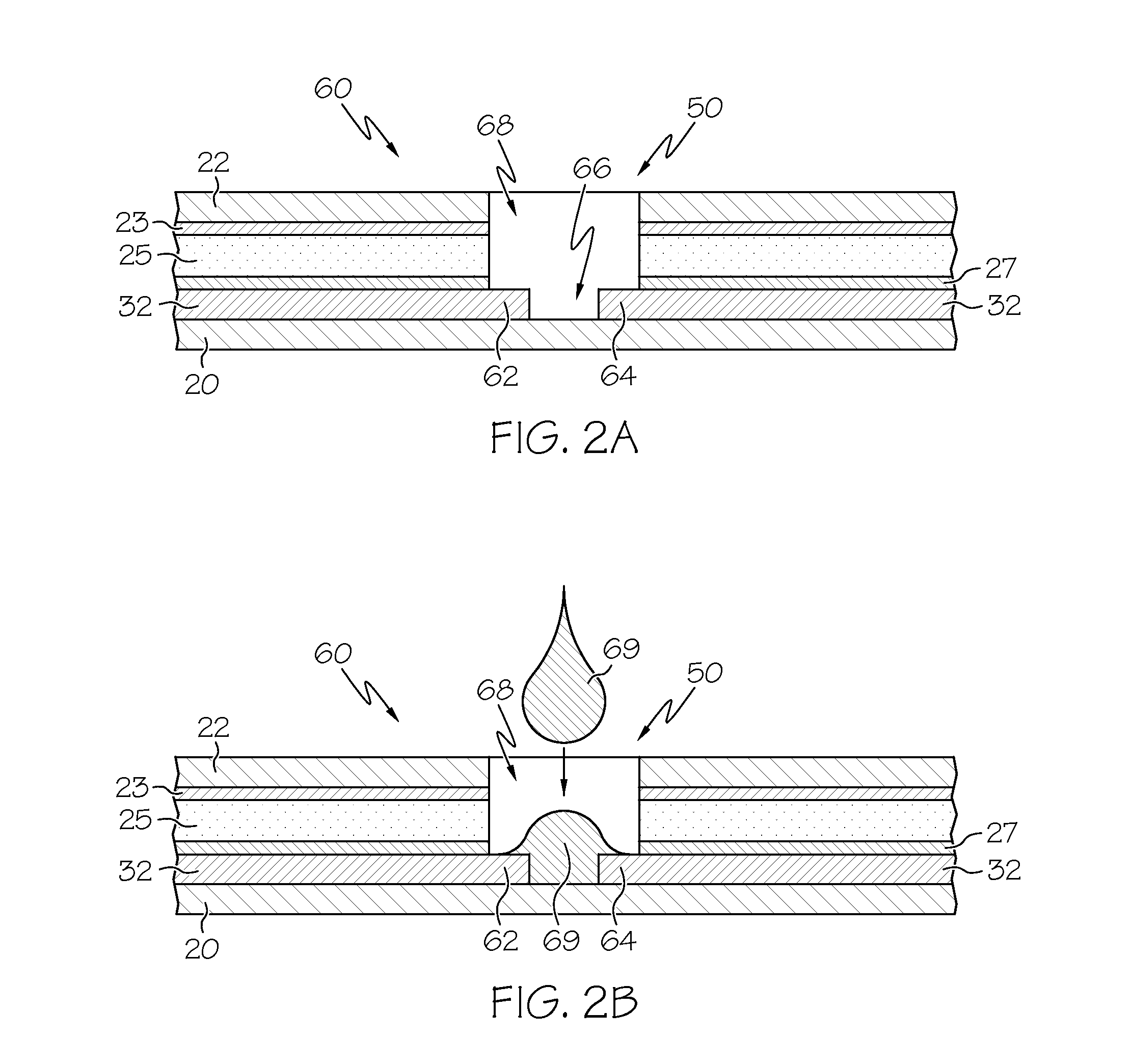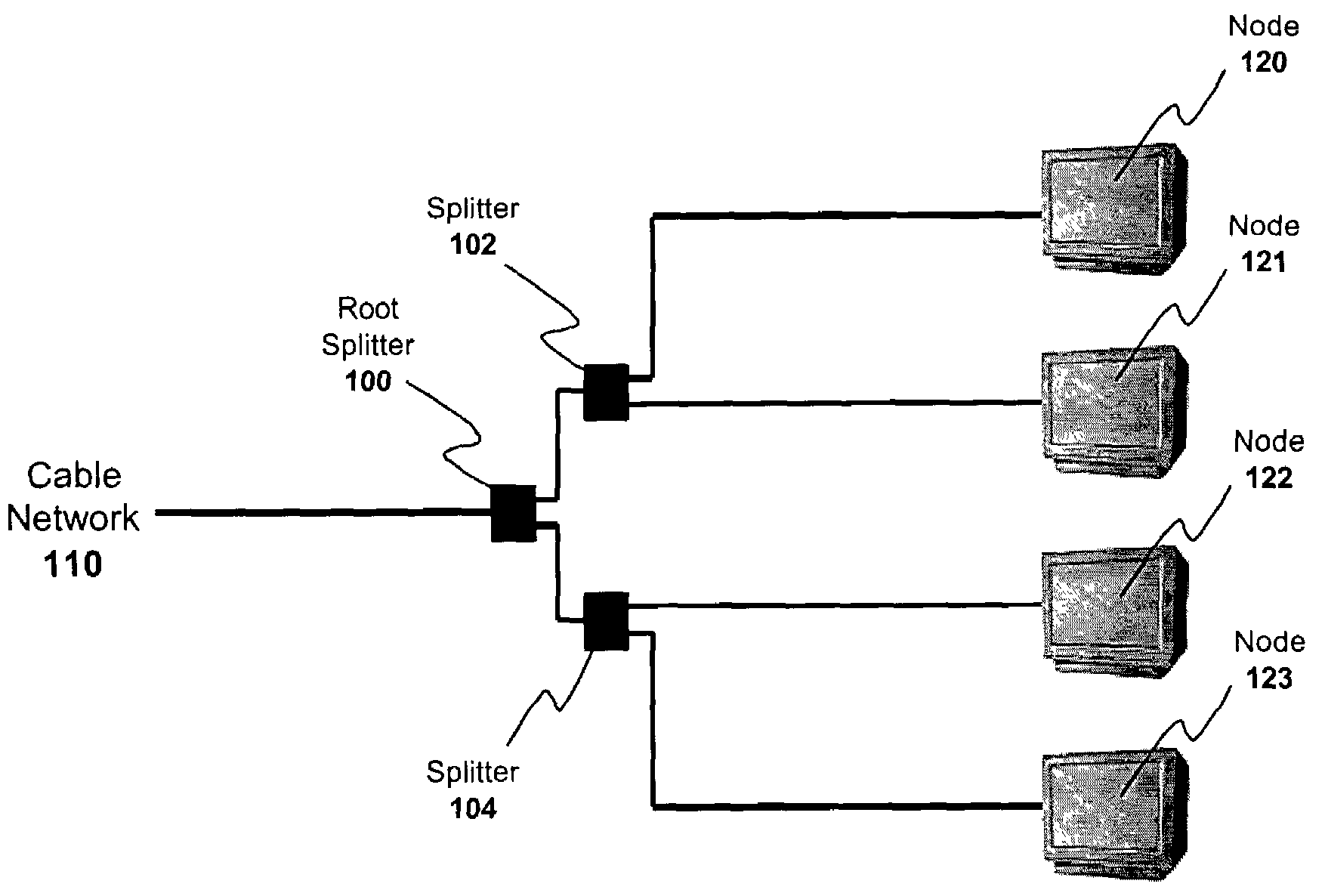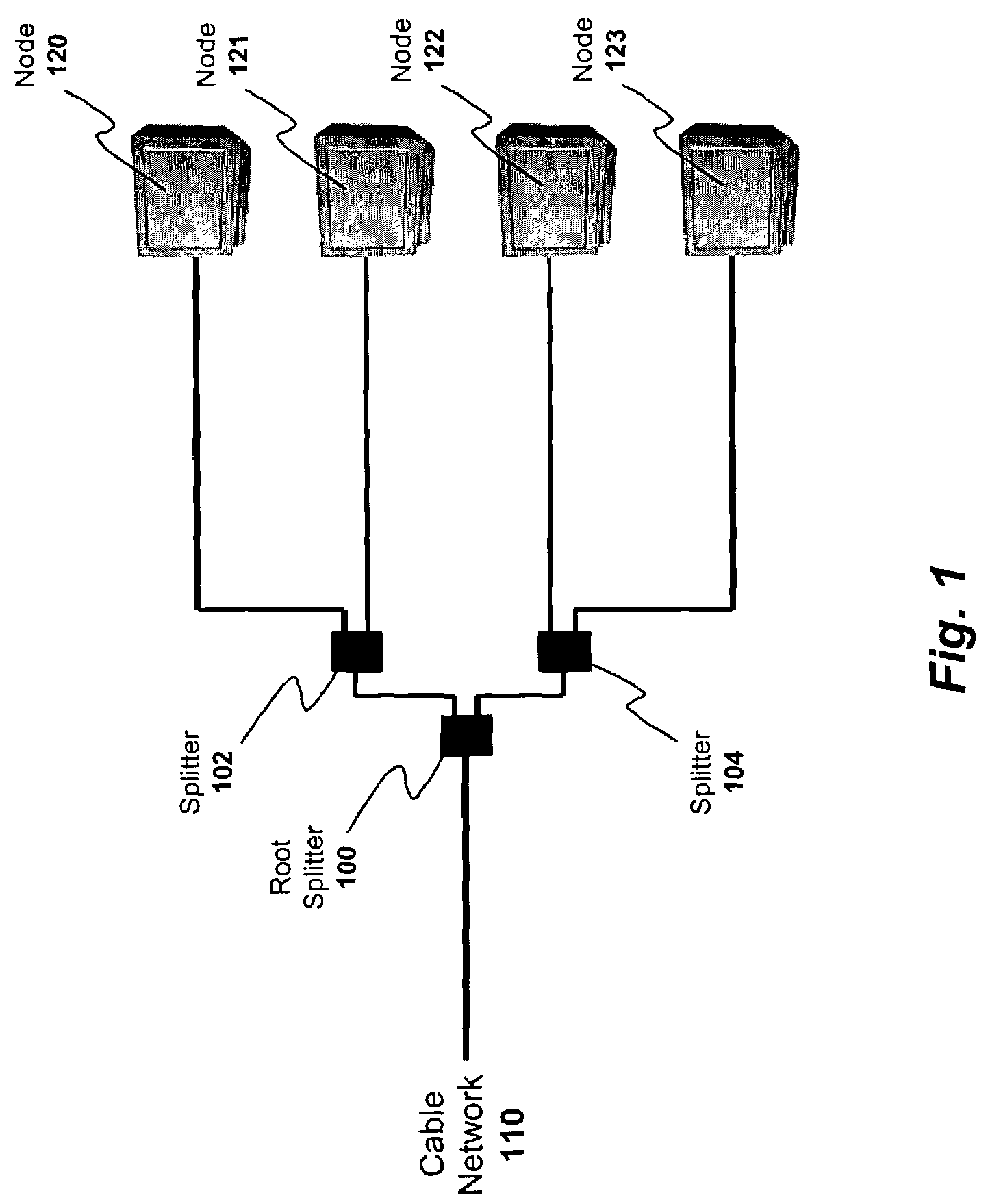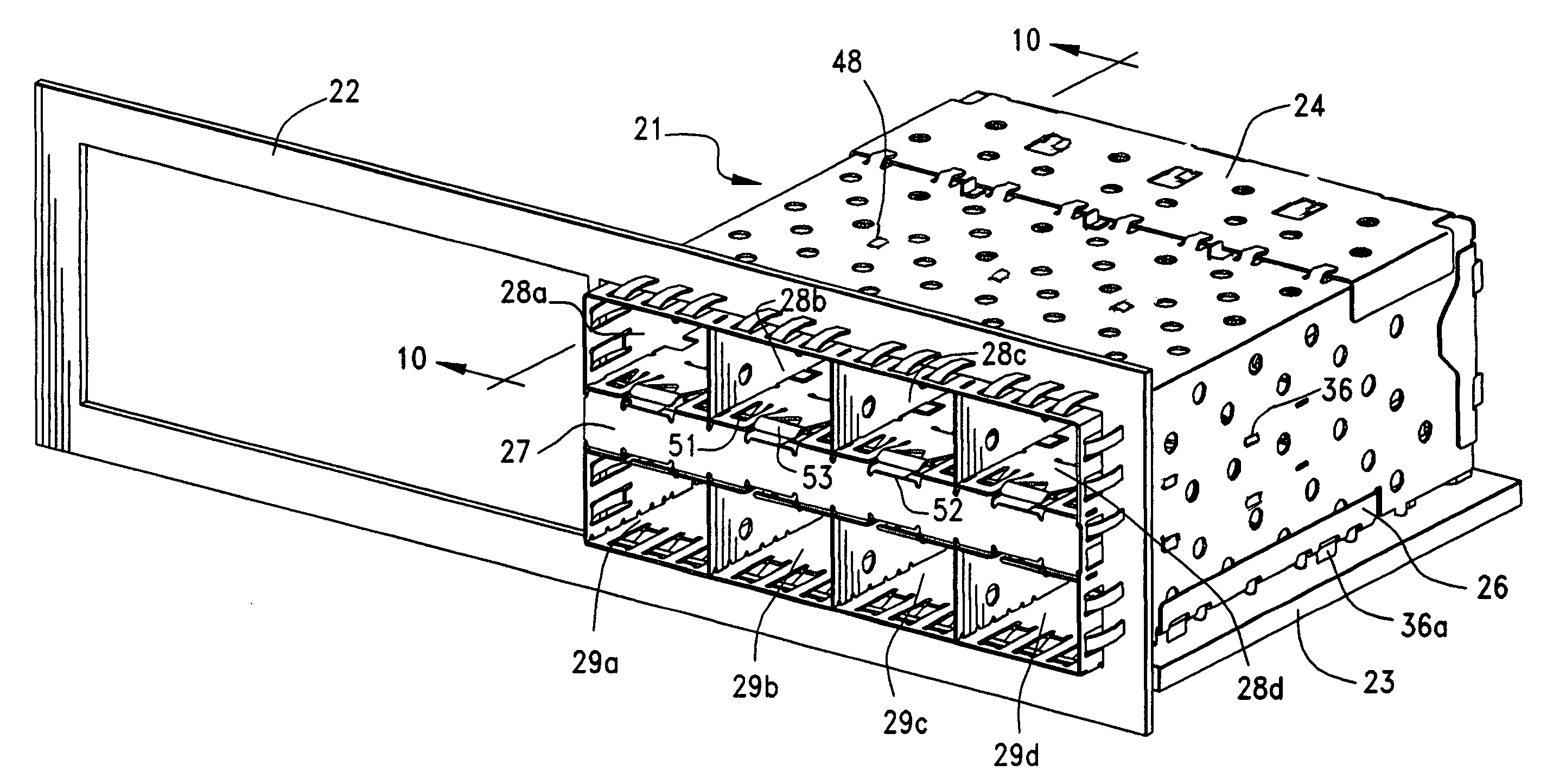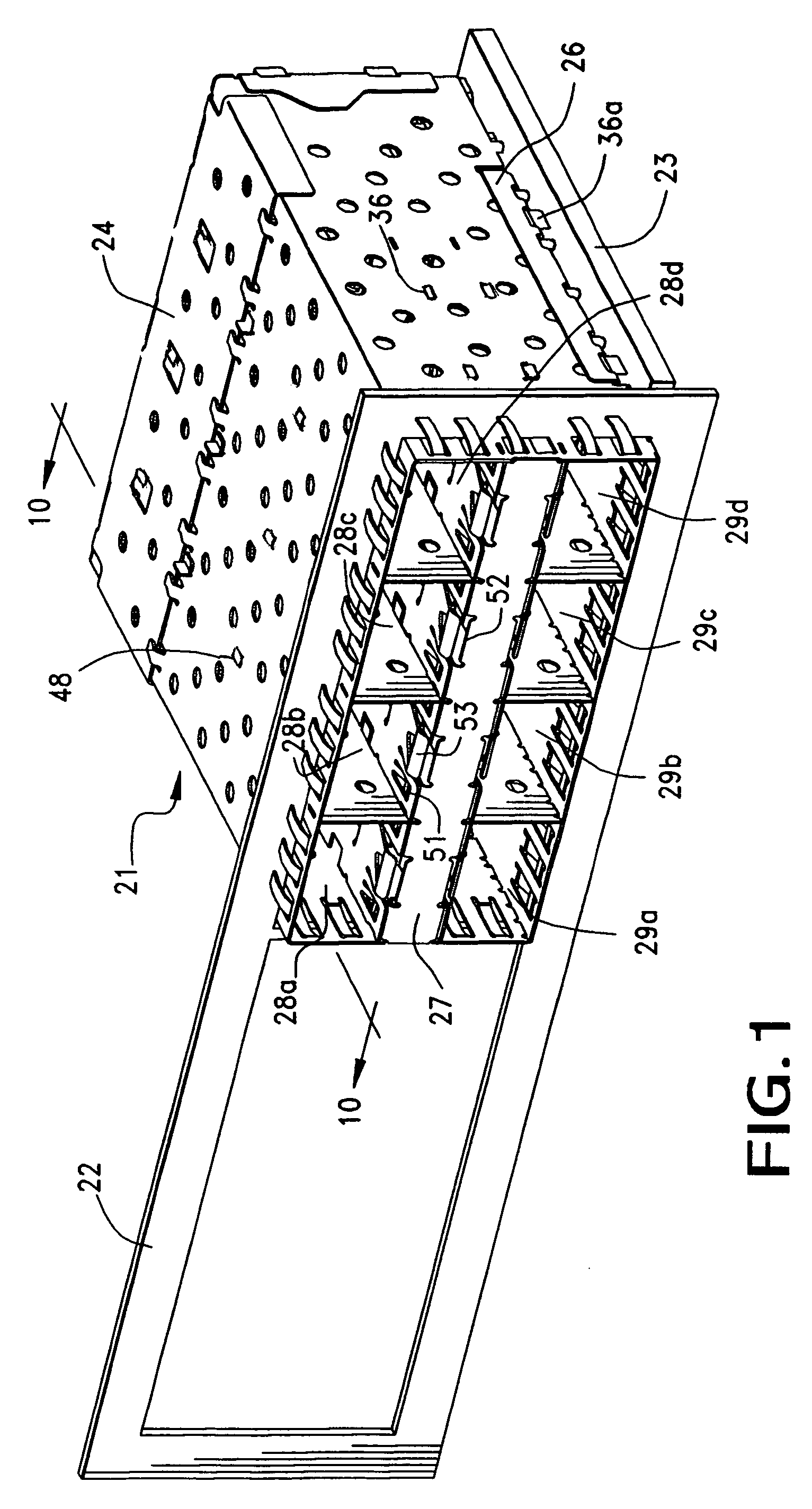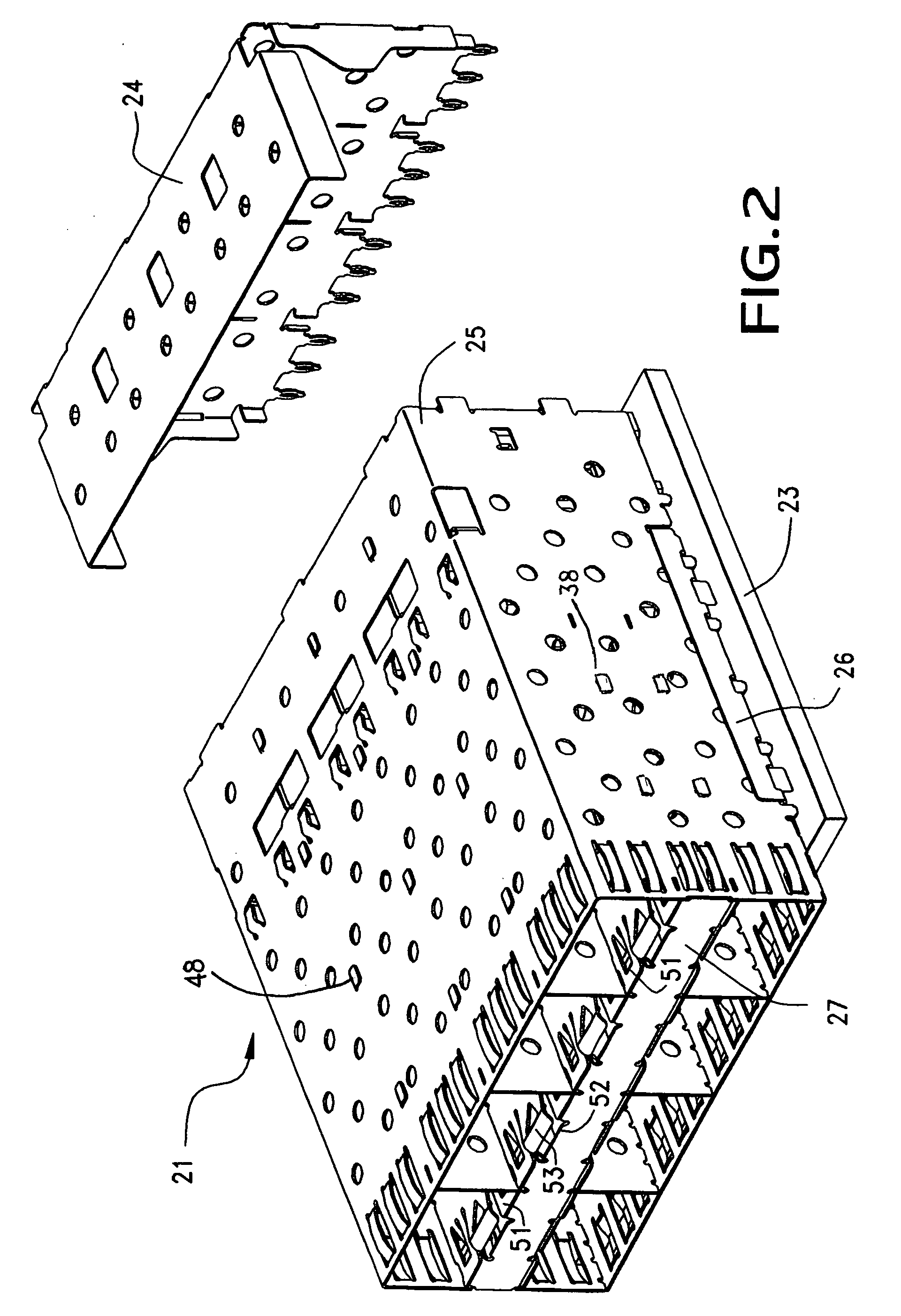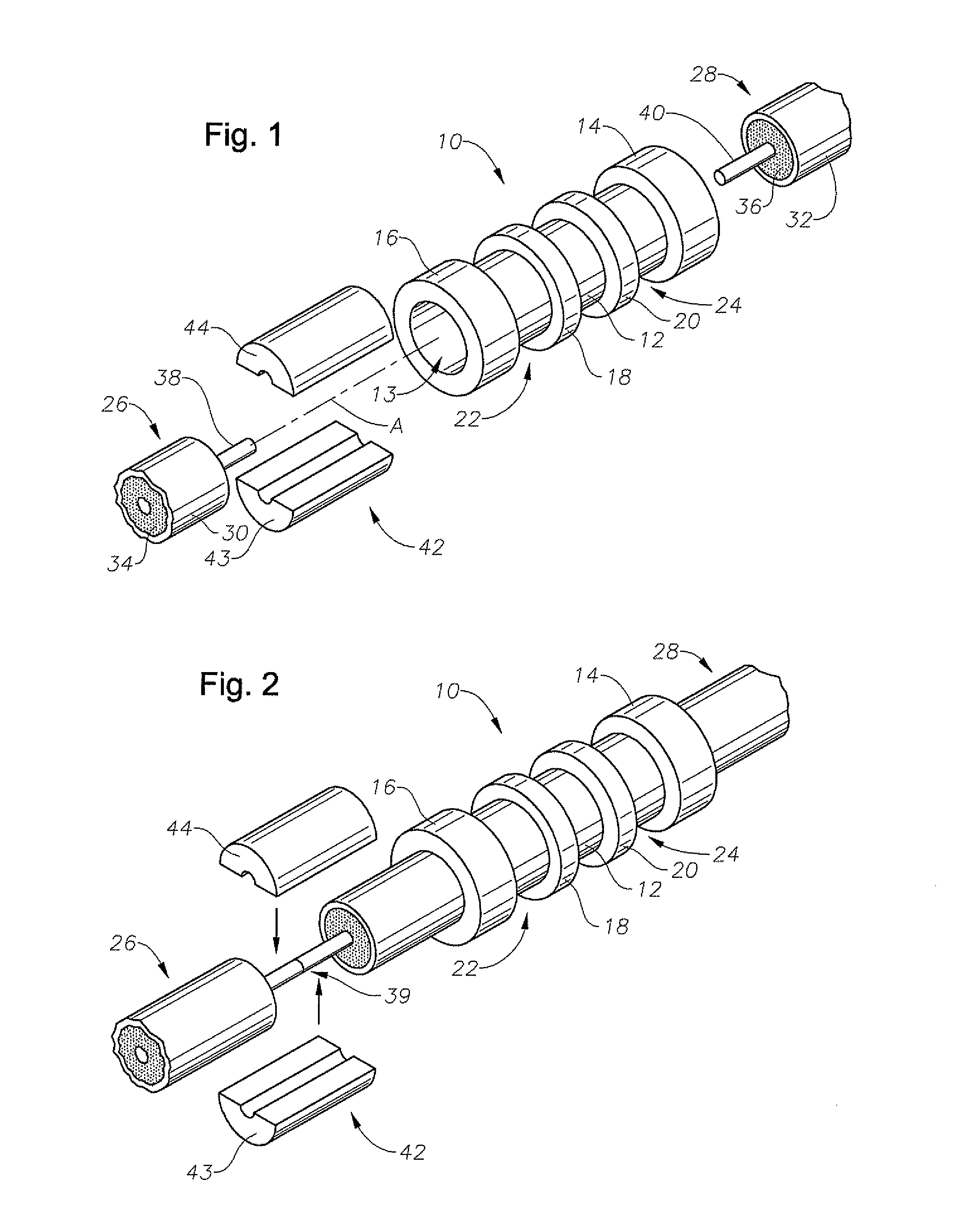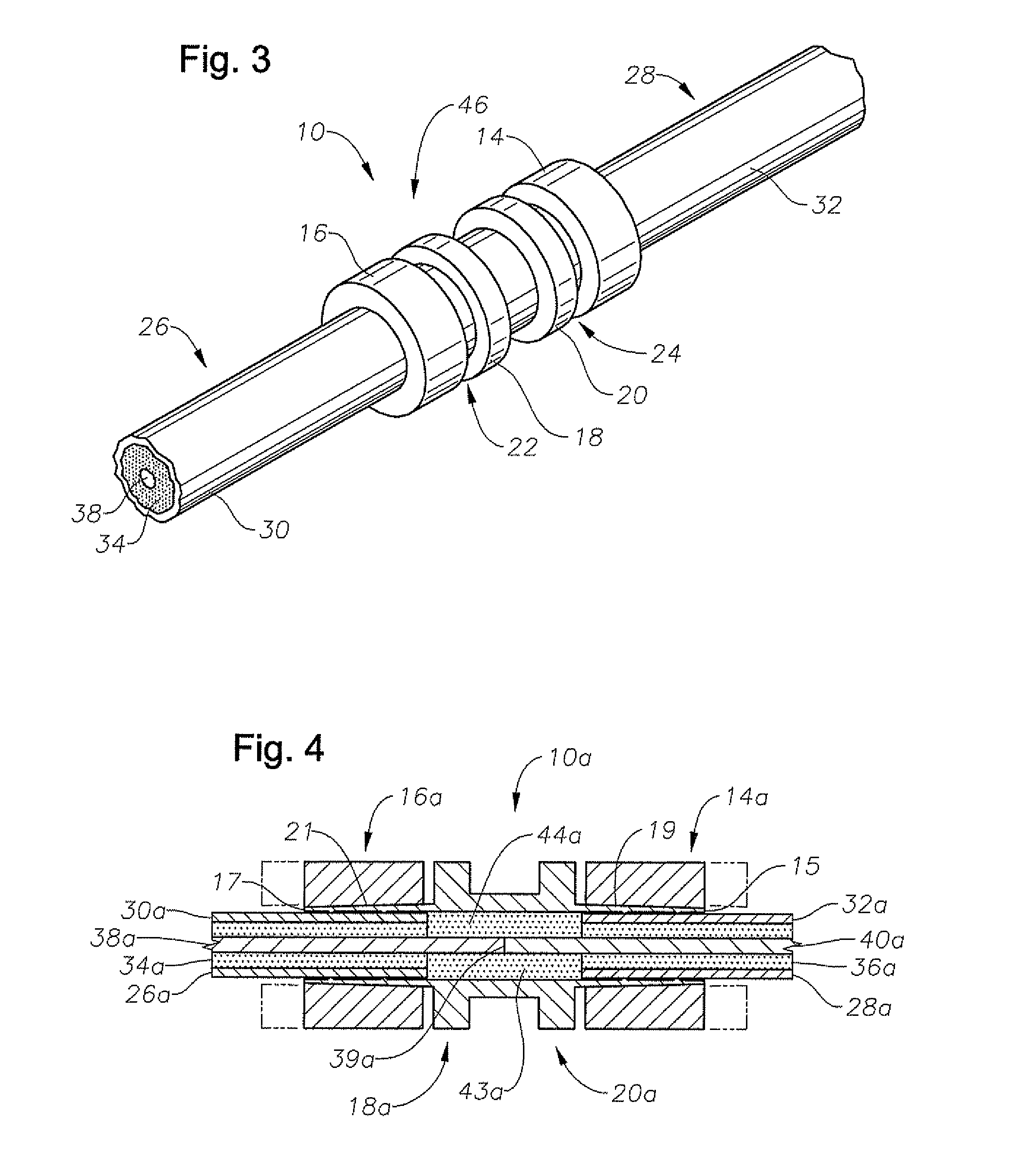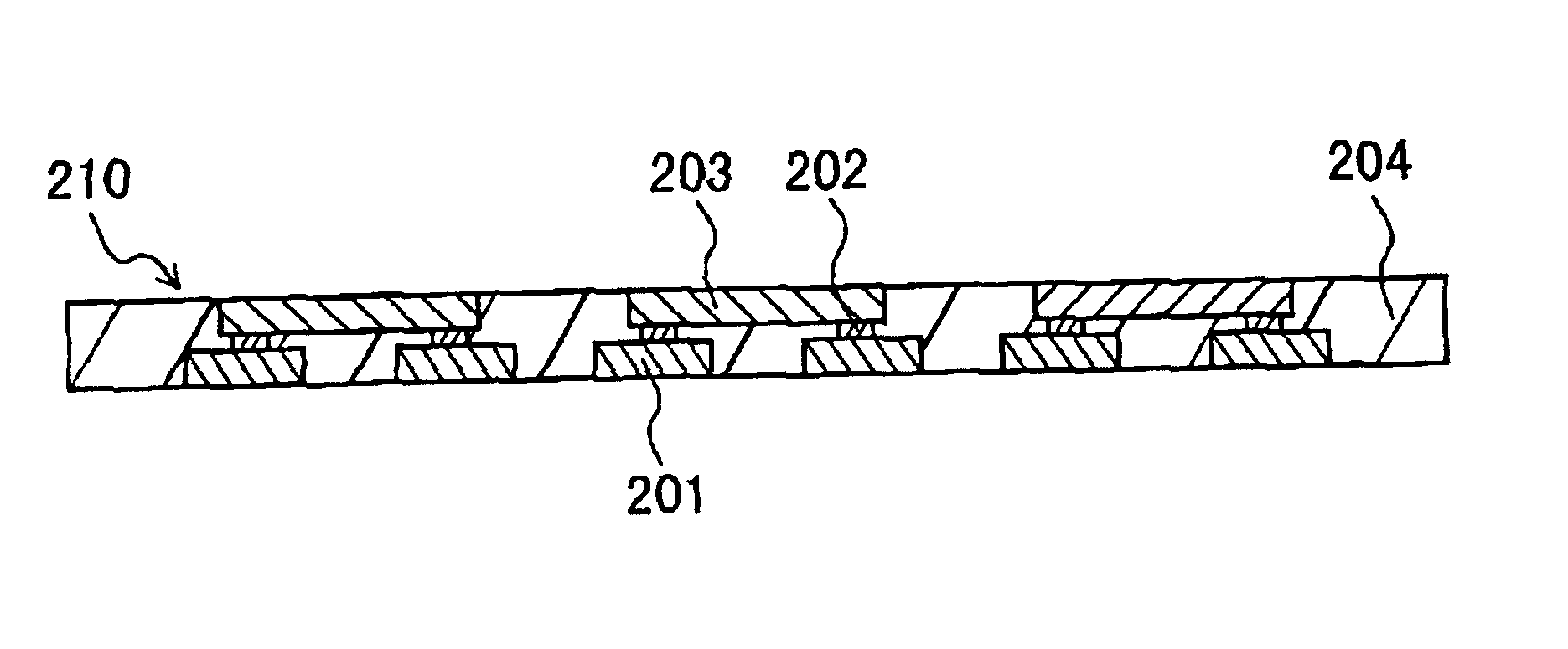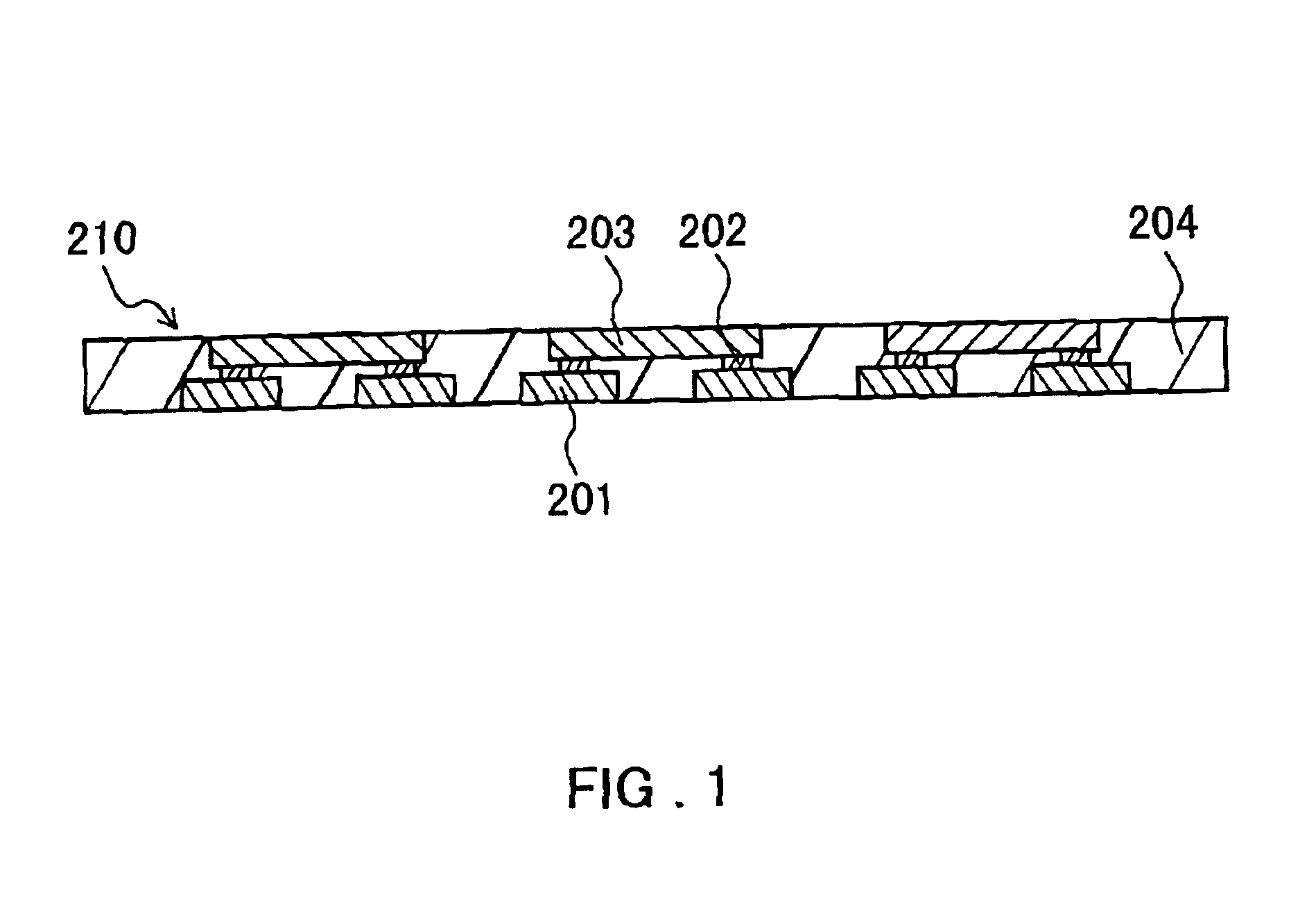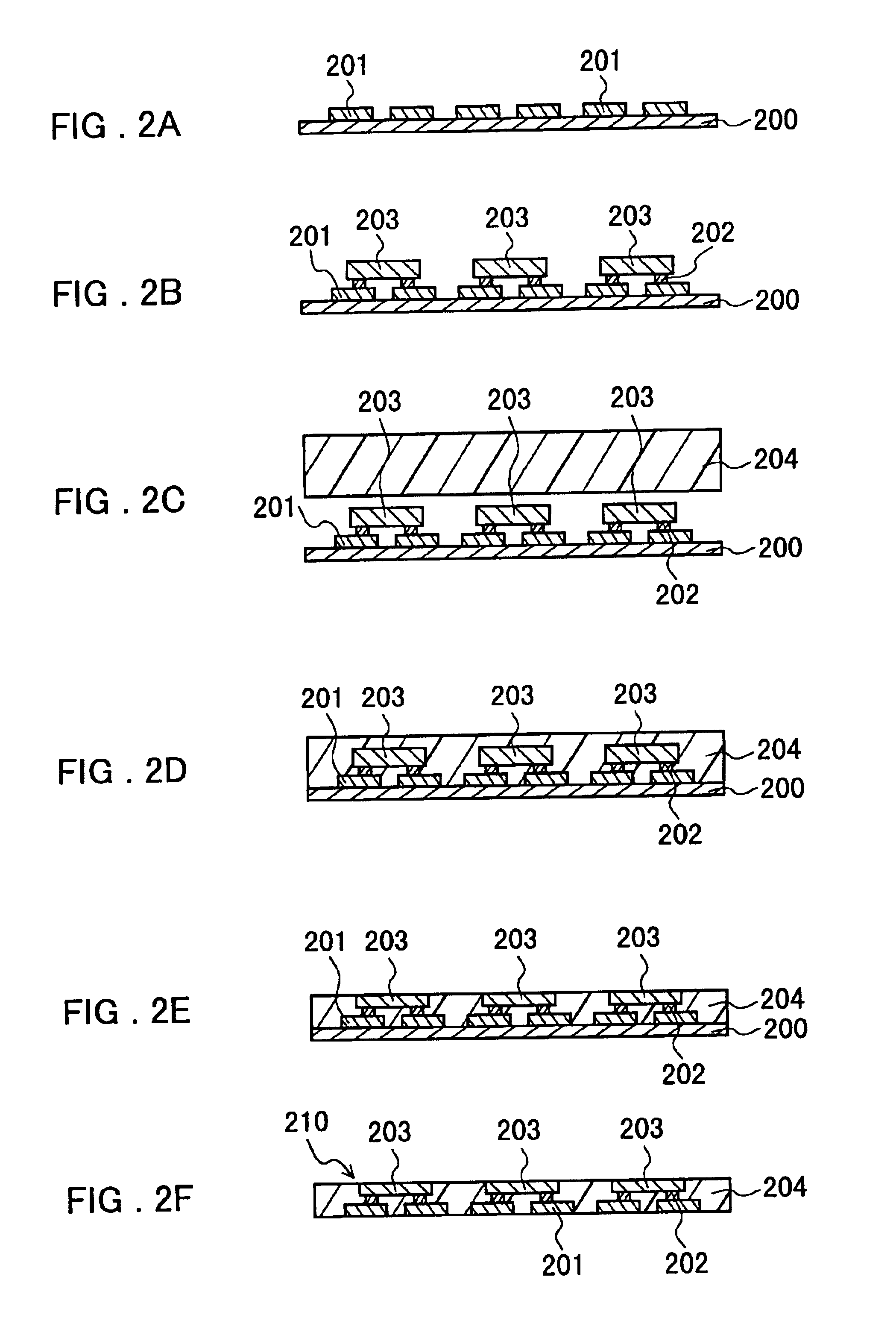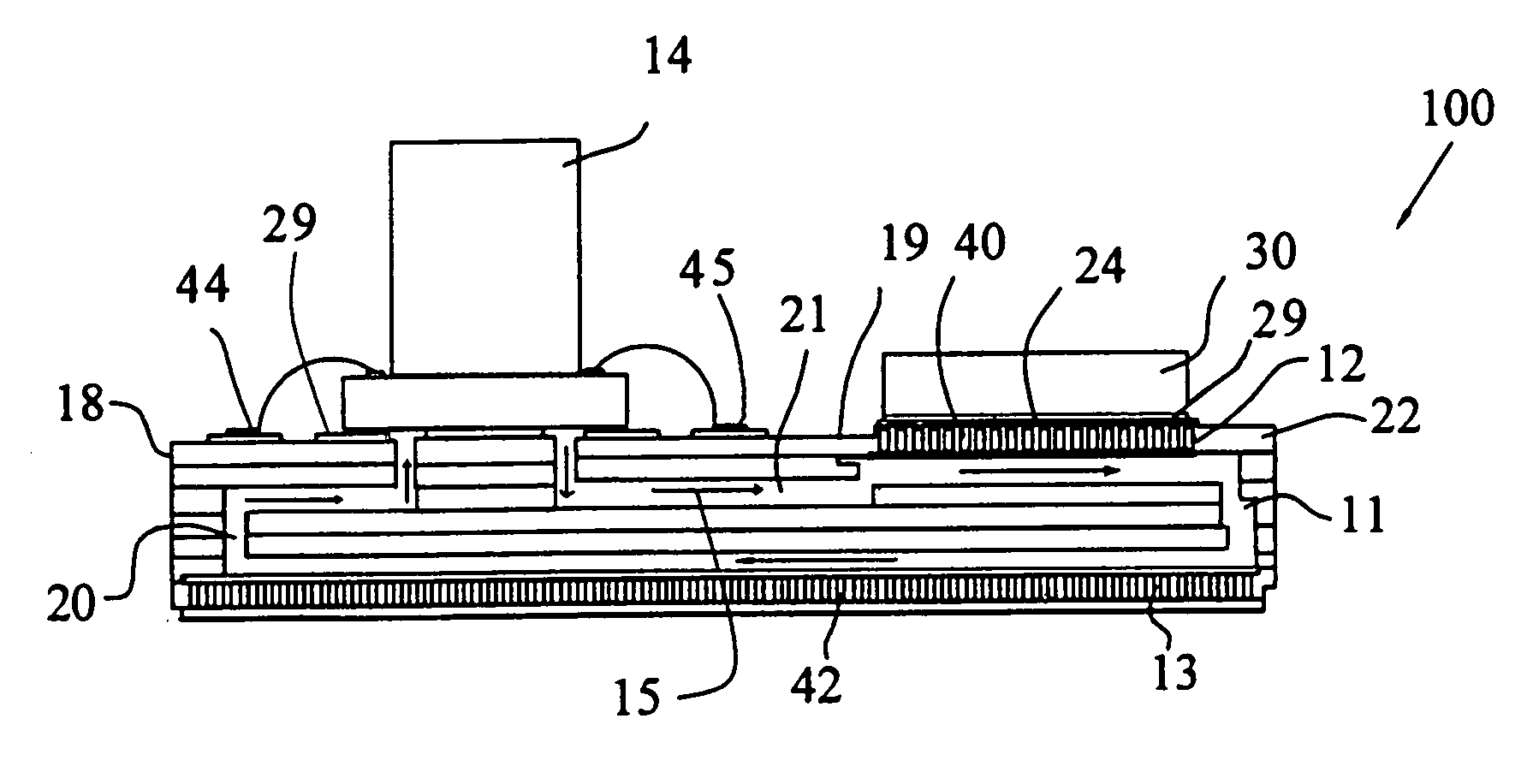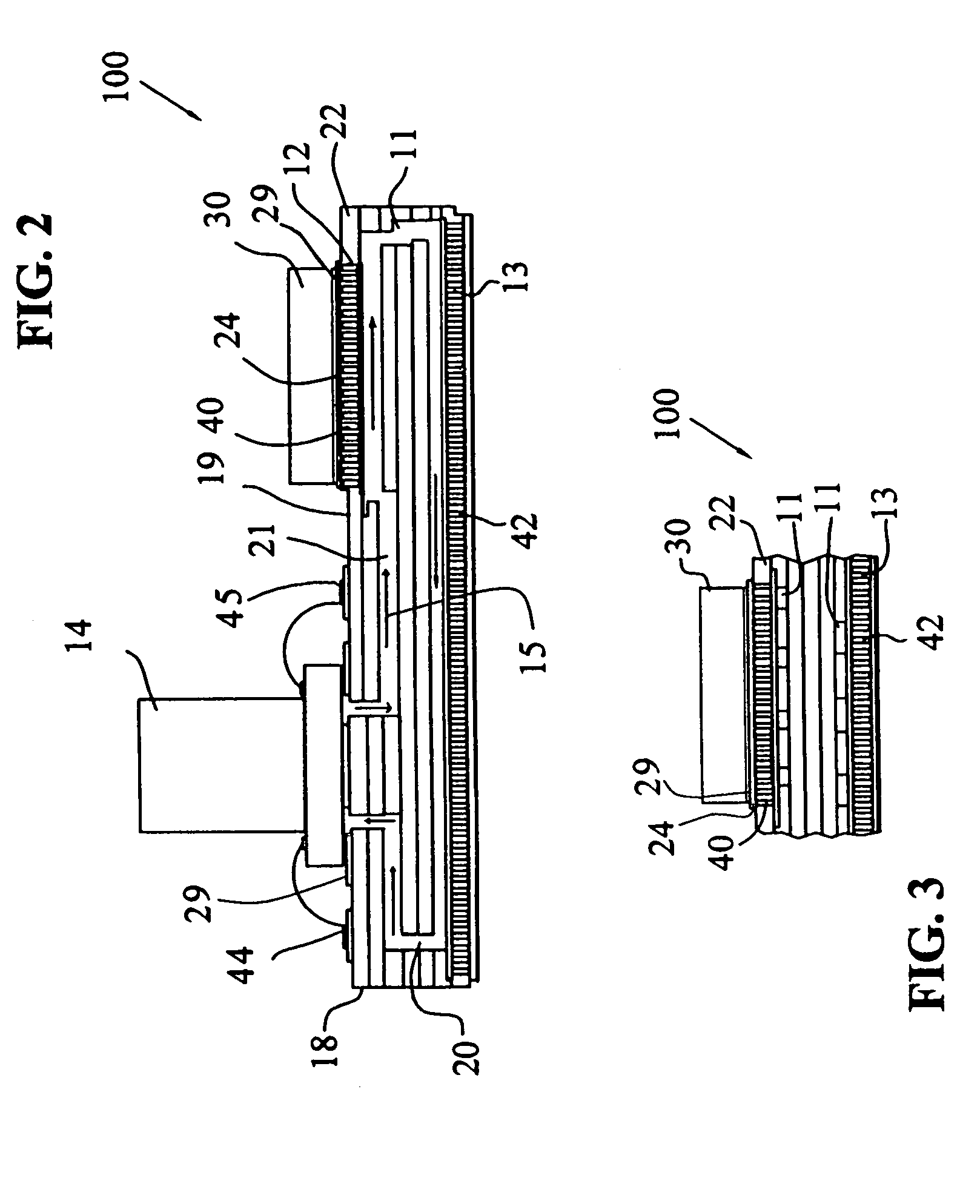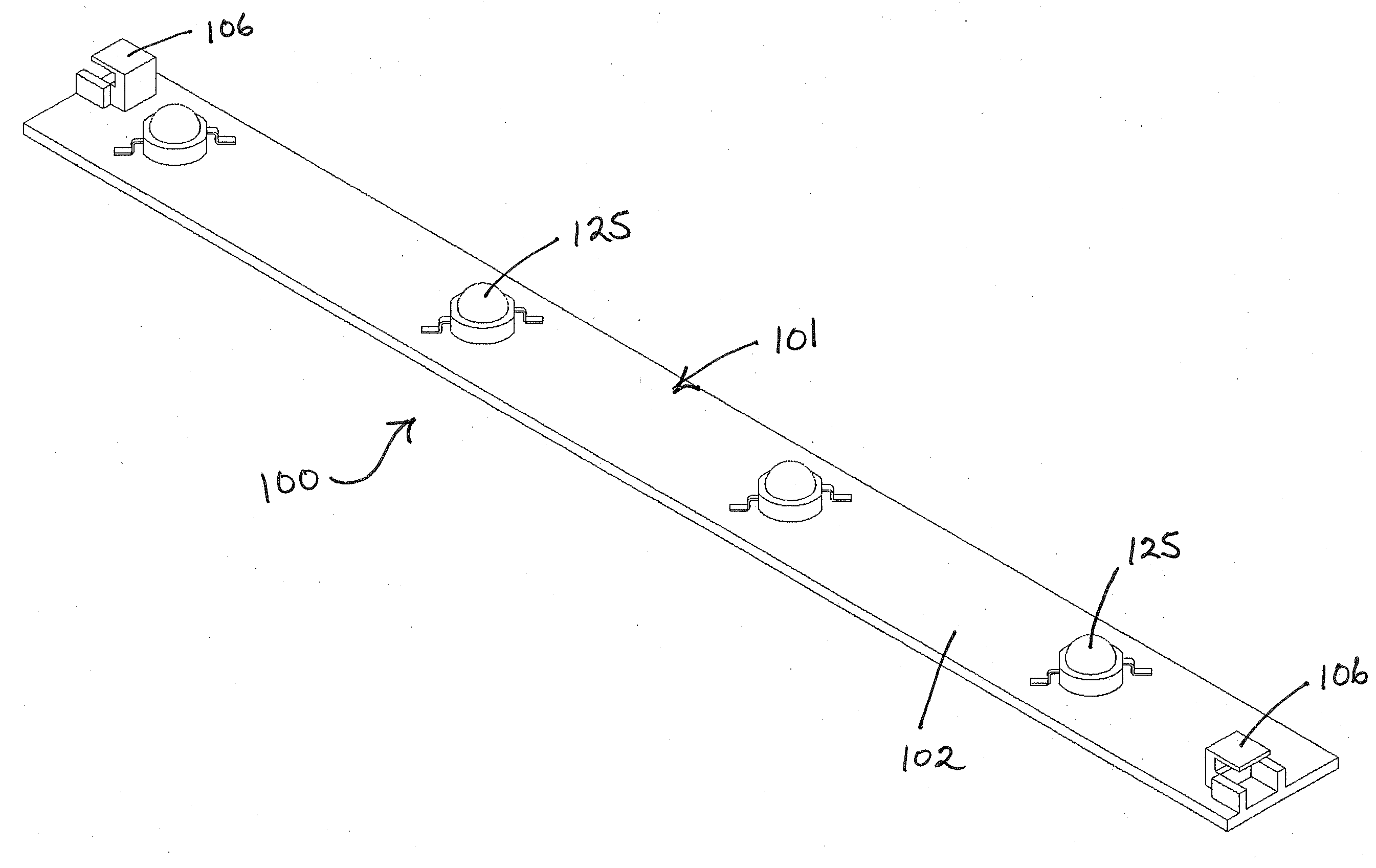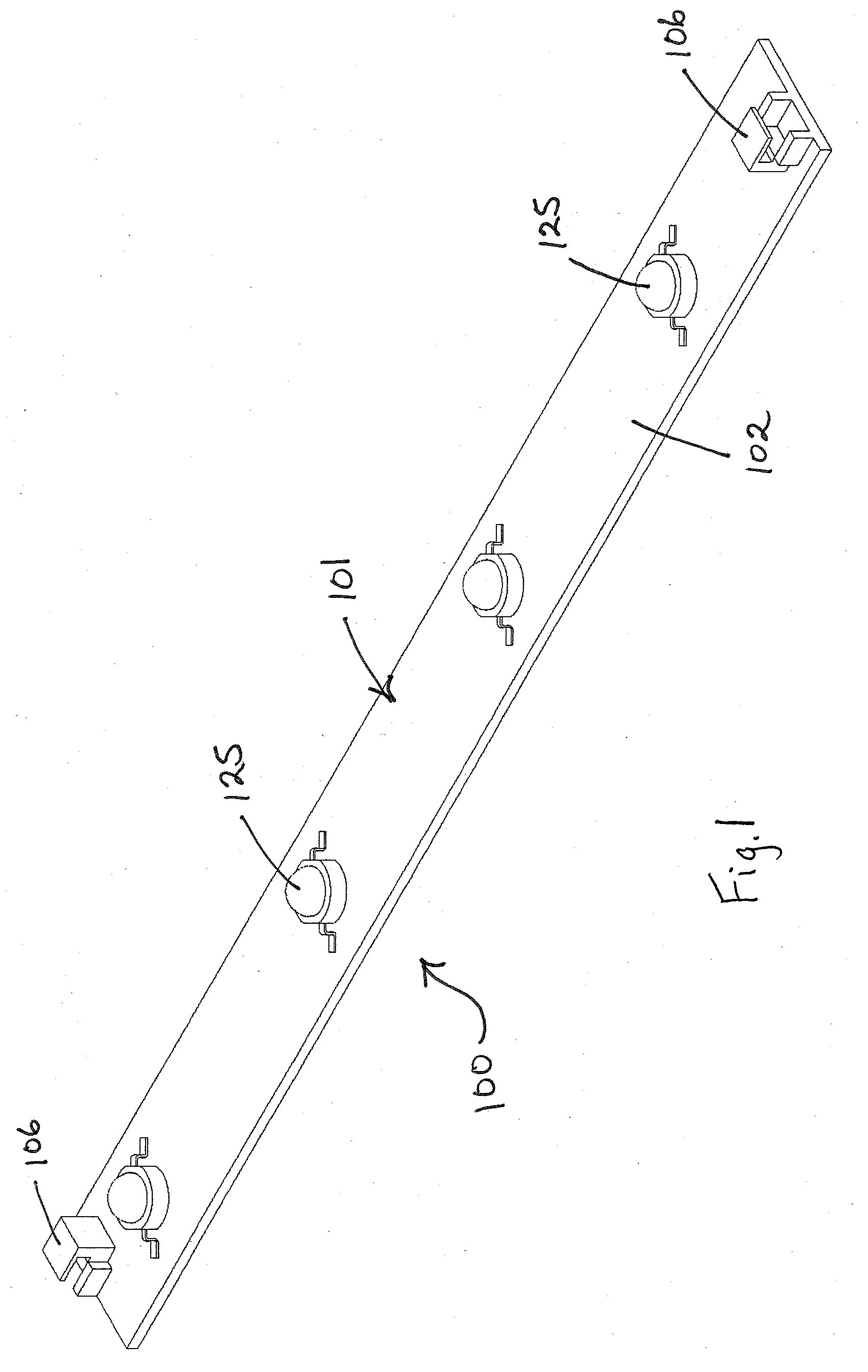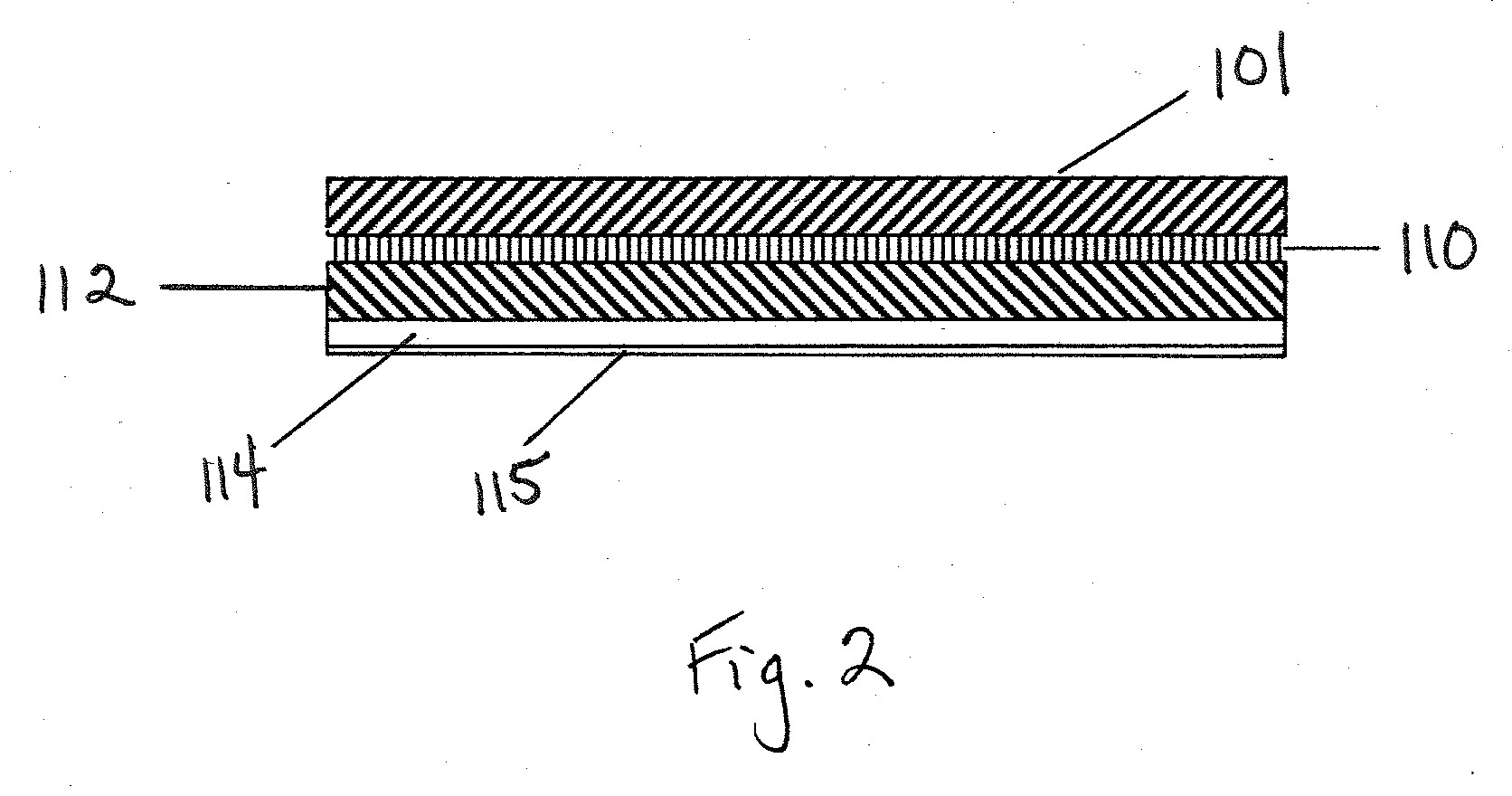Patents
Literature
Hiro is an intelligent assistant for R&D personnel, combined with Patent DNA, to facilitate innovative research.
3753 results about "Electrical element" patented technology
Efficacy Topic
Property
Owner
Technical Advancement
Application Domain
Technology Topic
Technology Field Word
Patent Country/Region
Patent Type
Patent Status
Application Year
Inventor
Electrical elements are conceptual abstractions representing idealized electrical components, such as resistors, capacitors, and inductors, used in the analysis of electrical networks. All electrical networks can be analyzed as multiple electrical elements interconnected by wires. Where the elements roughly correspond to real components the representation can be in the form of a schematic diagram or circuit diagram. This is called a lumped-element circuit model. In other cases infinitesimal elements are used to model the network, in a distributed-element model.
Air flow-producing device, such as a vacuum cleaner or a blower
ActiveUS7712182B2Heavy-duty constructionAvoid contactCleaning filter meansSuction filtersElectricityElectrical battery
Owner:MILWAUKEE ELECTRIC TOOL CORP
Illuminated vehicle wheel with bearing seal slip ring assembly
InactiveUS8322901B2Luminance providedEasy to replaceRotary current collectorLighting support devicesLight-emitting diodeElectrical element
Owner:MICHELOTTI WILLIAM M
Lightguide tile modules and modular lighting system
A modular illumination system includes light emitting tile modules, each module comprising a light guide substrate, at least one source of illumination optically coupled to a light guiding substrate and interconnection means to connect one light emitting tile module to another light emitting tile module. The interconnection means may include mechanical and / or electrical elements. A plurality of modules may be connected to create an extended continuous extended illuminating system without significant gaps or seams. In one embodiment, the light guiding substrate of one module extends over the source of illumination of an adjacent module. In a further embodiment, the light guiding substrate may be textured to create a patterned area with higher light extraction. In a further embodiment, the source of illumination may be included in a separate electrical member. The illumination sources may include LEDs directed into an edge of the light guiding substrate.
Owner:RUDISILL CHARLES A
Eyeglasses with electrical components
ActiveUS7500747B2Easy to operateMinimize amountNon-optical adjunctsNon-optical partsUses eyeglassesElectricity
A pair of glasses with one or more electrical components partially or fully embedded in the glasses is disclosed. In one embodiment, a pair of glasses includes a speaker and an electrical connector, both at least partially embedded in the glasses, with the speaker and the connector electrically coupled together by an electrical conductor. In another embodiment, a pair of glasses includes a storage medium and an electrical connector. In yet another embodiment, a pair of glasses includes a speaker, a coder / decoder, a processor and a storage medium. The glasses can serve as a multimedia asset player. In a further embodiment, some of the electrical components are in a base tethered to a pair of glasses. Instead of just receiving signals, in one embodiment, a pair of glasses also has a microphone and a wireless transceiver. In another embodiment, a pair of glasses includes a preference indicator that allows a user to indicate the user's preference regarding, for example, what is being output by the glasses. In yet another embodiment, there can be one or more control knobs on the glasses. In a further embodiment, a pair of glasses includes a camera and electrical components for wireless connection. In yet a further embodiment, a pair of glasses includes a sensor.
Owner:INGENIOSPEC
Control Tabs for Infusion Devices and Methods of Using the Same
InactiveUS20100160861A1Improve water resistanceImprove the immunityOther blood circulation devicesMedical devicesBiomedical engineeringElectrical element
An external infusion device that infuses a fluid into an individual's body includes a housing, a reservoir, a drive system, a power supply, electrical elements, and a tab. The reservoir contains the fluid, and the drive system forces the fluid from the reservoir. The electrical elements control the power to the drive system to regulate the rate that fluid is forced from the reservoir. The tab mates with the housing, and contains at least one electrical element. The tab is removable, and may be replaced with a different tab. The different tab may change the rate fluid is forced from the reservoir. A tab may be removed from one external infusion device and installed in a different external infusion device. The tab may be limited to use in a predetermined number of external infusion devices and may include a power supply.
Owner:MEDTRONIC MIMIMED INC
Eyeglasses with electrical components
ActiveUS20060023158A1Easy to operateMinimize amountNon-optical adjunctsNon-optical partsUses eyeglassesElectricity
A pair of glasses with one or more electrical components partially or fully embedded in the glasses is disclosed. In one embodiment, a pair of glasses includes a speaker and an electrical connector, both at least partially embedded in the glasses, with the speaker and the connector electrically coupled together by an electrical conductor. In another embodiment, a pair of glasses includes a storage medium and an electrical connector. In yet another embodiment, a pair of glasses includes a speaker, a coder / decoder, a processor and a storage medium. The glasses can serve as a multimedia asset player. In a further embodiment, some of the electrical components are in a base tethered to a pair of glasses. Instead of just receiving signals, in one embodiment, a pair of glasses also has a microphone and a wireless transceiver. In another embodiment, a pair of glasses includes a preference indicator that allows a user to indicate the user's preference regarding, for example, what is being output by the glasses. In yet another embodiment, there can be one or more control knobs on the glasses. In a further embodiment, a pair of glasses includes a camera and electrical components for wireless connection. In yet a further embodiment, a pair of glasses includes a sensor.
Owner:INGENIOSPEC
Display with pixel arrangement
ActiveUS20100315319A1Reduce artifactsIncrease the areaStatic indicating devicesSolid-state devicesComputer graphics (images)Display device
A display, including a substrate having a display area including first and second non-overlapping pixel groups and a gutter located between the first and second pixel groups, the gutter having a dimension in a first direction separating the first and second pixel groups, and each pixel group includes a plurality of pixels, each pixel having three or more differently colored sub-pixels; and wherein the pixel centers of the pixels in each pixel group are arranged in a regular two-dimensional array having one dimension parallel to the first direction, and wherein the pixels within a pixel group are separated by an inter-pixel separation in the first direction; and one or more electrical elements arranged within the gutter, each subpixel being connected to one of the one or more electrical elements, wherein the gutter dimension is greater than the inter-pixel separation, so that artifacts in a displayed image are reduced.
Owner:GLOBAL OLED TECH
Monolithic microwave integrated circuits (MMICs) having conductor-backed coplanar waveguides and method of designing such MMICs
Owner:RAYTHEON CO
Tethered electrical components for eyeglasses
Tethered electrical components coupled to electrical components in or attached to a pair of eyeglasses are disclosed. Tethered electrical components, alone or in combination with eyeglass electrical components, can be used for a variety of different applications and uses. As examples, the tethered electrical components can support signal capturing, signal processing, signal transmission, data acquisition, data processing, and / or data storage.
Owner:INGENIOSPEC
Eyewear supporting electrical components and apparatus therefor
Techniques for providing eyewear with electrical components are disclosed. The electrical components can provide electrical technology to eyewear without having to substantially compromise aesthetic design principles of the eyewear. The electrical components can be partially or completely internal to eyewear. The electrical components can also be attached to the eyewear as an after-market enhancement. The electrical components can operate independently or together with other electrical components provided elsewhere. Apparatus for presenting after-market electrical components are also disclosed.
Owner:INGENIOSPEC
Illuminated electrical center
InactiveUS7635212B2Easy to useElectrically conductive connectionsLighting support devicesEngineeringLight-emitting diode
Owner:APTIV TECH LTD
Method for transferring element, method for producing element, integrated circuit, circuit board, electro-optical device, IC card, and electronic appliance
InactiveUS20030024635A1Thinner semiconductor deviceMinimize cracksLamination ancillary operationsDecorative surface effectsDevice materialEngineering
A peeling layer 2 is formed on an element-forming substrate 1, an element-forming layer 3 including an electrical element is formed on the peeling layer, the element-forming layer is joined by means of a dissolvable bonding layer 4 to a temporary transfer substrate 5, the bonding force of the peeling layer is weakened to peel the element-forming layer from the element-forming substrate, the layer is moved to the temporary transfer substrate 5 side, a curable resin 6 is applied onto the element-forming layer 3 which has been moved onto the temporary transfer substrate 5, the resin is cured to form a transfer substrate 6, and the bonding layer 4 is dissolved to peel the temporary transfer substrate 5 from the transfer substrate 6, resulting in a structure in which a transfer substrate is formed directly on the element-forming layer 3. The separation and transfer technique can be used to form a substrate with better flexibility and impact resistance directly on a semiconductor element, without an adhesive layer on the semiconductor device that is produced.
Owner:SAMSUNG ELECTRONICS CO LTD
Tethered electrical components for eyeglasses
Tethered electrical components coupled to electrical components in or attached to a pair of eyeglasses are disclosed. Tethered electrical components, alone or in combination with eyeglass electrical components, can be used for a variety of different applications and uses. As examples, the tethered electrical components can support signal capturing, signal processing, signal transmission, data acquisition, data processing, and / or data storage.
Owner:INGENIOSPEC
Multi-use electric tile modules
InactiveUS6928775B2Eliminate needLight providedPhotovoltaic supportsCovering/liningsElectricityVisibility
A multiuse electric tile module for walling, flooring, or roofing applications having a photovoltaic cell, thermovoltaic cell, electroluminescent material, or a combination of these disposed over a rigid substrate, such as ceramic. Each tile is electrically connectable through a male-to-female connecter to at least one adjacent tile without external wiring. Preferably, a sealing layer is disposed over the electrical elements and rigid substrate to seal and protect each tile. Optionally, each tile may further include an inverter to convert direct current to alternating current or a battery to store electricity. The electroluminescent material provides light for architectural accents or nighttime visibility.
Owner:BANISTER MARK P
High voltage surge protection element for use with CATV coaxial cable connectors
InactiveUS7102868B2Easy to installReduce manufacturing costEmergency protective arrangement detailsOvervoltage protection resistorsElectricityCoaxial cable
An electrically conductive element for protecting electrical components positioned within a cable connector or cable terminator from high voltage surges includes a ring that is positioned in circumferentially surrounding relation to the input pin of the connector or terminator that carries the signal being transmitted by the coaxial cable. The ring includes at least one prong that extends radially inward therefrom which terminates in close but non-contacting relation to the input pin. When a high voltage surge of electricity is carried by the coaxial cable transmission line, a spark is formed in the gap between the prong and the cable connector or terminator. As a consequence, the high voltage surge is transferred to the surge protection element which in turn conducts the electricity to the grounded body of the connector or terminator.
Owner:JOHN MEZZALINGUA ASSOC INC
Module with built-in electronic elements and method of manufacture thereof
InactiveUS20020159242A1Efficient preparationPrinted circuit assemblingPiezoelectric/electrostriction/magnetostriction machinesSemiconductor chipEngineering
At least two electric elements (203) such as semiconductor chips or surface acoustic wave devices are mounted on wiring patterns (201), and the electric elements (203) are sealed with a thermosetting resin composition (204). An upper surface of the at least two electric elements (203) and an upper surface of the thermosetting resin composition (204) are abraded at the same time, thereby forming surfaces substantially flush with each other. Since they are abraded while being sealed with the thermosetting resin composition (204), it is possible to reduce the thickness without damaging the electric elements (203). Also, the electric elements (203) and the wiring patterns (201) can be prevented from being contaminated by an abrasive liquid. In this manner, it is possible to obtain an electric element built-in module whose thickness can be reduced while maintaining its mechanical strength.
Owner:PANASONIC CORP
Self-regulating transcutaneous energy transfer
A rechargeable battery system and method are disclosed, in which an implantable medical device (IMD) regulates its transfer of energy from a separate charger unit. For recharging, a charger unit is brought into proximity to the implanted device. An oscillating current is generated in a primary coil, located in the charger. By inductive coupling through an oscillating magnetic field, an alternating current is generated in a secondary coil, which is implanted in or near the implanted device. The alternating current then passes through a half-wave or full-wave rectifier to form a one-sided current, then passes through a regulator to form an essentially direct current, which is in turn directed to the rechargeable battery in the implanted device. The secondary coil has a controllable damped resonant frequency, which can be dynamically tuned away from the driving frequency of the primary coil by a variable resistor and / or by varying a duty cycle of a rapidly switched electrical element. If a control loop in the implant senses that more power is being received at the second coil than is actually being used to recharge the battery, the control loop temporarily changes the variable resistance. When this happens, the resonant frequency of the secondary coil is detuned slightly away from the driving frequency, so that less of the incoming power is absorbed by the secondary coil. Alternatively, the secondary coil may be temporarily short-circuited. With less or no excess power entering the circuitry of the implant, the problem of overheating is mitigated.
Owner:ST CROIX MEDICAL
RFID tags with modifiable operating parameters
ActiveUS7170415B2Co-operative working arrangementsPrinted circuit manufactureEngineeringRadio frequency
Owner:AVERY DENNISON CORP
Electric element built-in module and method for manufacturing the same
InactiveUS20040040740A1Efficient preparationPrinted circuit assemblingSemiconductor/solid-state device detailsSemiconductor chipSurface acoustic wave
At least two electric elements (203) such as semiconductor chips or surface acoustic wave devices are mounted on wiring patterns (201), and the electric elements (203) are sealed with a thermosetting resin composition (204). An upper surface of the at least two electric elements (203) and an upper surface of the thermosetting resin composition (204) are abraded at the same time, thereby forming surfaces substantially flush with each other. Since they are abraded while being sealed with the thermosetting resin composition (204), it is possible to reduce the thickness without damaging the electric elements (203). Also, the electric elements (203) and the wiring patterns (201) can be prevented from being contaminated by an abrasive liquid. In this manner, it is possible to obtain an electric element built-in module whose thickness can be reduced while maintaining its mechanical strength.
Owner:PANASONIC CORP
Transformers, balanced-unbalanced transformers (baluns) and Integrated circuits including the same
InactiveUS20090284339A1Multiple-port networksTransformers/inductances coils/windings/connectionsTransformerSymmetric structure
A transformer of fully symmetric structure includes a primary coil assembly and a secondary coil assembly. The primary coil assembly includes a plurality of primary coils formed in a plurality of metal layers, and a first interlayer connection unit for connecting the primary coils. The secondary coil assembly includes a plurality of secondary coils formed in the plurality of metal layers, and a second interlayer connection unit for connecting the secondary coils. The primary and secondary coils formed in the same metal layer are concentric and axisymmetric with respect to a diameter line passing through a planar center point. A balanced-unbalanced transformer (balun) is a type of transformer that may be used to convert an unbalanced signal to a balanced one or vice versa. An integrated circuit may include a semiconductor substrate and a transformer. Electrical elements such as transistors may be formed on the semiconductor substrate.
Owner:SAMSUNG ELECTRONICS CO LTD
Low profile cardiac leads
ActiveUS20040014355A1MinimizeTransvascular endocardial electrodesElectric connection structural associationsElectrical conductorElectrical element
Owner:OSCOR
Voltage sequencing circuit for powering-up sensitive electrical components
A voltage sequencing circuit powers-up electrical systems by sequentially enabling a series of power supply lines to the electrical system. After each power supply line is enabled, the voltage sequencing circuit waits a pre-programmed delay time before enabling the next power supply line. The delay time allows the newly enabled power supply line to settle. Additionally, the voltage sequencing circuit constantly monitors previously enabled power supply lines while continuing to enable the remaining power supply lines. If any of the previously enabled lines fail, the voltage sequencing circuit disables the power supply line before reinitiating a complete power-up sequence.
Owner:JUMIPER NETWORKS INC
Electrical refurbishment for ink delivery system
Methods for electrically refurbishing a depleted single-use printer ink container for a printing system allow the ink container to be refilled and re-used. The memory device provides a signal when coupled to the printing system that indicates the volume of ink left in the container. The original memory device is not resettable by the printer. Four ways are described to refurbish the first memory device: (1) erase the memory with an irradiation source and reprogram; (2) remove the memory along with its electrical contacts; (3) leave the memory device and contacts in place and mount a new source of signals and contacts on top of the first set of electrical elements; or (4) sever continuity between the first electrical contacts and the first memory device and connect a second source of signals to the contacts. The new source of signals could be an emulator or a substitute memory device. The emulator or new memory device may be mounted to the ink container, or located remotely.
Owner:HEWLETT PACKARD DEV CO LP
Irreversible circuit activation switch
InactiveUS20110241446A1Well formedPreventing electrical communicationContact mechanismsSnap-action arrangementsEngineeringBiological activation
Owner:BLUE SPARK TECH
Apparatus and method for powering a network device
ActiveUS7310355B1Frequency-division multiplex detailsDigital data processing detailsEngineeringAnalog signal
A system is described comprising: a first node coupled to a second node by a communications network, the first node and second node communicating digital and / or analog signals over the communications network; the first node comprising a power output selector module to apply a specified voltage to the communications network to power one or more devices communicatively coupled to the communications network; and the second node using the voltage to provide power to one or more electrical components.
Owner:ARRIS ENTERPRISES LLC
Shielded cage assembly for electrical connectors
ActiveUS20060003632A1Improve abilitiesImproves Structural IntegrityElectrically conductive connectionsMagnetic/electric field screeningEngineeringElectrical connector
An integrated wall stacked shielded cage assembly is provided for electrical connectors. The cage assembly has multiple bays for receiving electrical components. At least two arrays of bays are provided, and the arrays are separated by an intervening space. Assembly is carried out with a plurality of spacers which interlock with a plurality of intermediate walls, and cover structures are provided in order to complete EMI shielding.
Owner:MOLEX INC
Mineral insulated metal sheathed cable connector and method of forming the connector
InactiveUS7622677B2Coupling device detailsConnections effected by permanent deformationElectrical elementMetal
A connection for a mineral insulated metal sheathed cable, wherein the connection employs a compression fitting. The connection may make up two or more mineral insulated metal sheathed cables wherein one or more of the cables may be secured with a compression fitting. The connection may splice together two individual cables, or a cable to an electrical element.
Owner:ACCUTRU INT
Module with built-in electronic elements and method of manufacture thereof
InactiveUS6798121B2Efficient preparationImprove connection reliabilityPiezoelectric/electrostriction/magnetostriction machinesSemiconductor/solid-state device detailsSemiconductor chipEngineering
At least two electric elements (203) such as semiconductor chips or surface acoustic wave devices are mounted on wiring patterns (201), and the electric elements (203) are sealed with a thermosetting resin composition (204). An upper surface of the at least two electric elements (203) and an upper surface of the thermosetting resin composition (204) are abraded at the same time, thereby forming surfaces substantially flush with each other. Since they are abraded while being sealed with the thermosetting resin composition (204), it is possible to reduce the thickness without damaging the electric elements (203). Also, the electric elements (203) and the wiring patterns (201) can be prevented from being contaminated by an abrasive liquid. In this manner, it is possible to obtain an electric element built-in module whose thickness can be reduced while maintaining its mechanical strength.
Owner:PANASONIC CORP
Integrated cooling system for electronic devices
Owner:DELPHI TECH IP LTD
Layered structure for use with high power light emitting diode systems
A layered structure for use with a high power light emitting diode system comprises an electrically insulating intermediate layer interconnecting a top layer and a bottom layer. The top layer, the intermediate layer, and the bottom layer form an at least semi-flexible elongate member having a longitudinal axis and a plurality of positions spaced along the longitudinal axis. The at least semi-flexible elongate member is bendable laterally proximate the plurality of positions spaced along the longitudinal axis to a radius of at least 6 inches, twistable relative to its longitudinal axis up to 10 degrees per inch, and bendable to conform to localized heat sink surface flatness variations having a radius of at least 1 inch. The top layer is pre-populated with electrical components for high wattage, the electrical components including at least one high wattage light emitting diode at least 1.0 Watt per 0.8 inch squared.
Owner:METROSPEC TECH
Features
- R&D
- Intellectual Property
- Life Sciences
- Materials
- Tech Scout
Why Patsnap Eureka
- Unparalleled Data Quality
- Higher Quality Content
- 60% Fewer Hallucinations
Social media
Patsnap Eureka Blog
Learn More Browse by: Latest US Patents, China's latest patents, Technical Efficacy Thesaurus, Application Domain, Technology Topic, Popular Technical Reports.
© 2025 PatSnap. All rights reserved.Legal|Privacy policy|Modern Slavery Act Transparency Statement|Sitemap|About US| Contact US: help@patsnap.com
